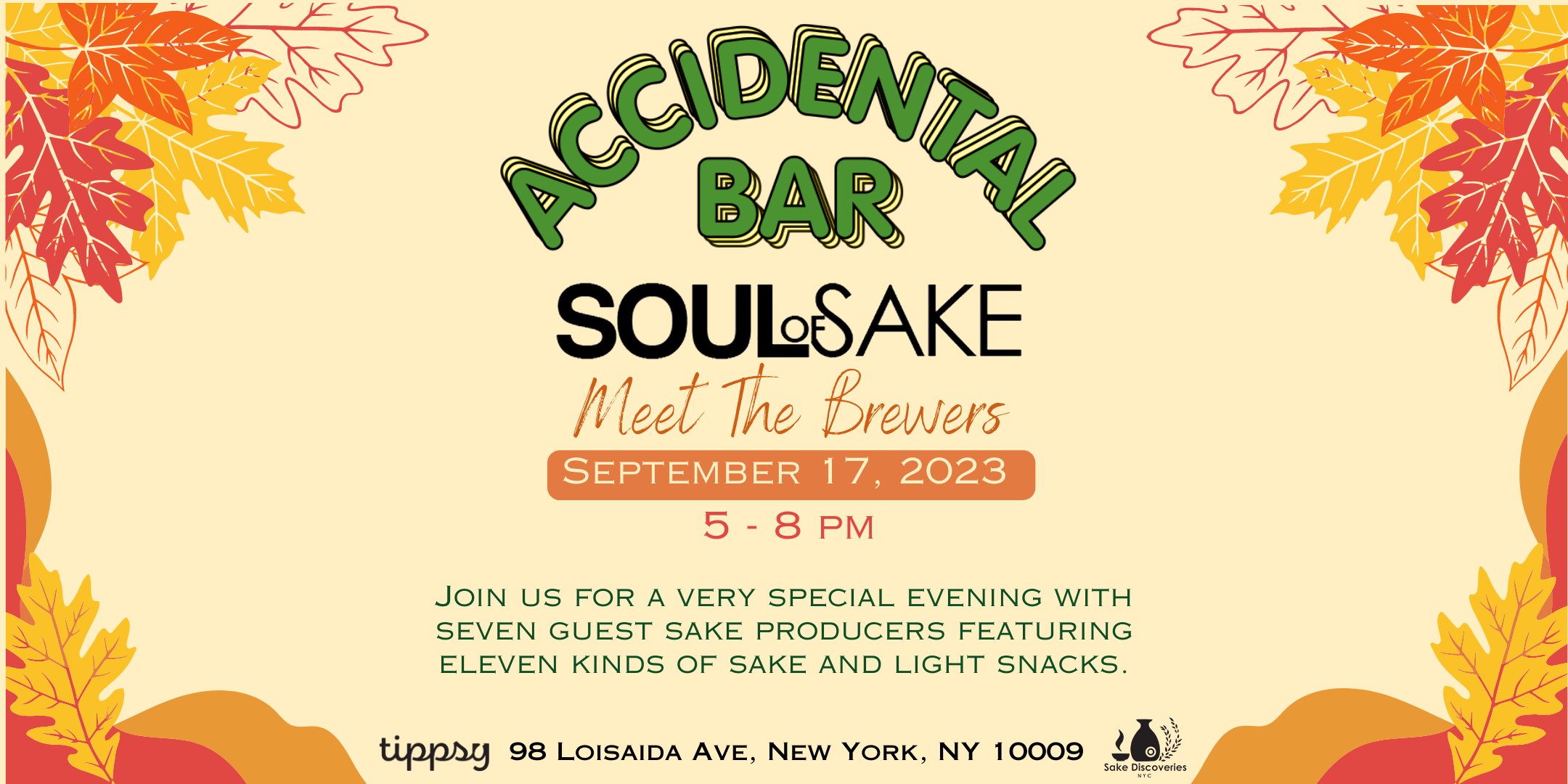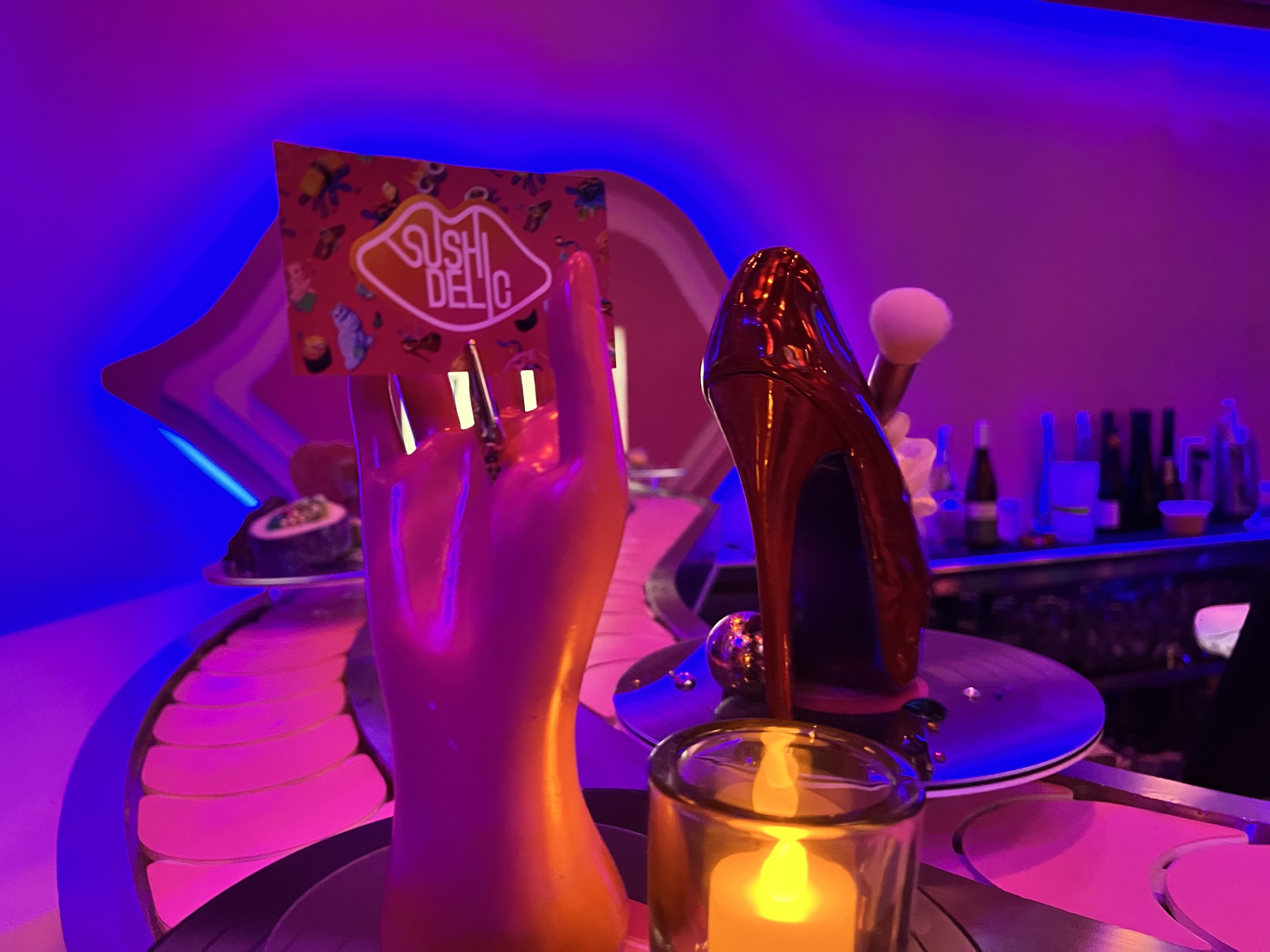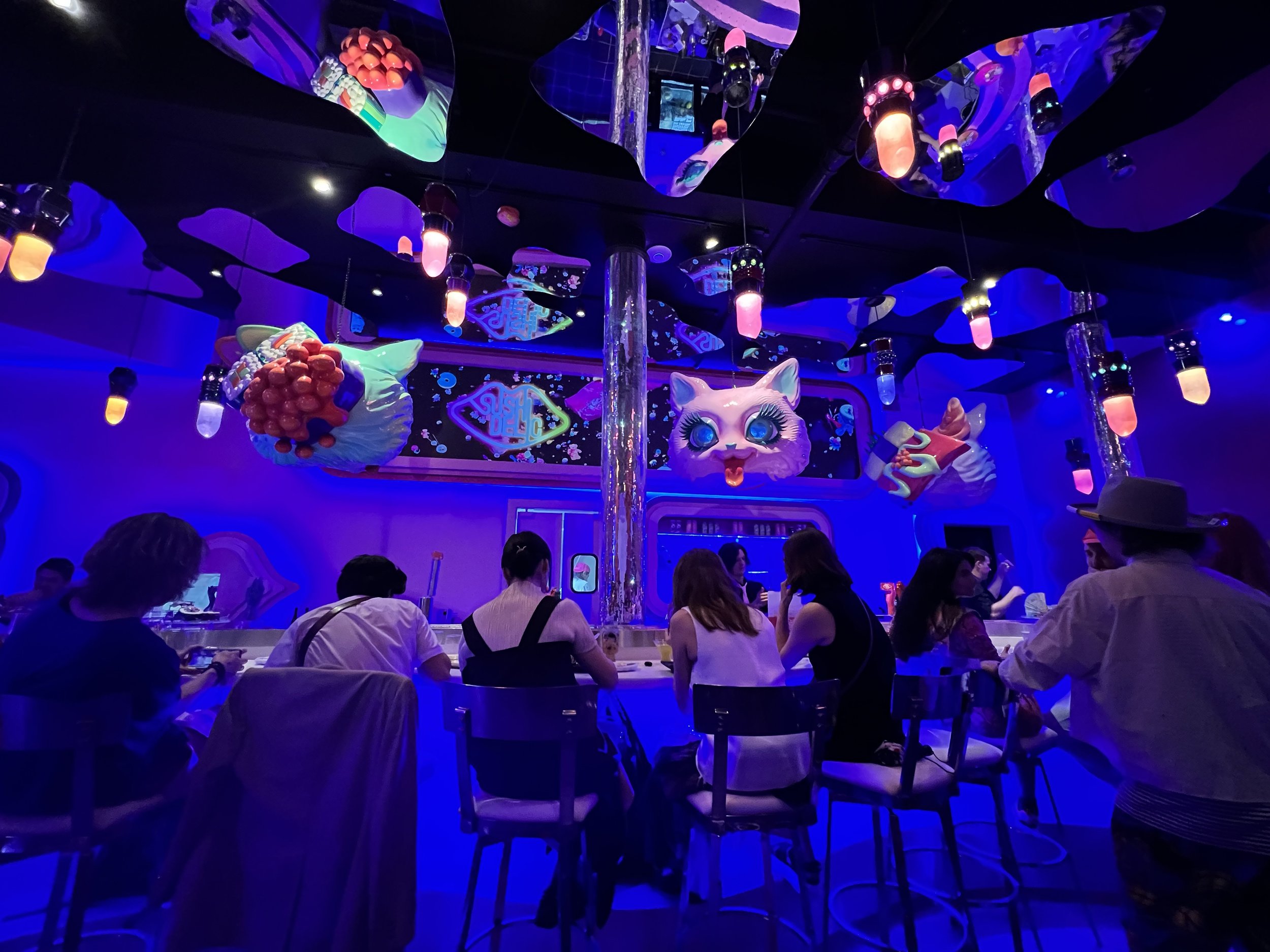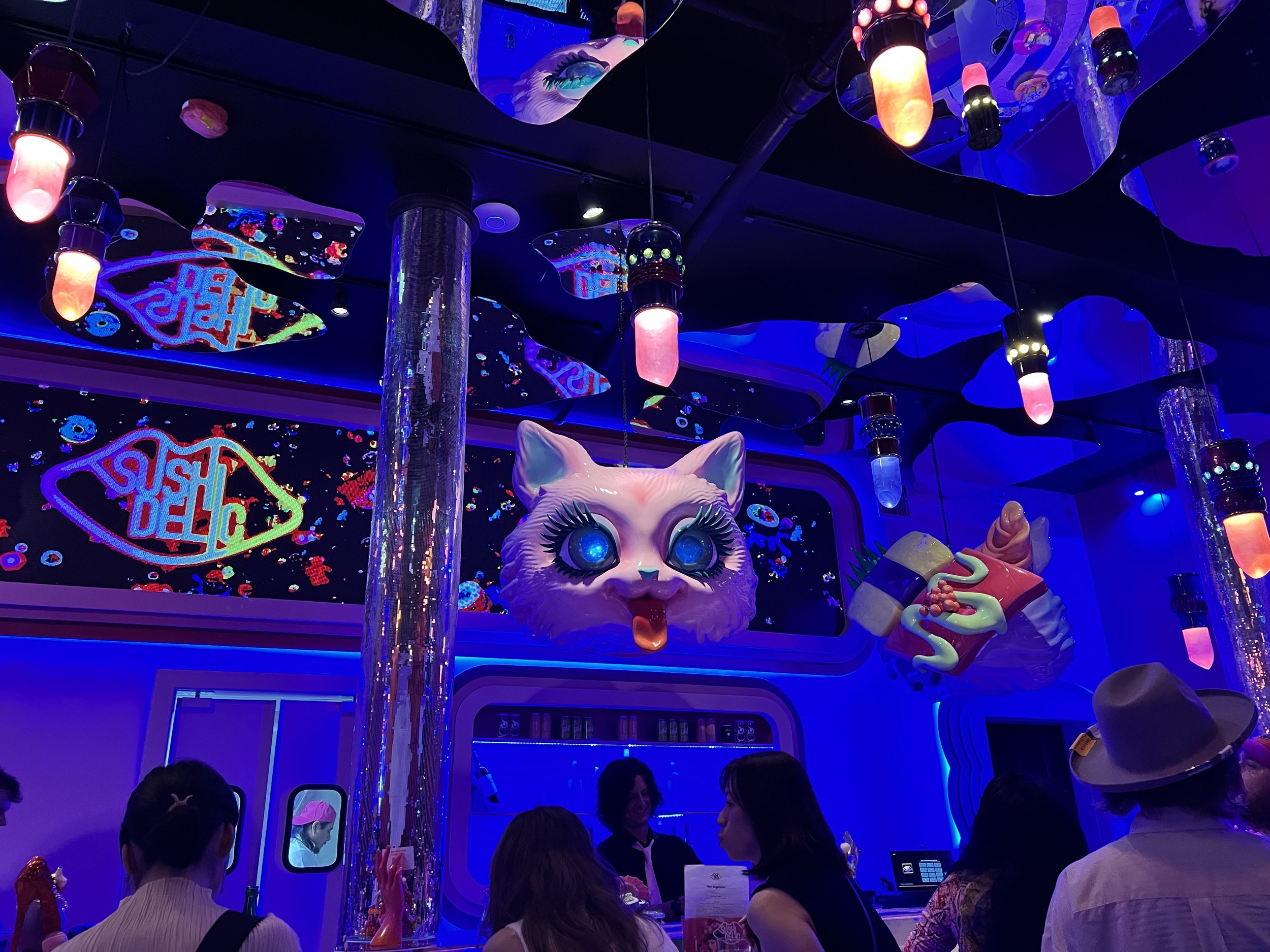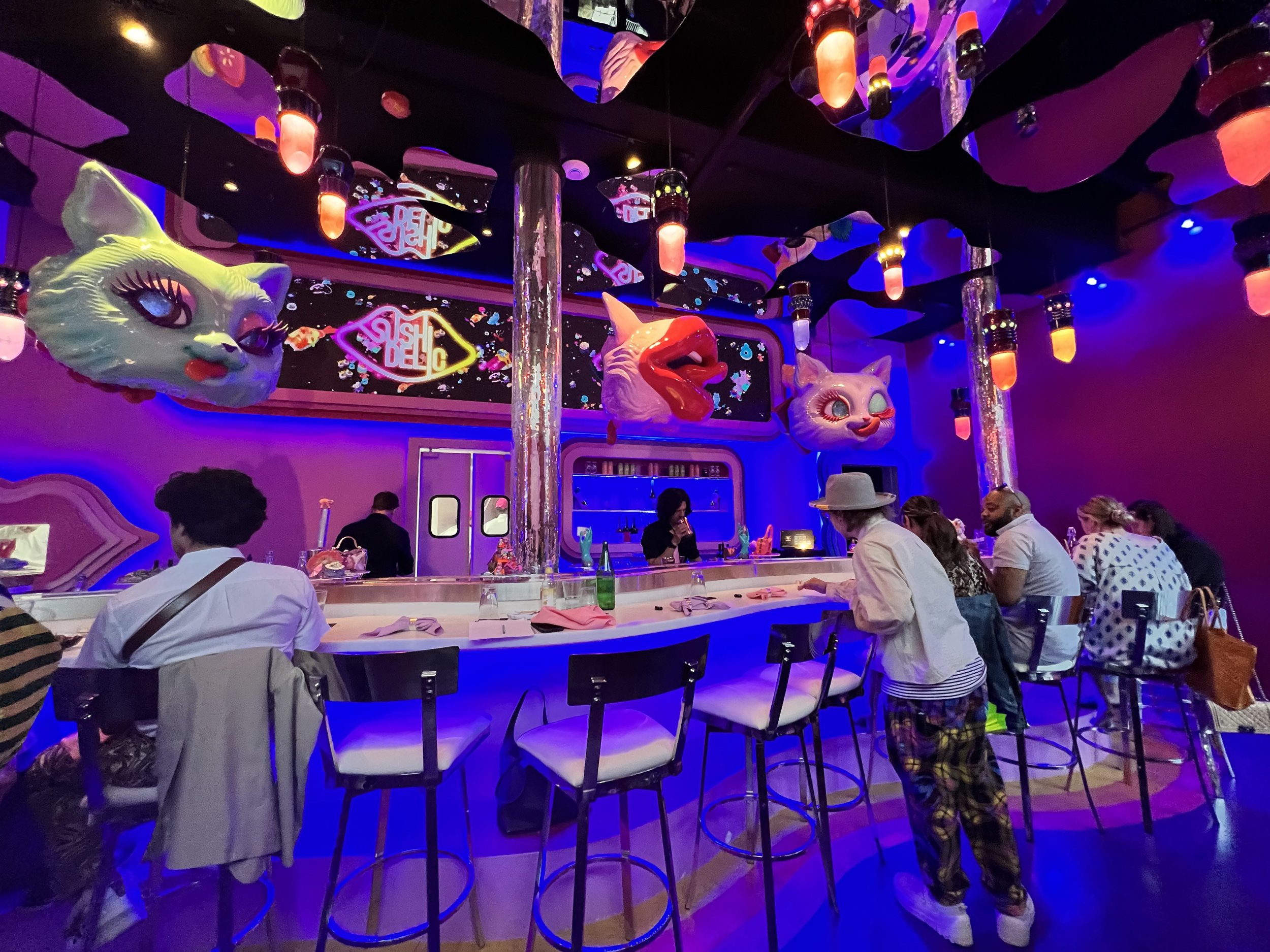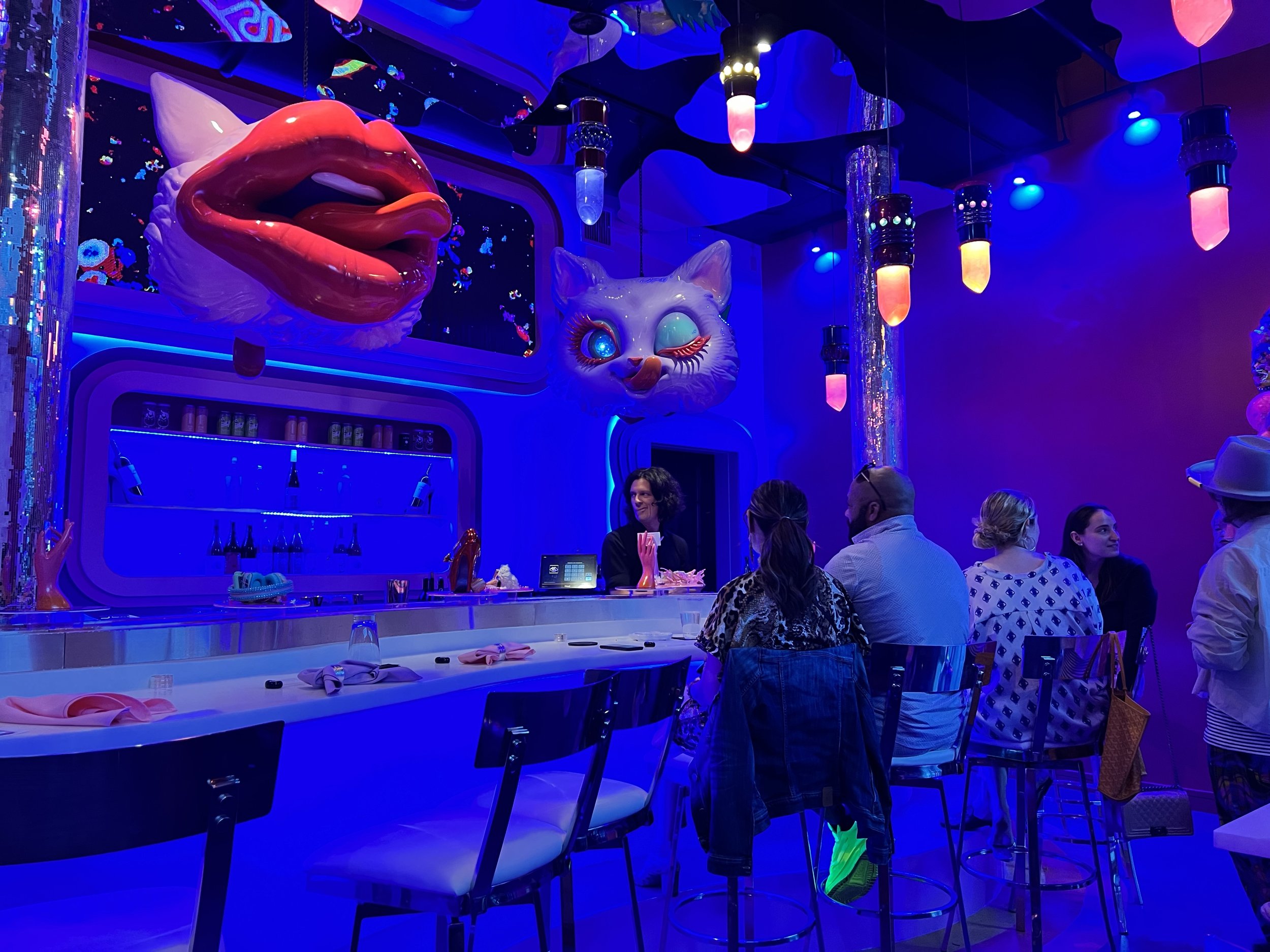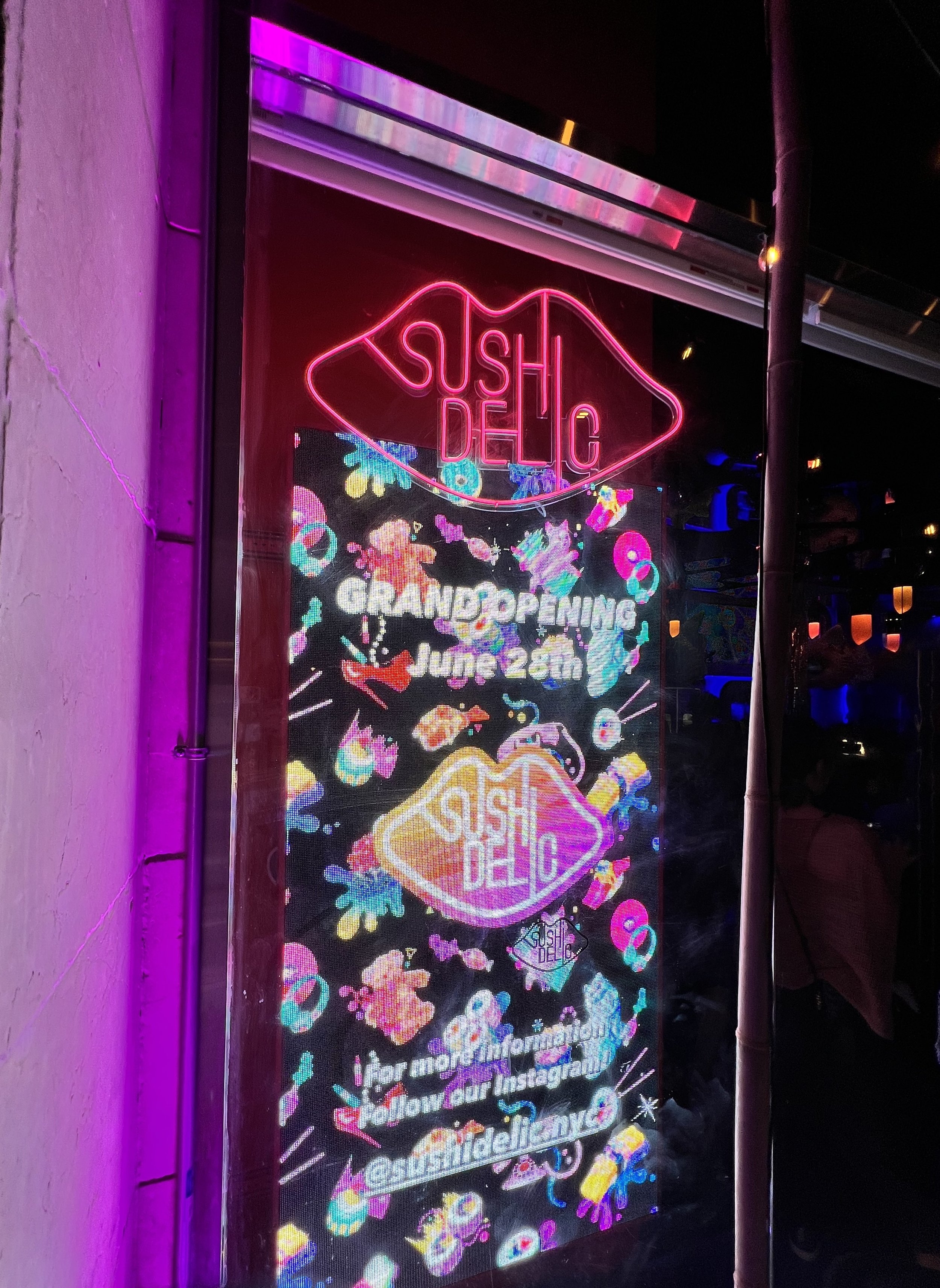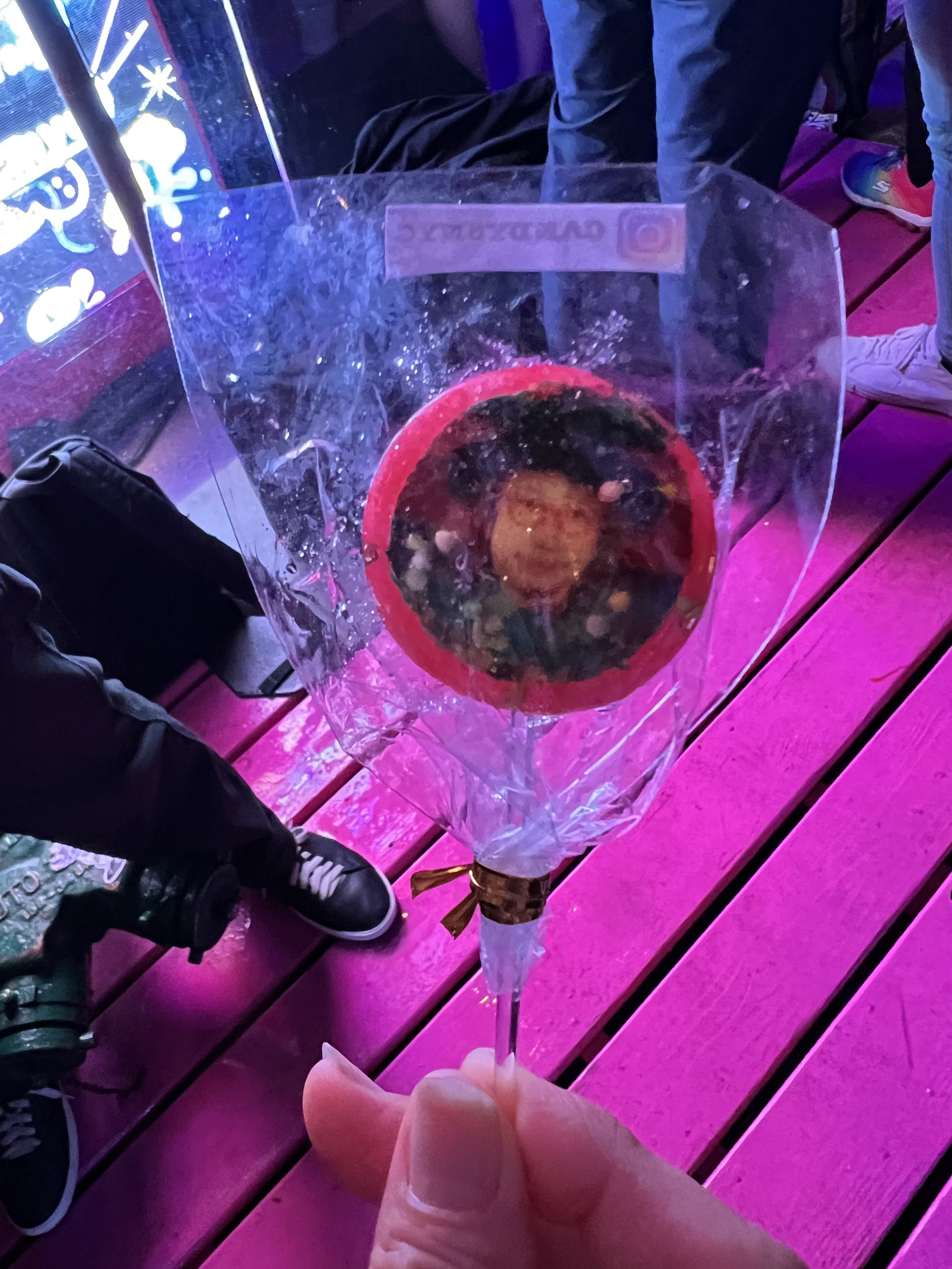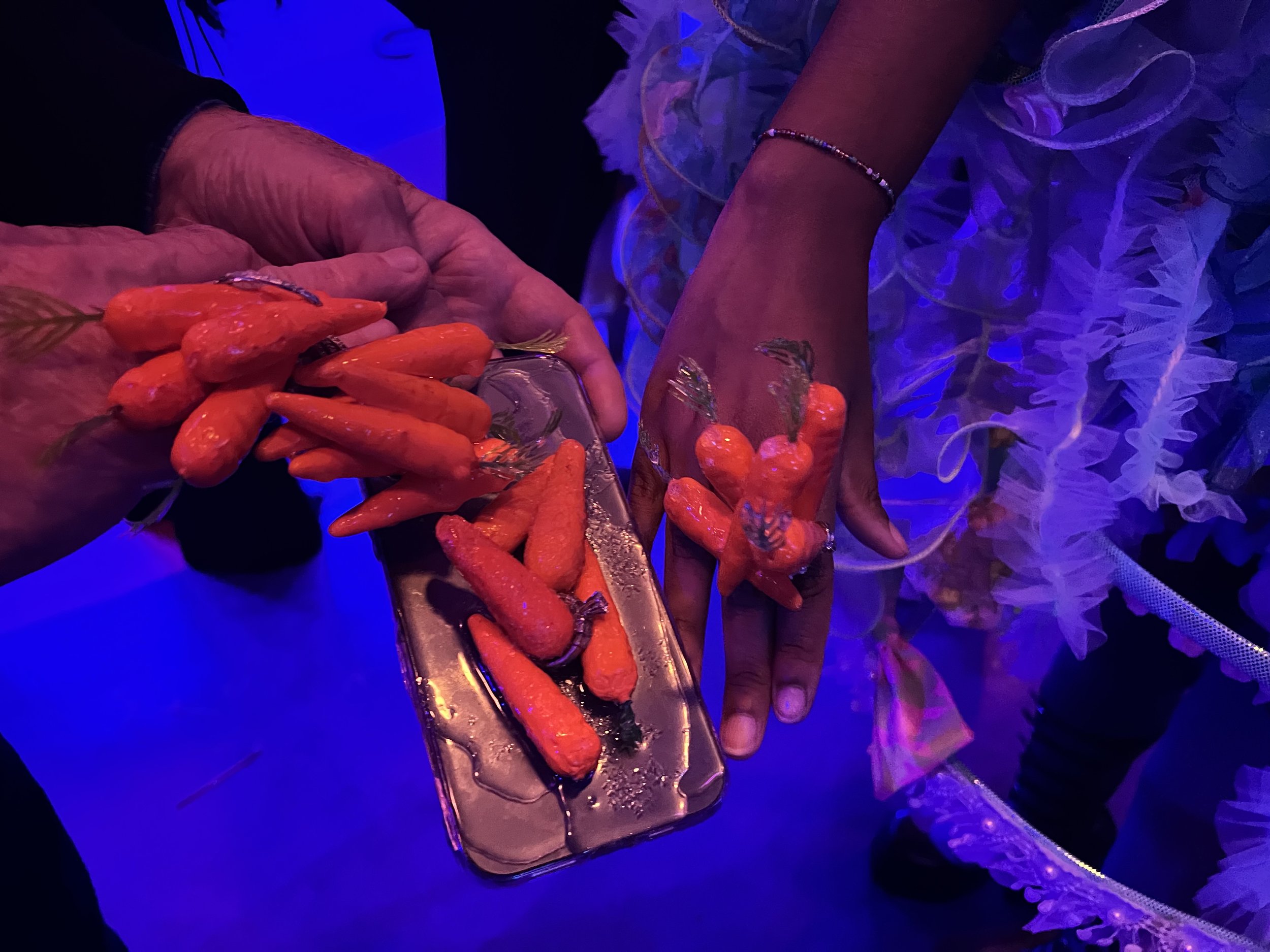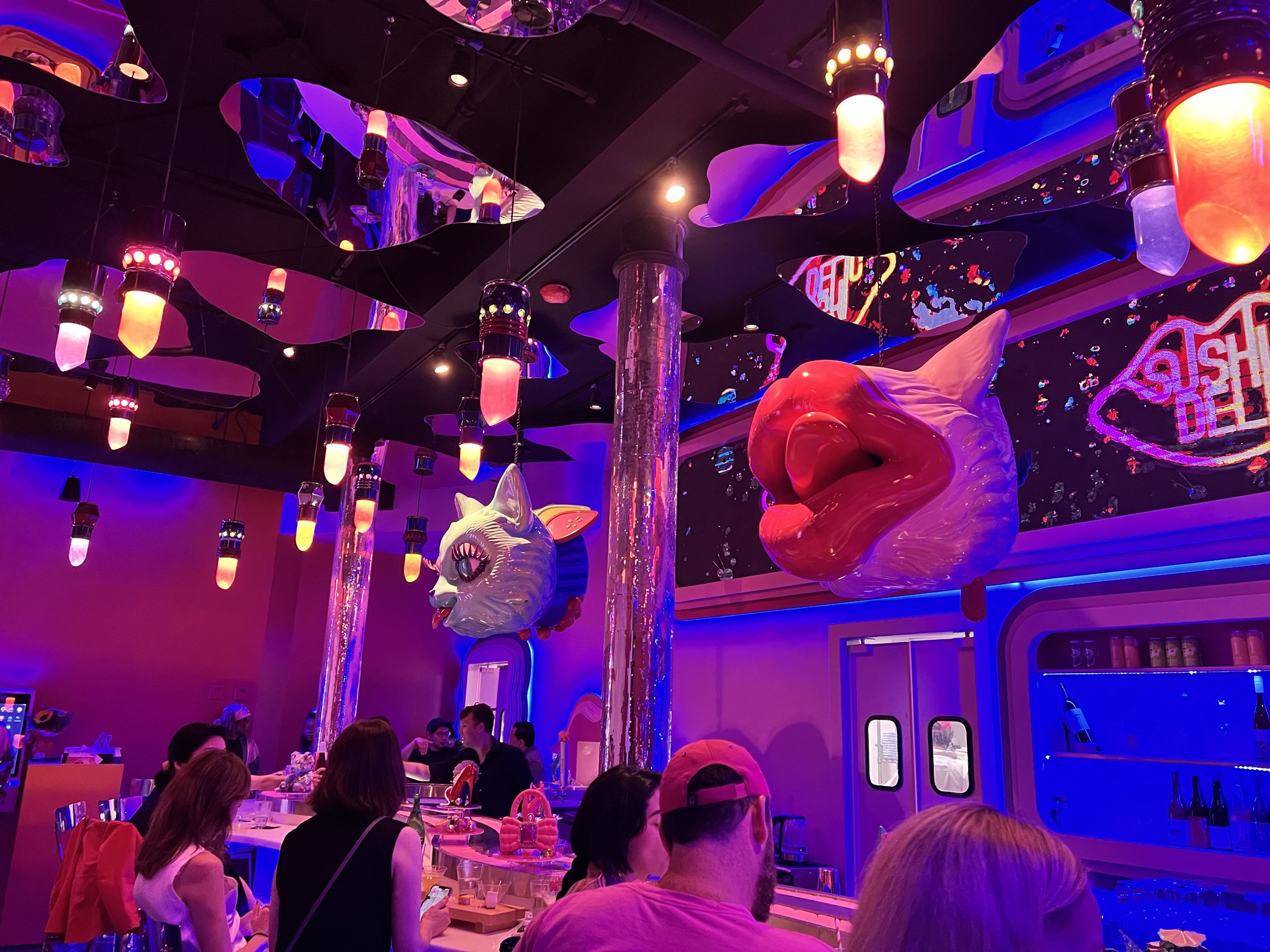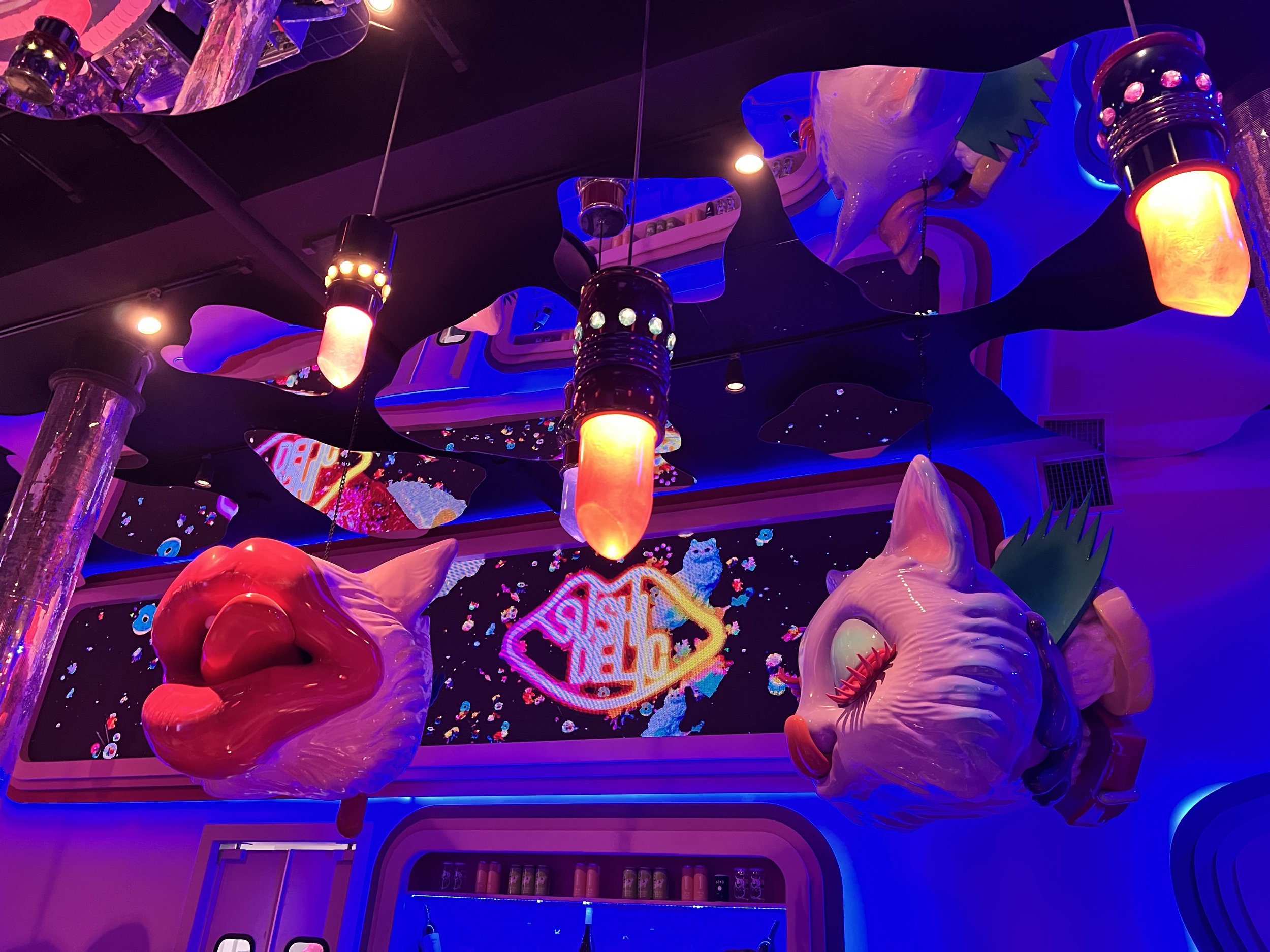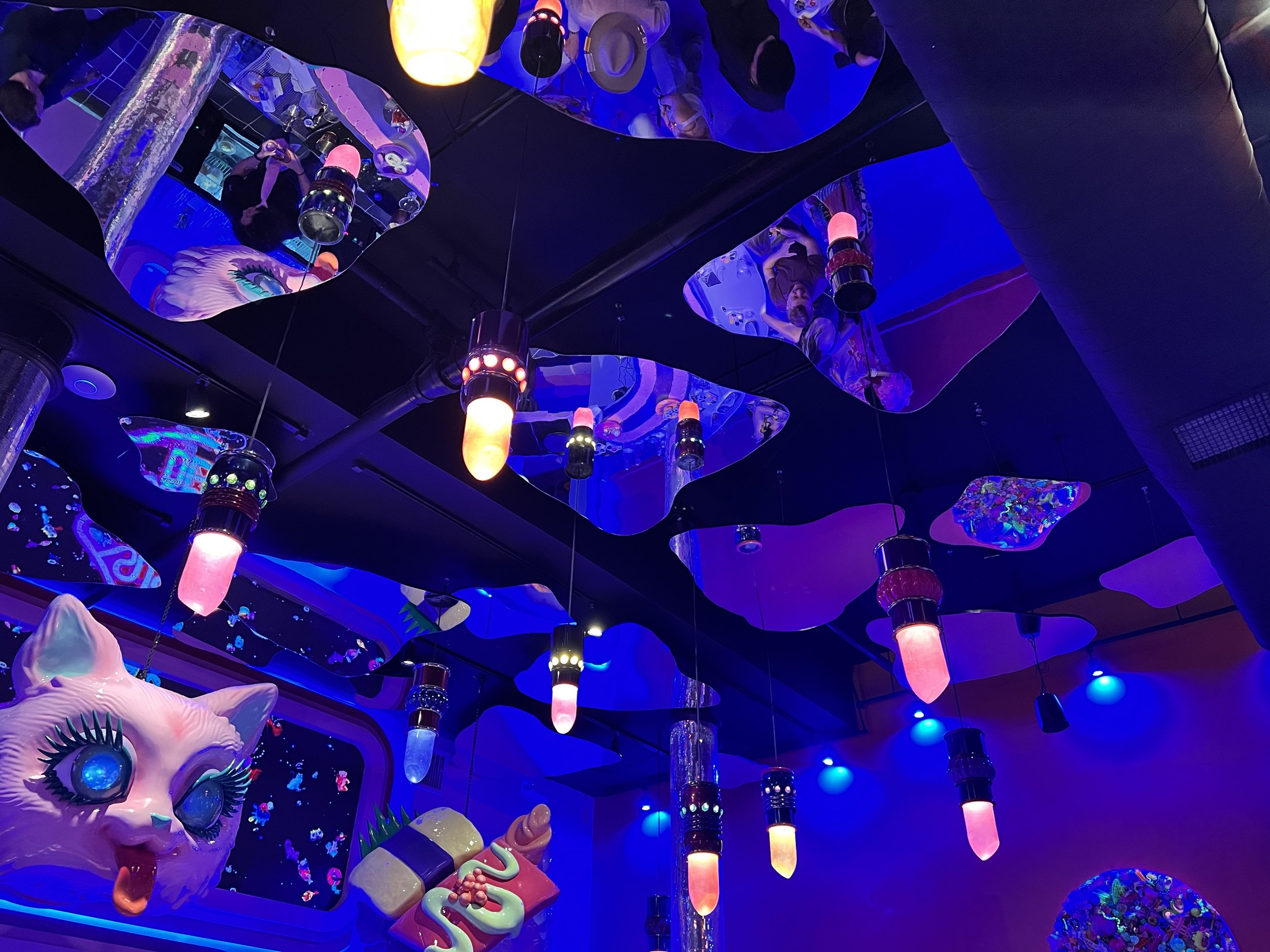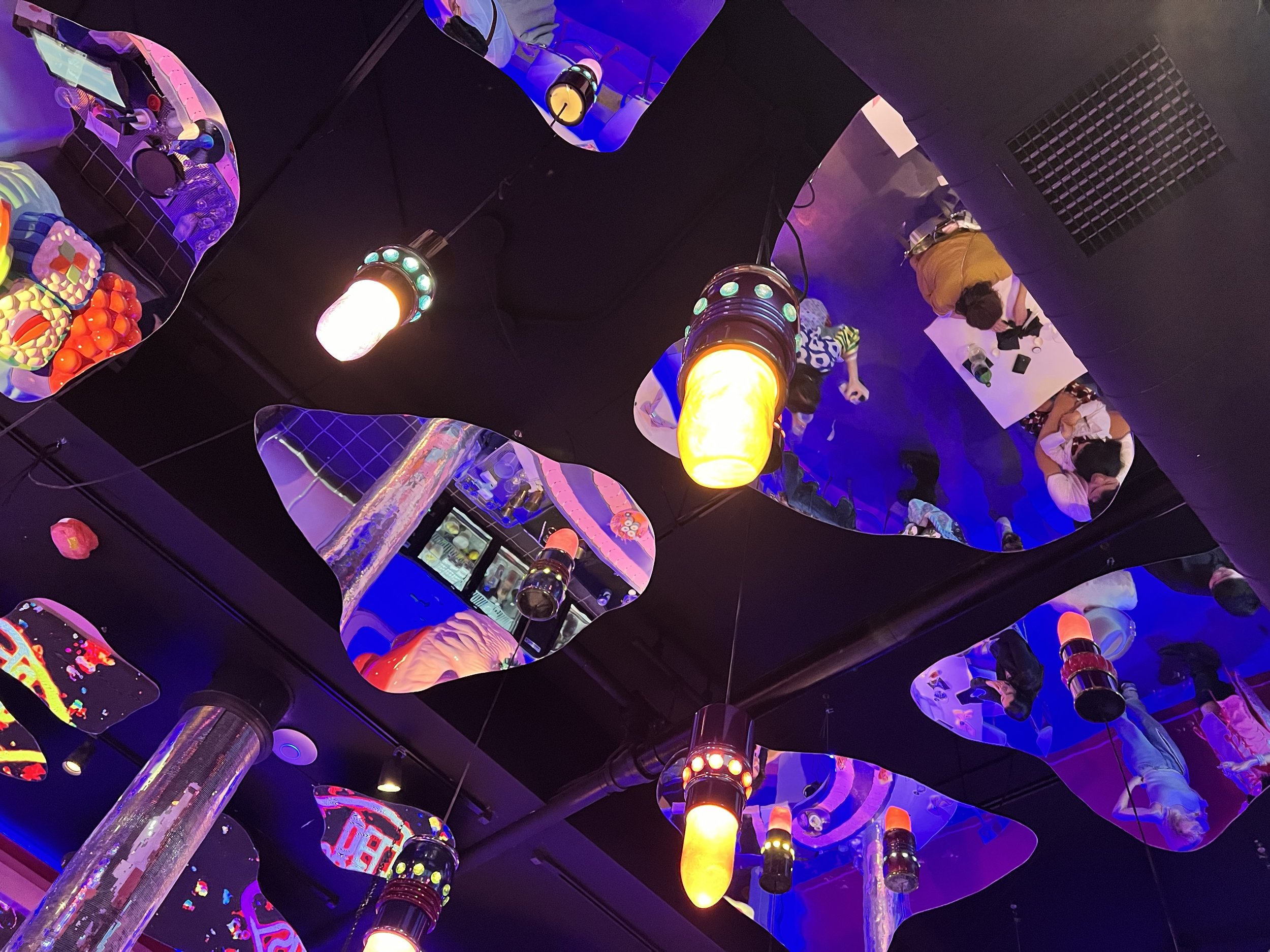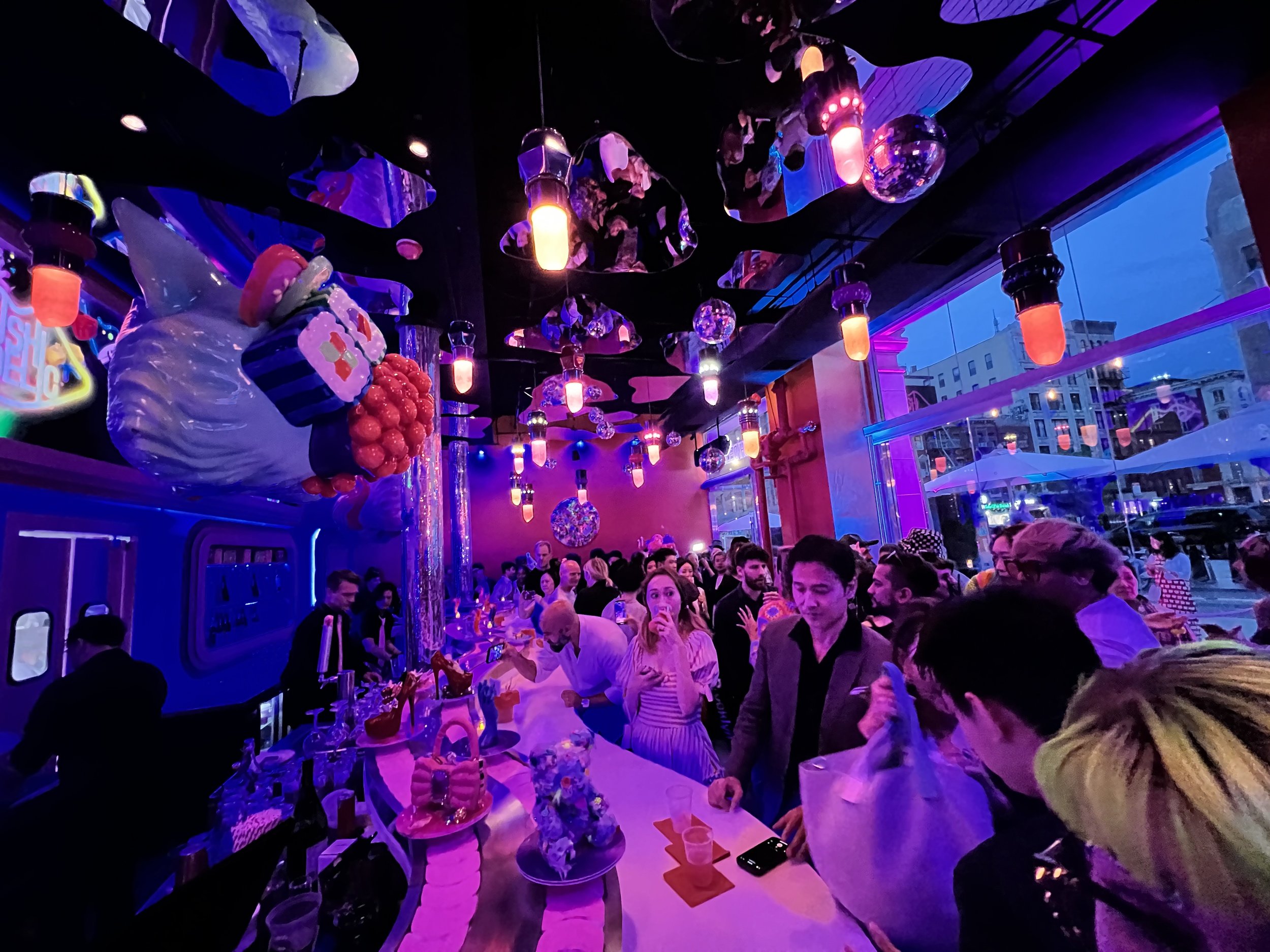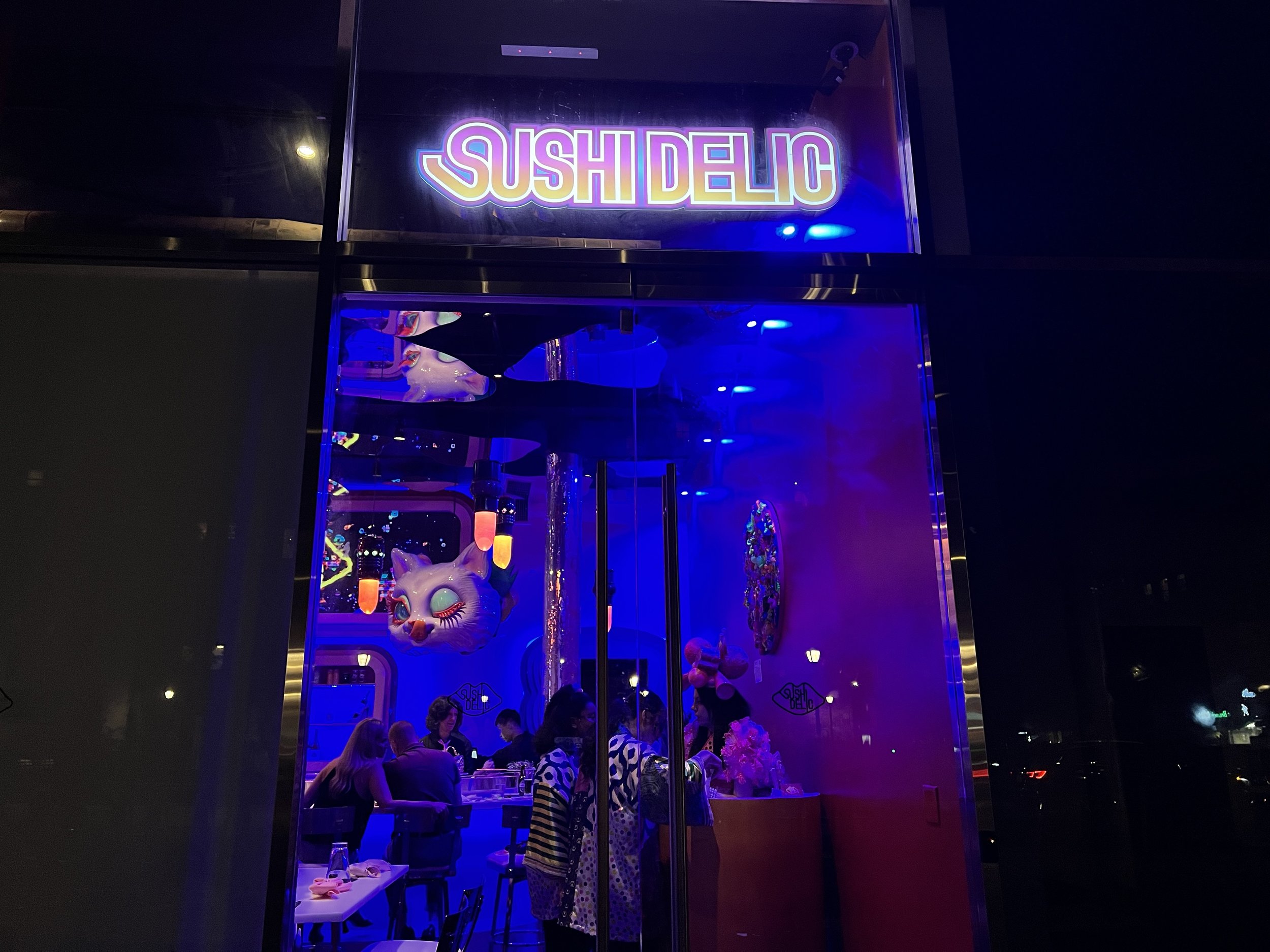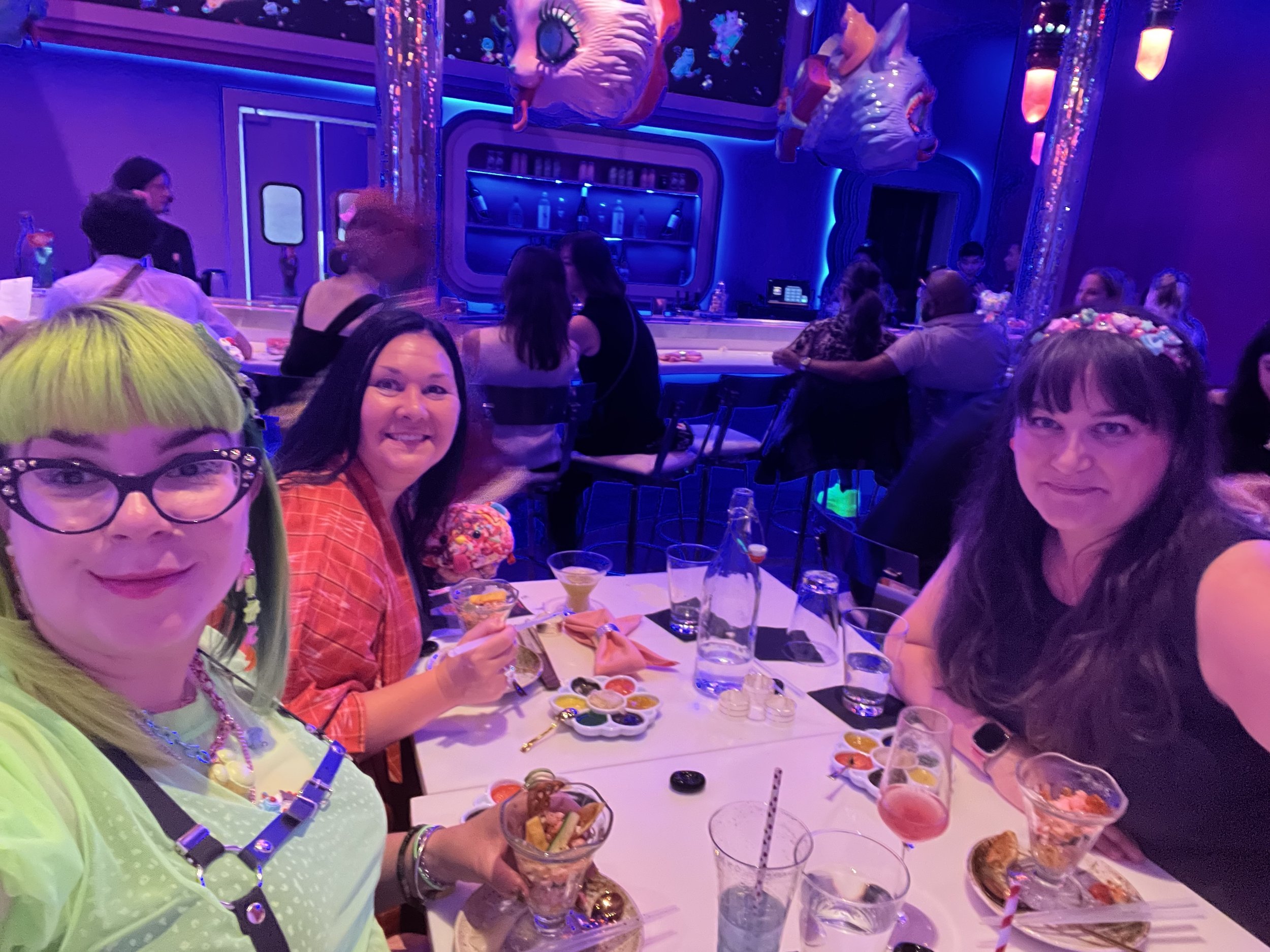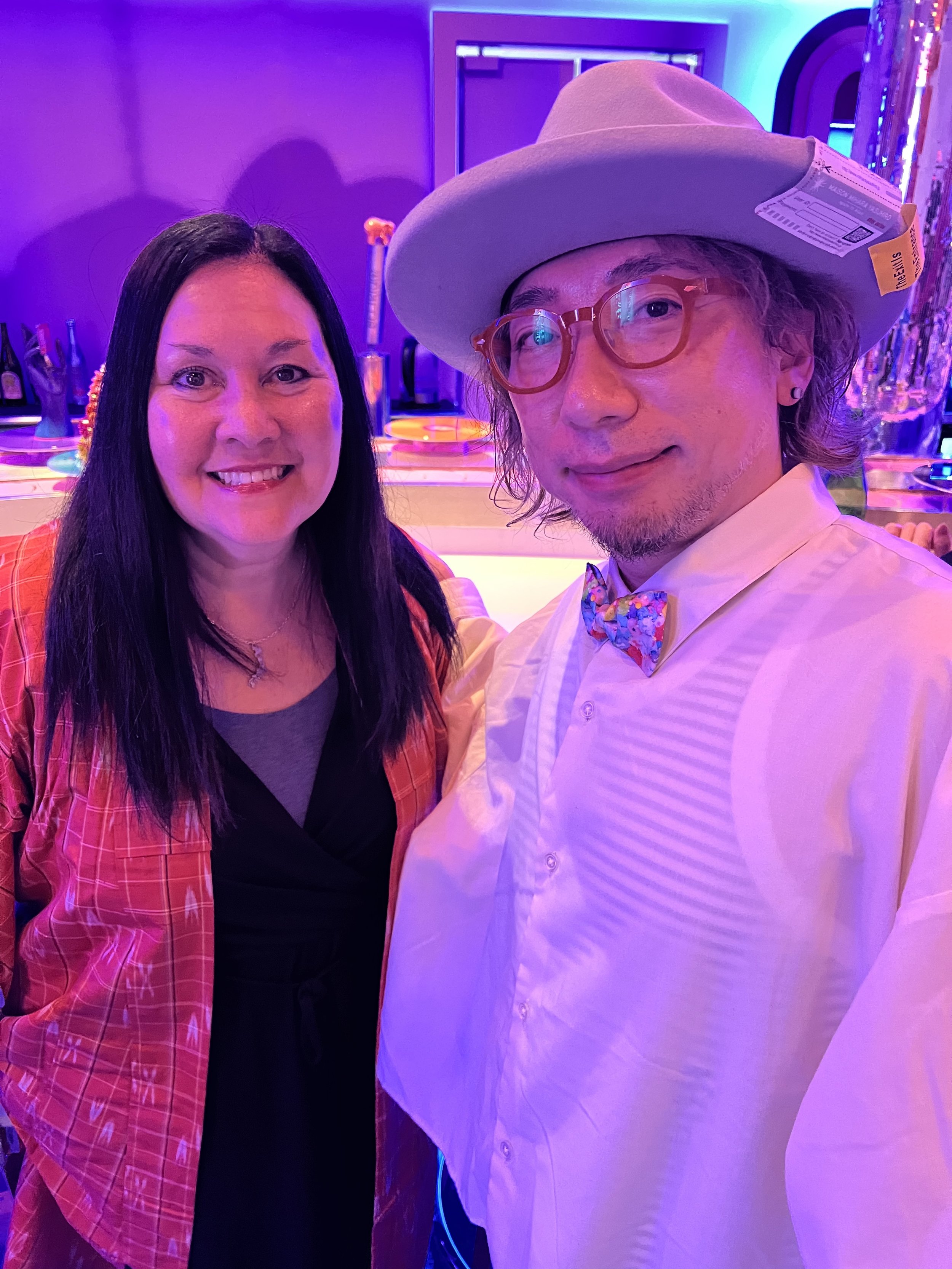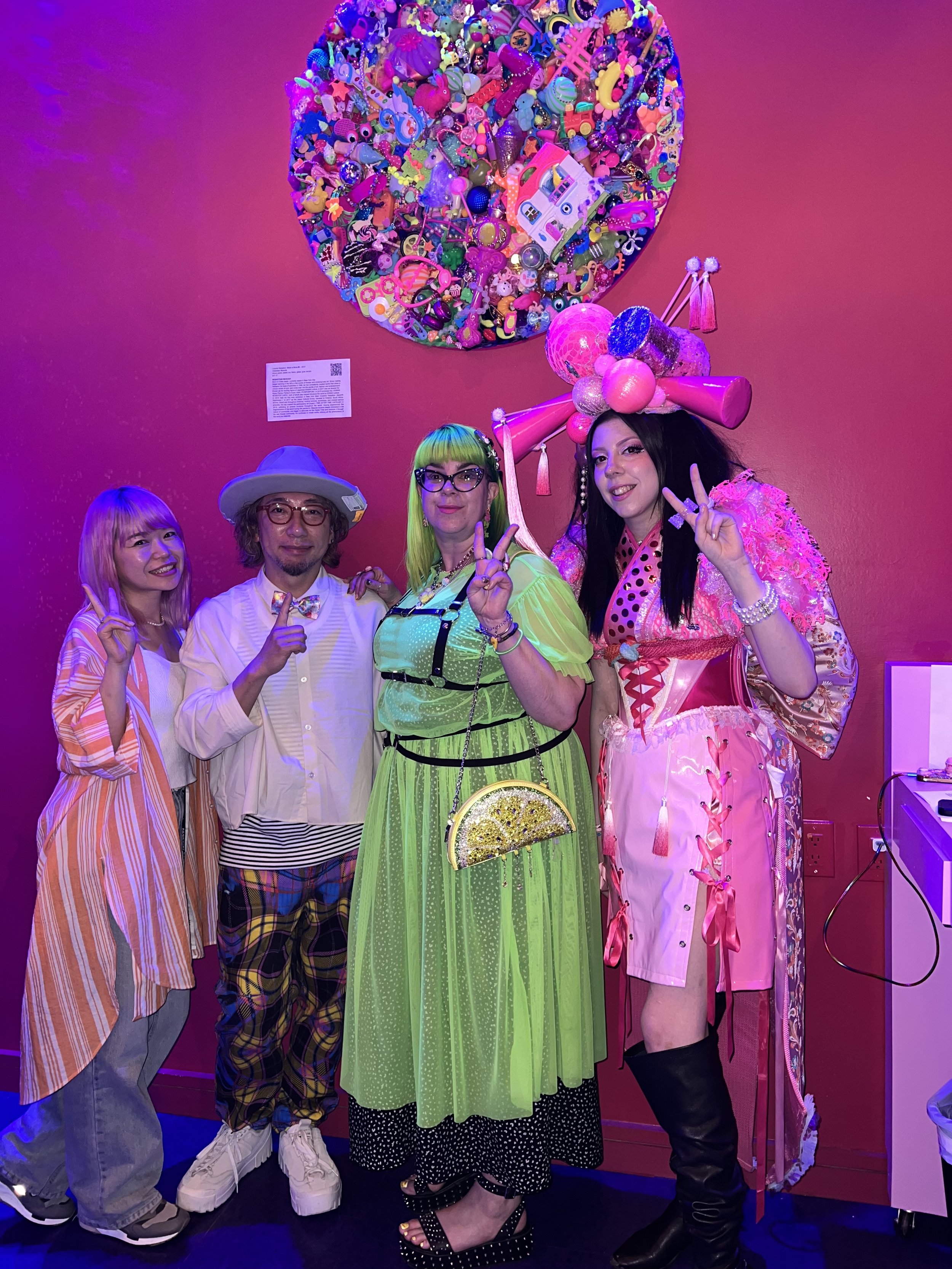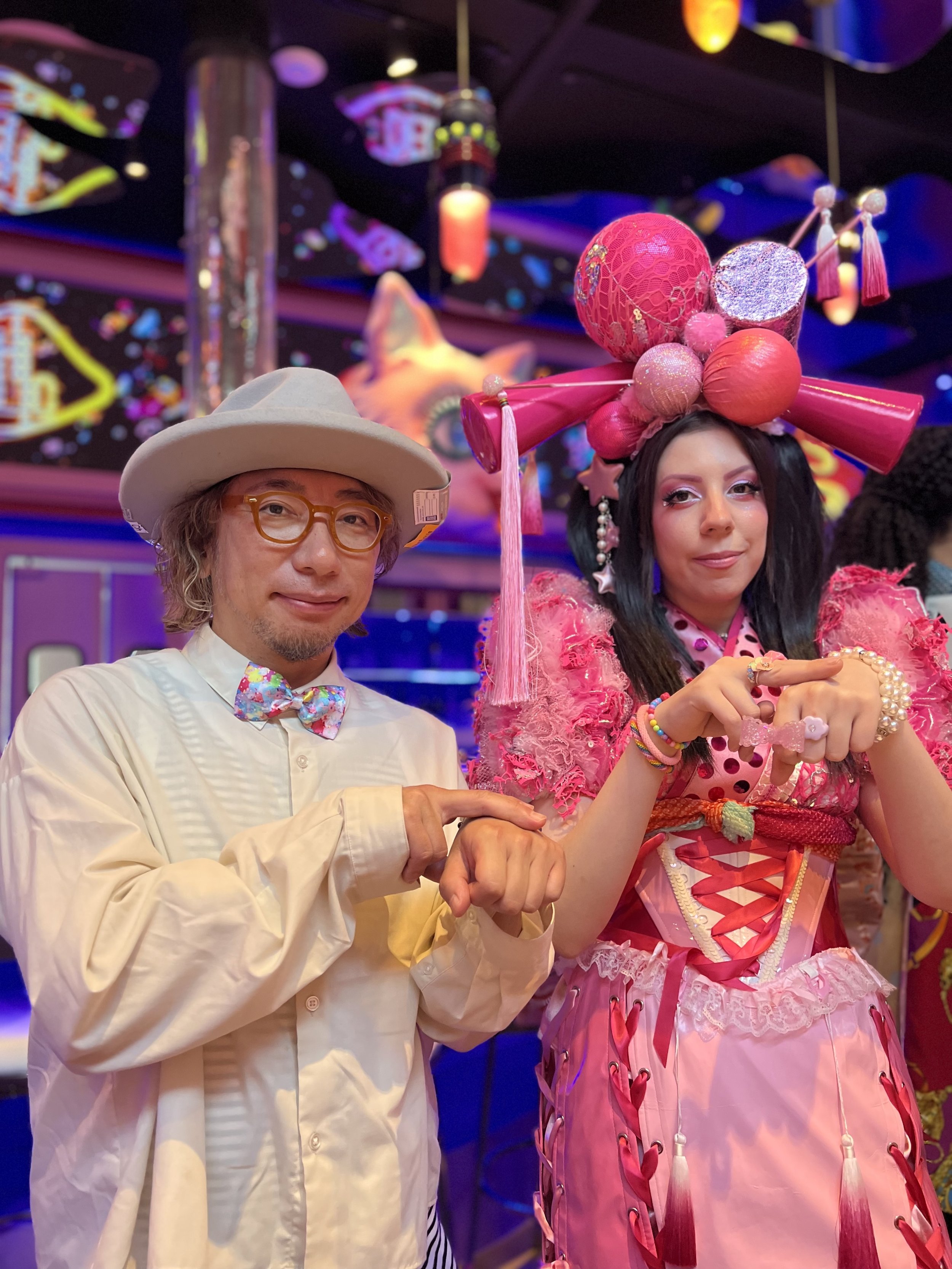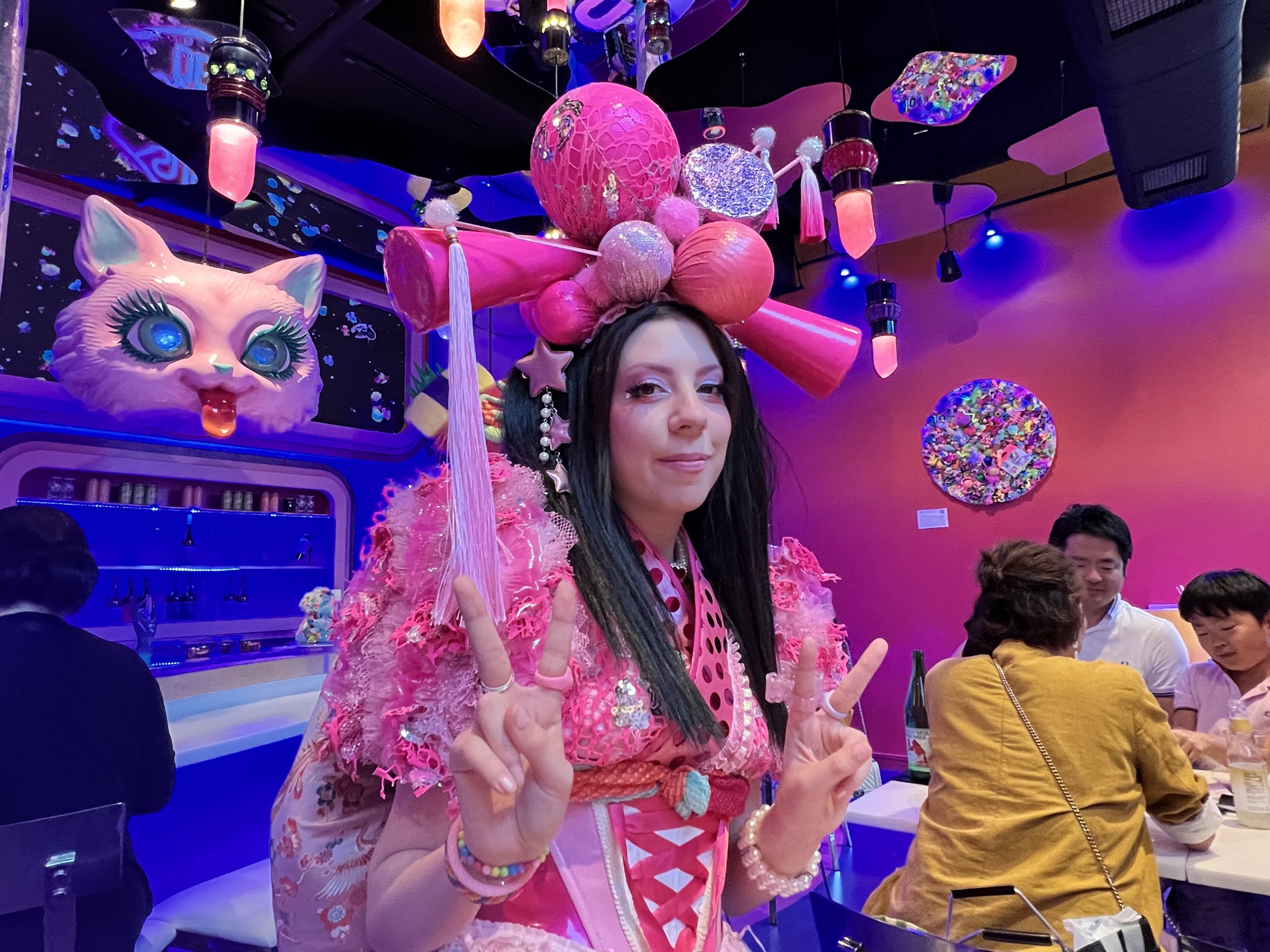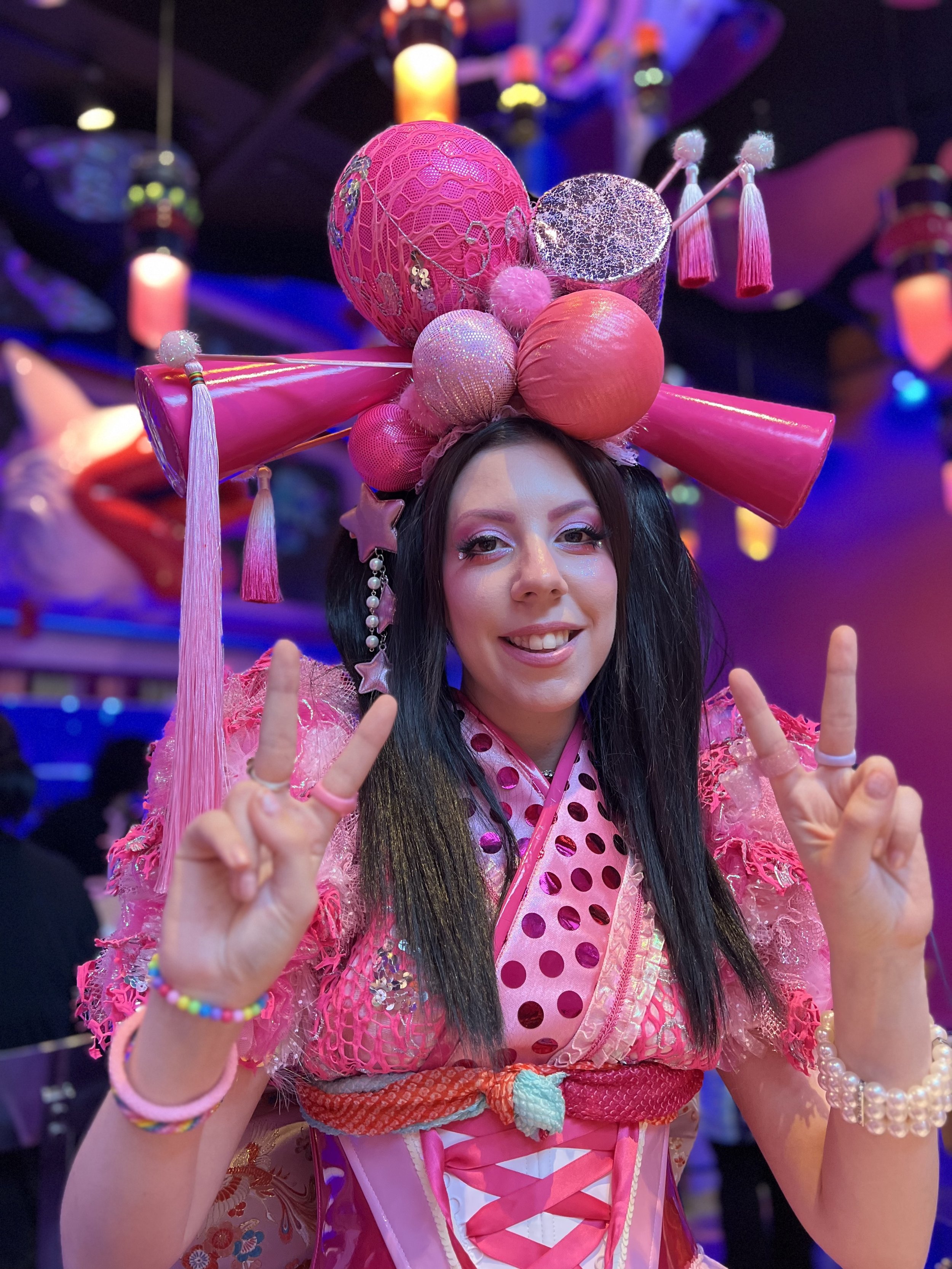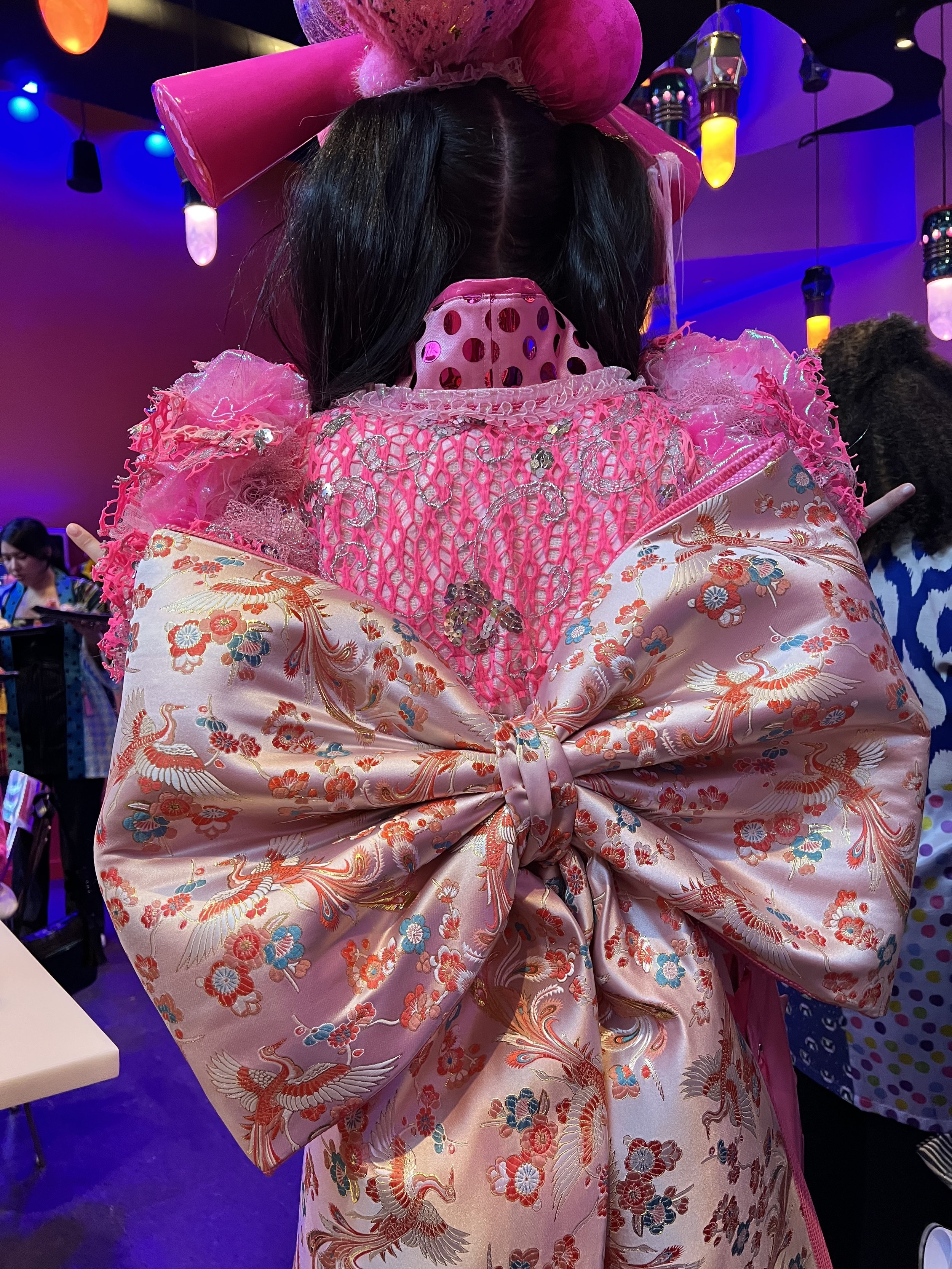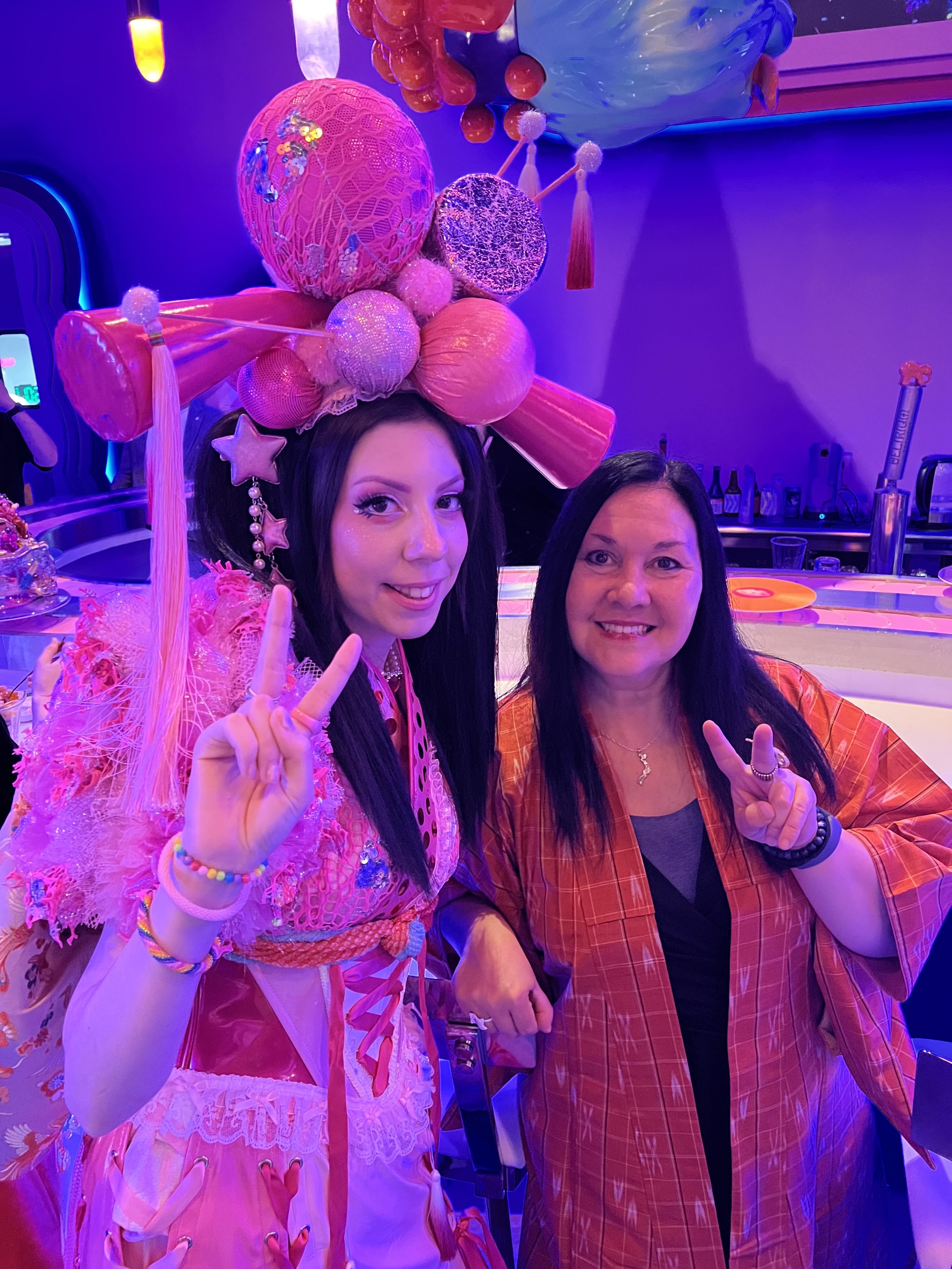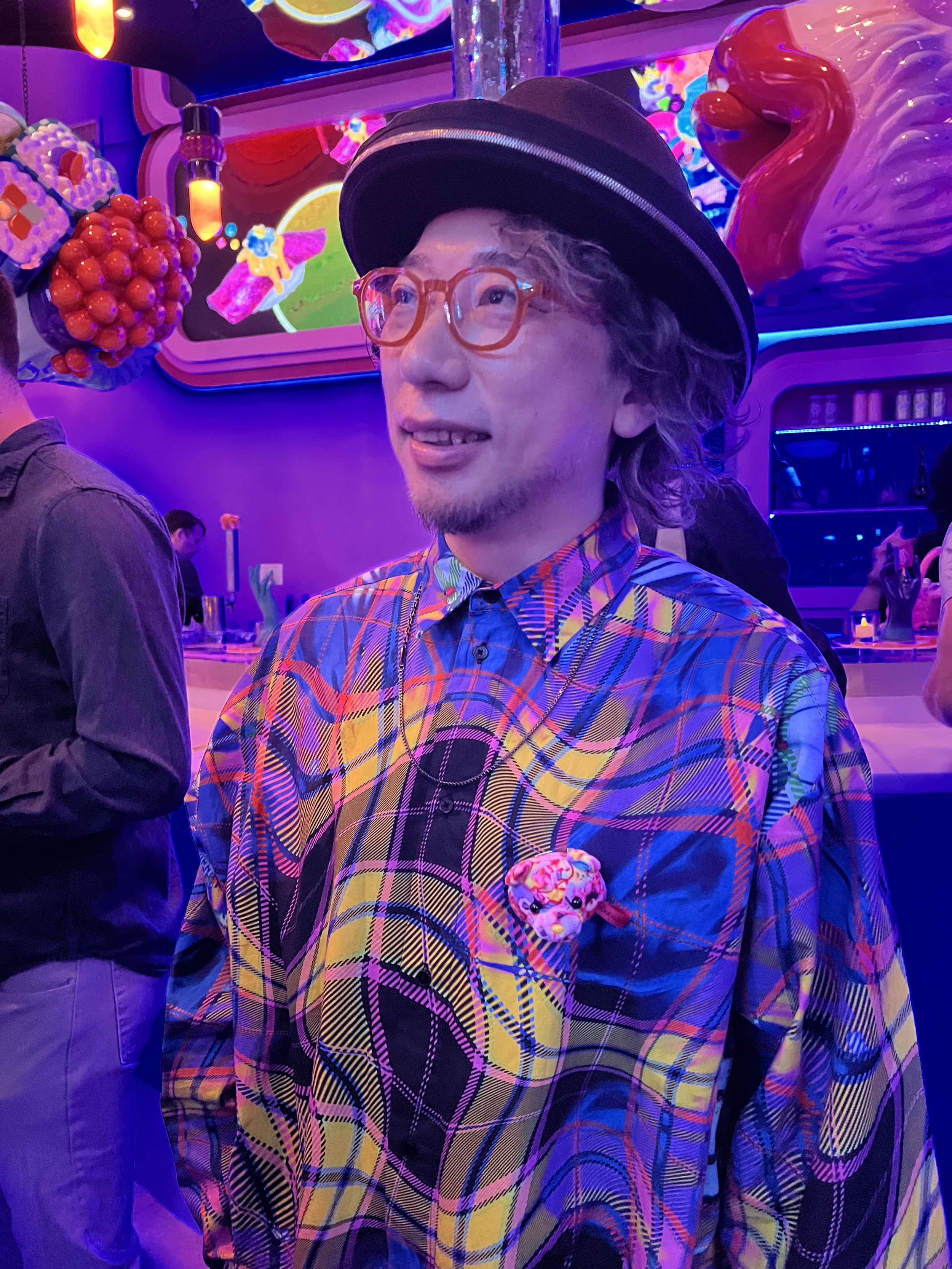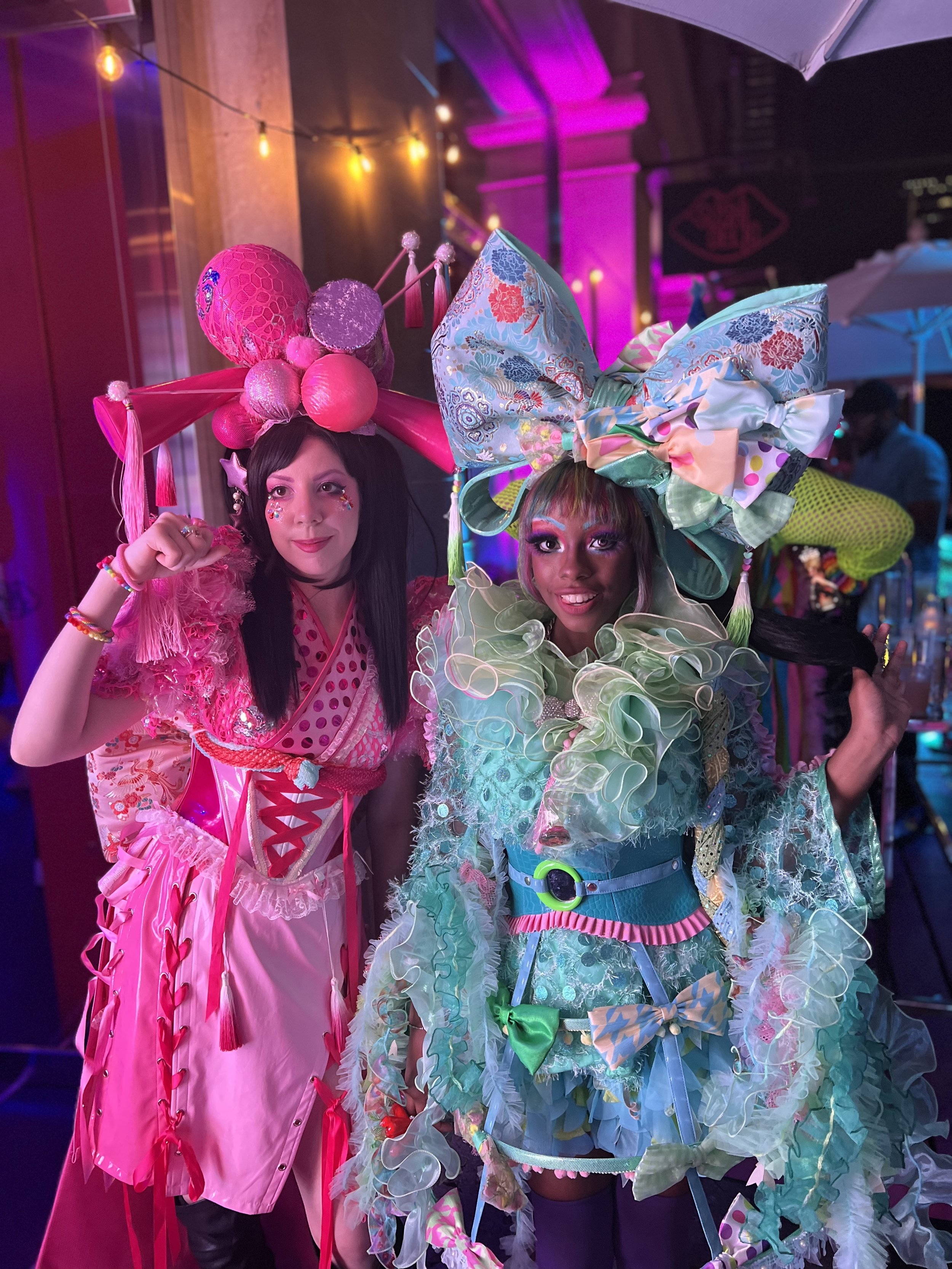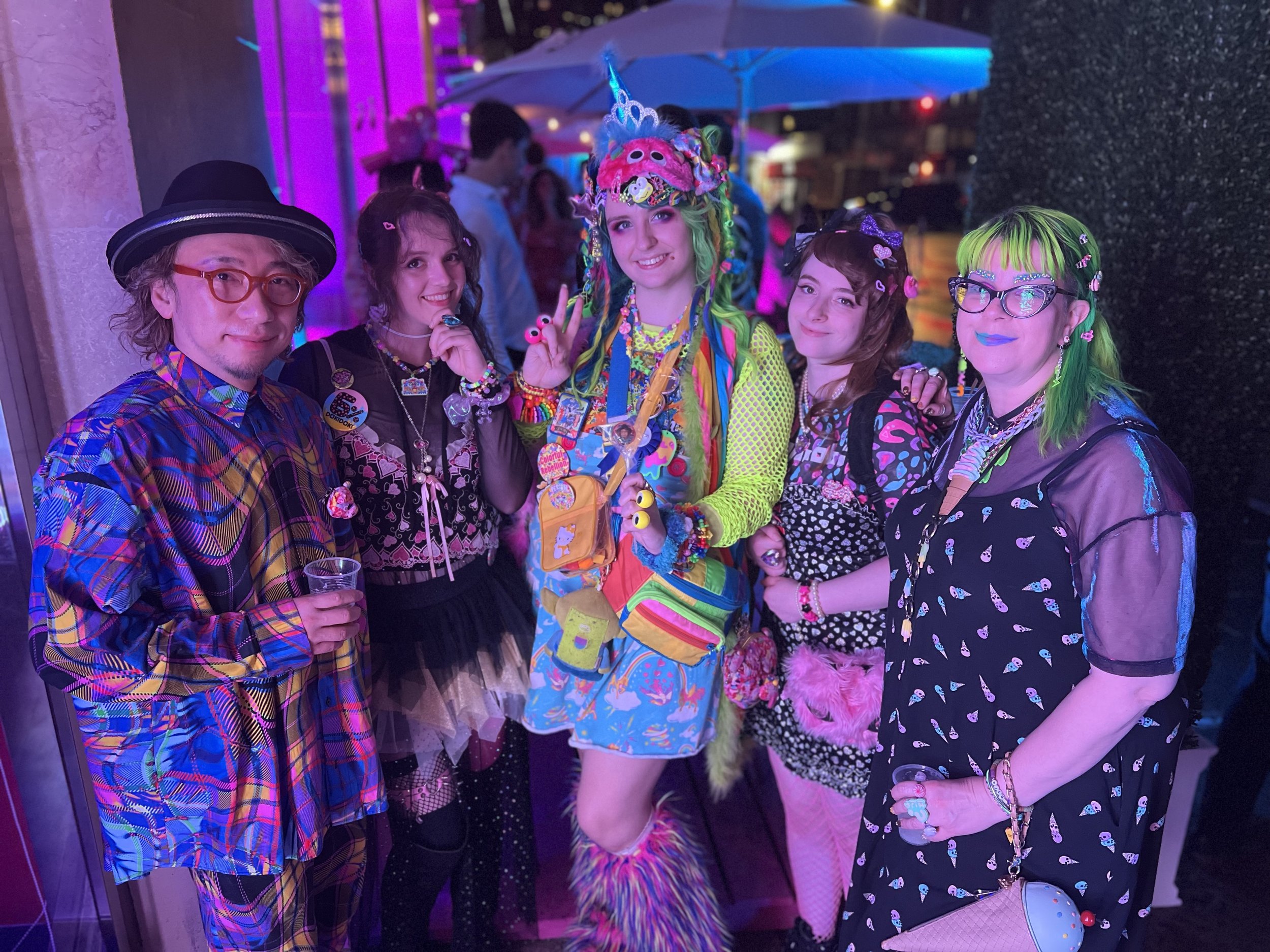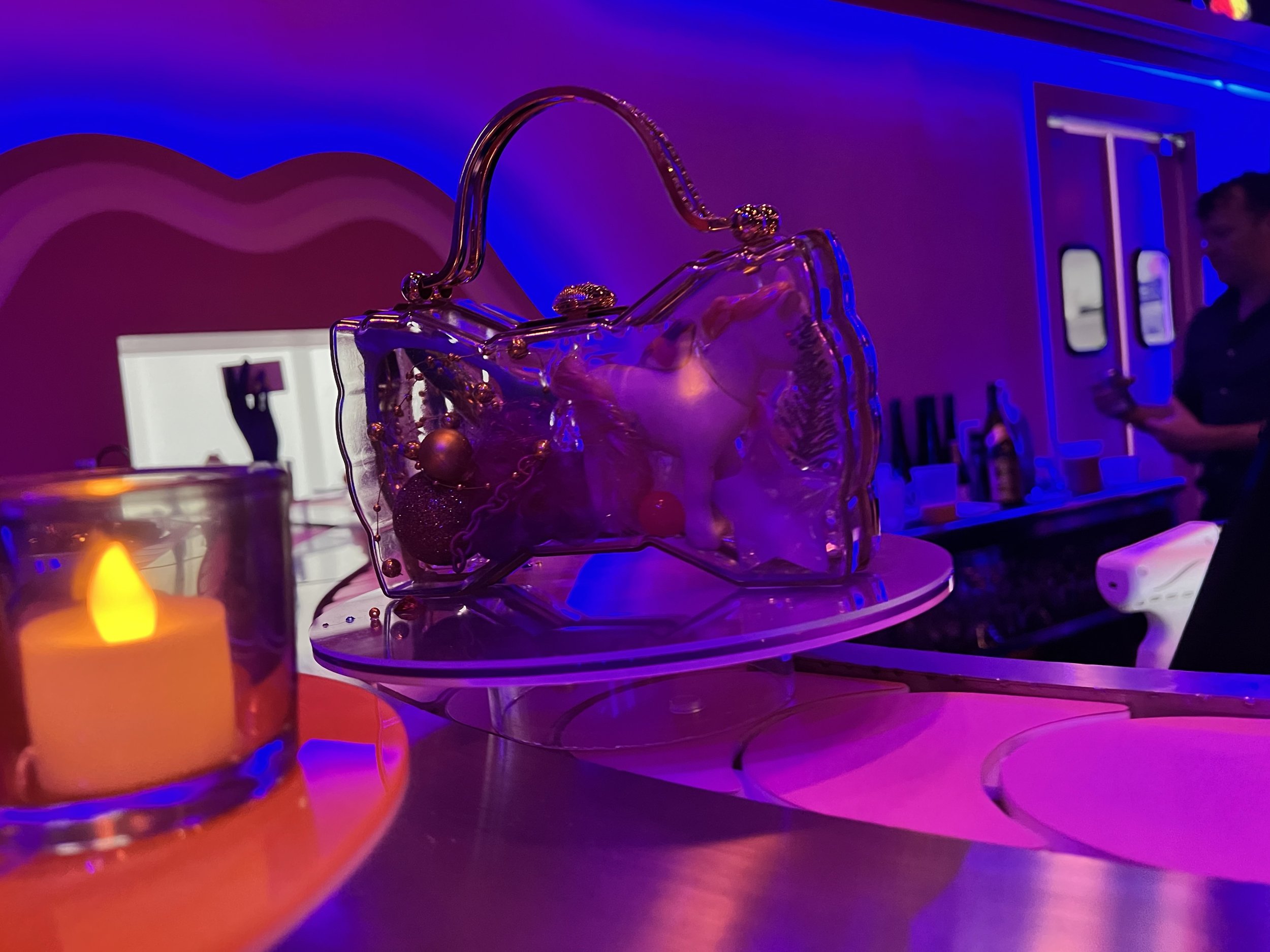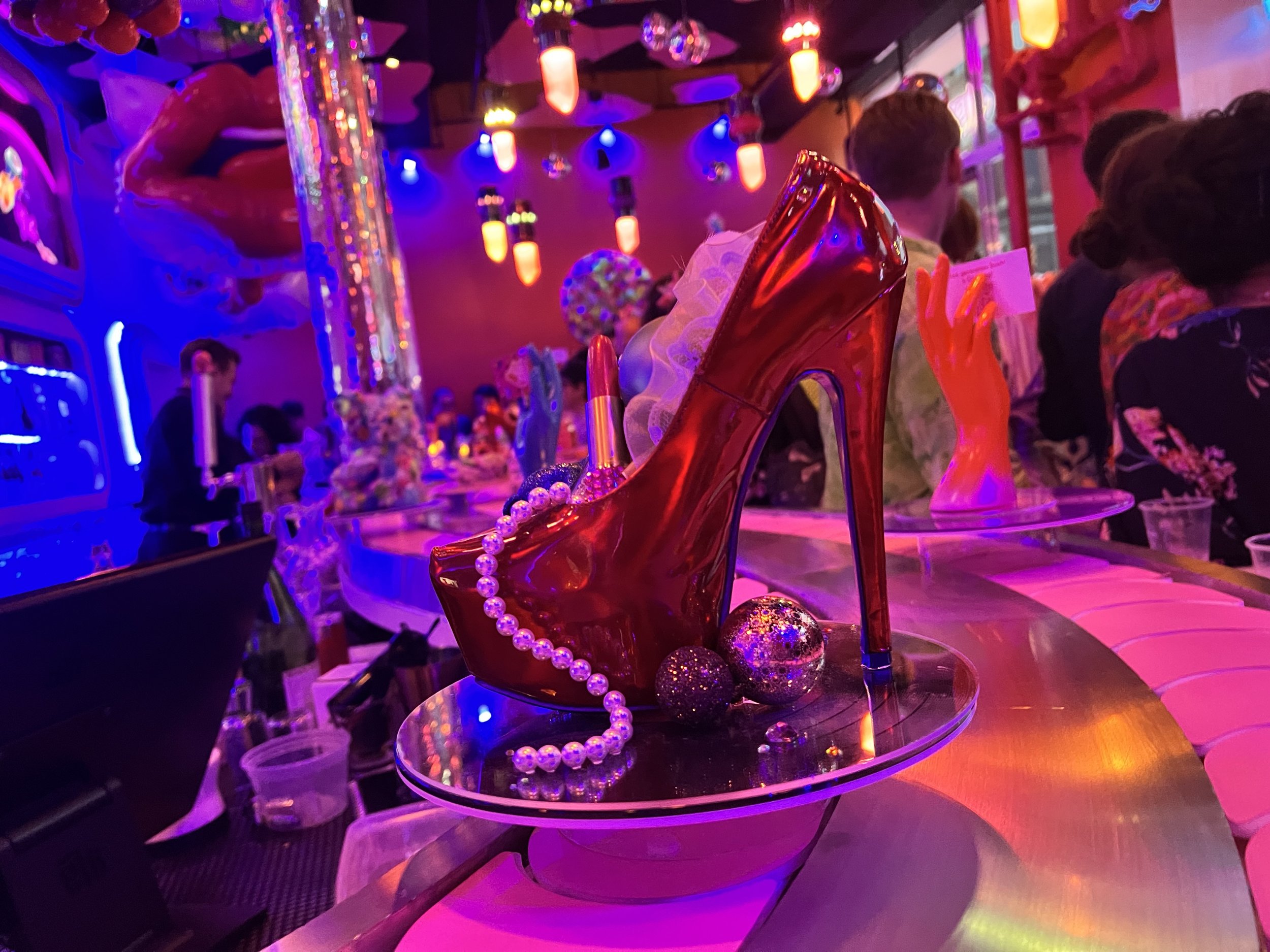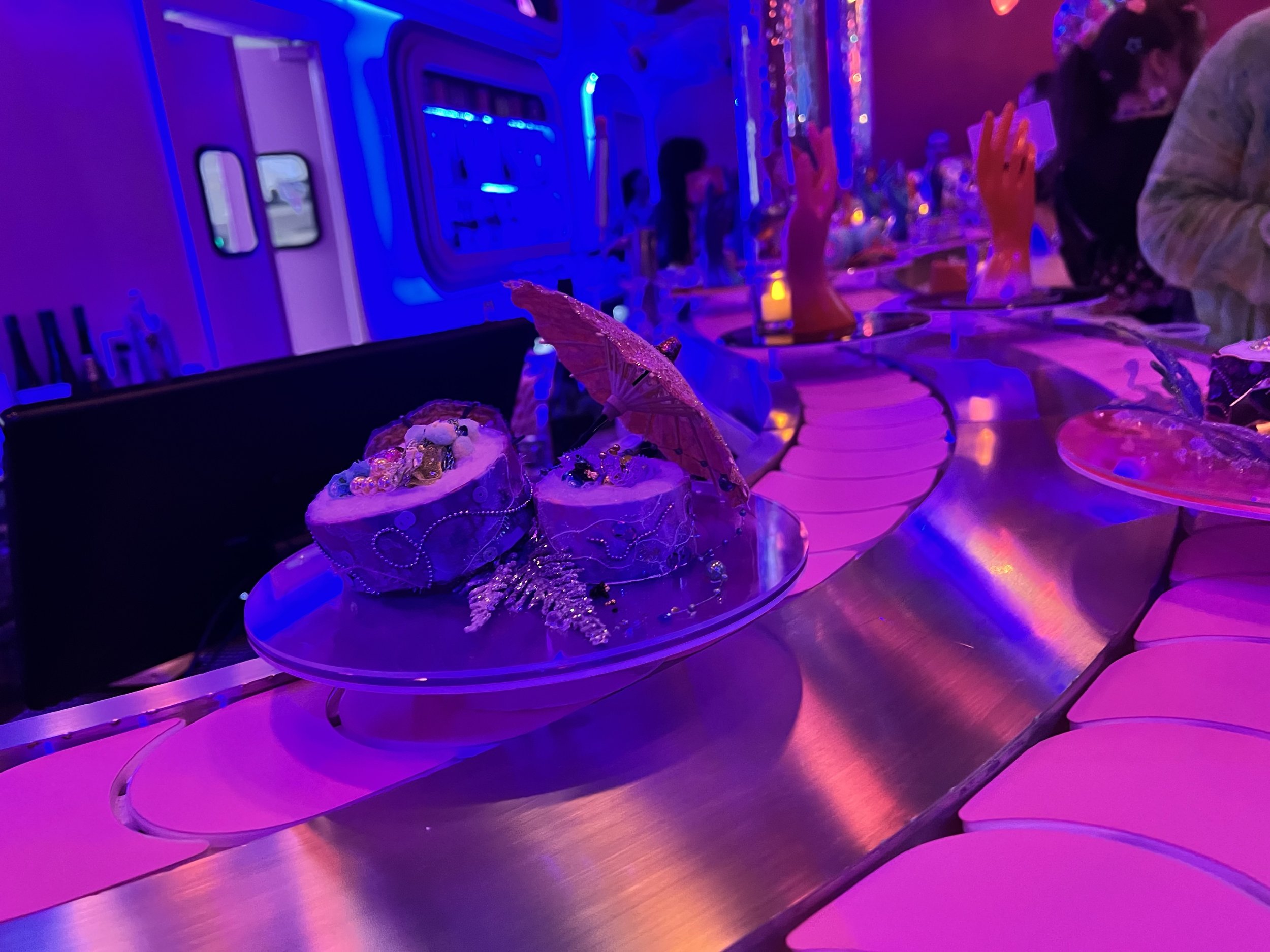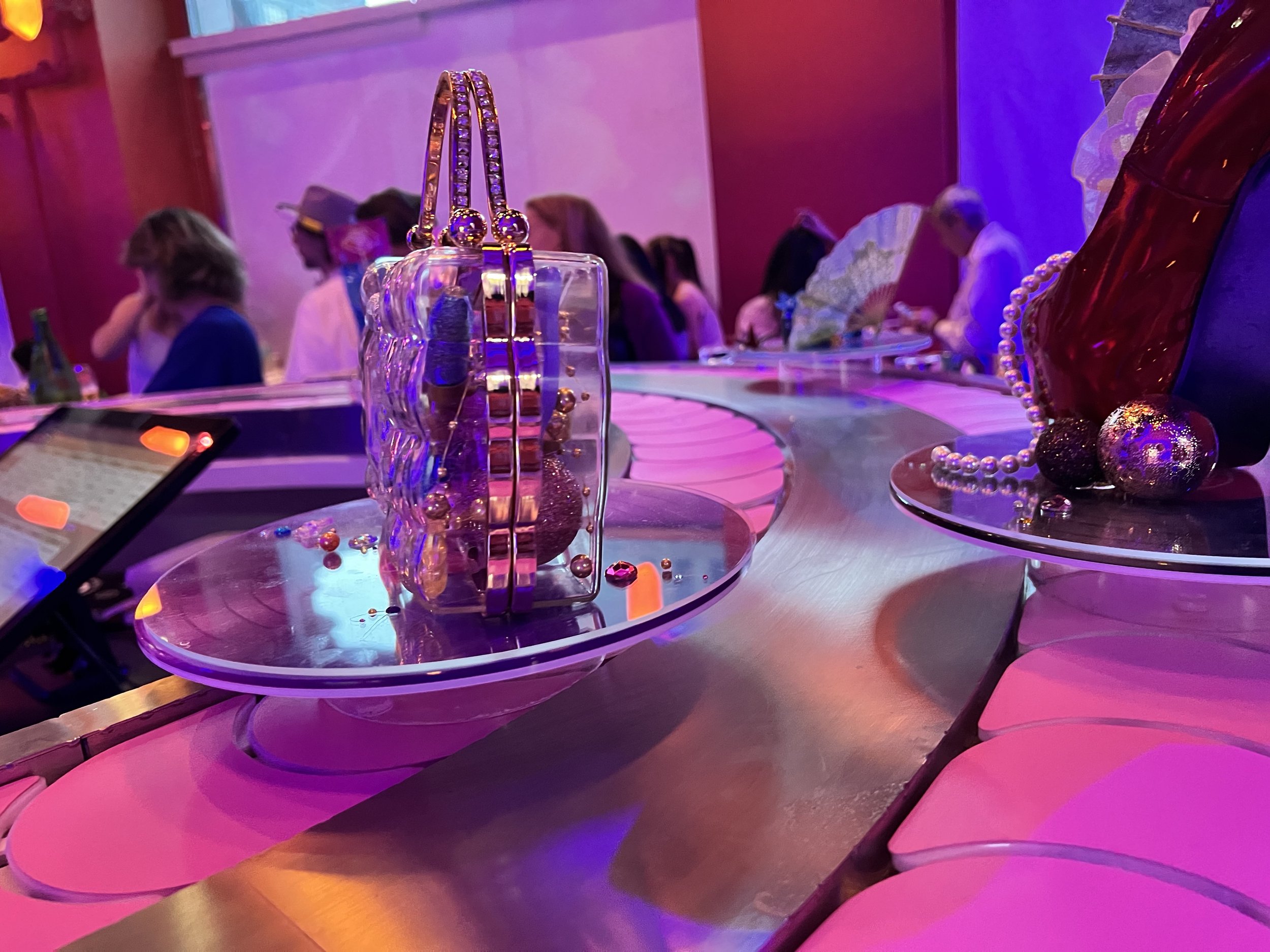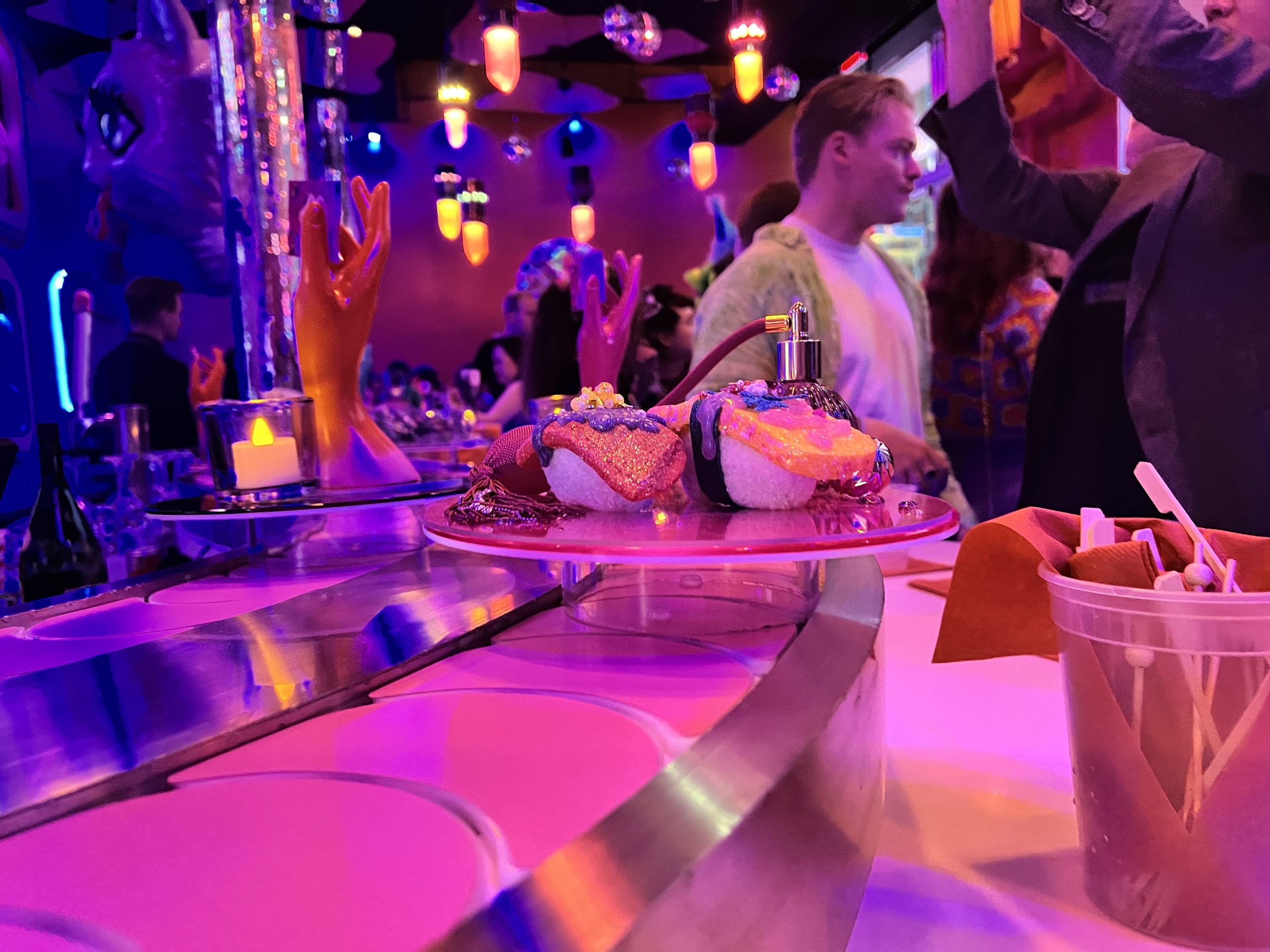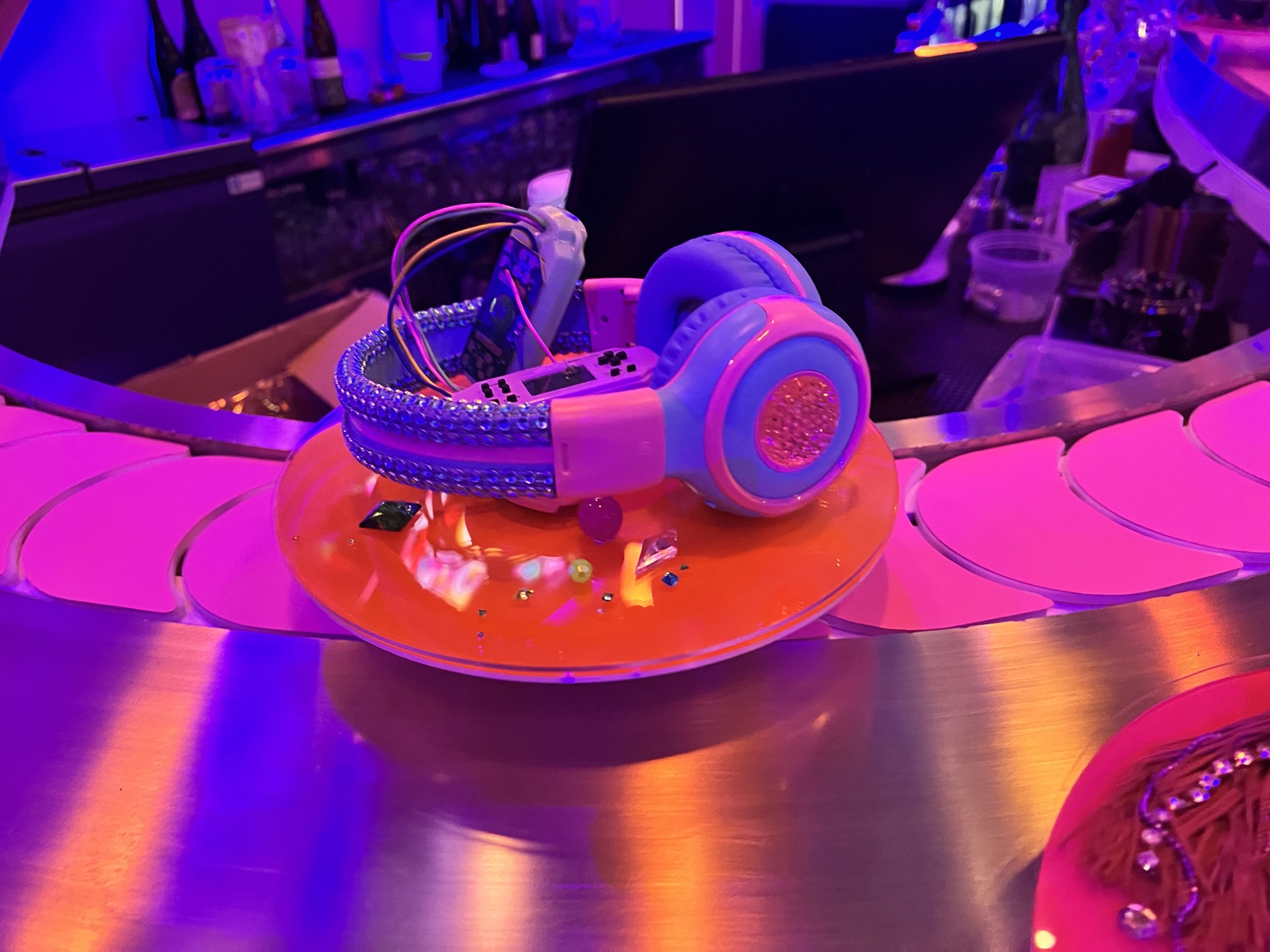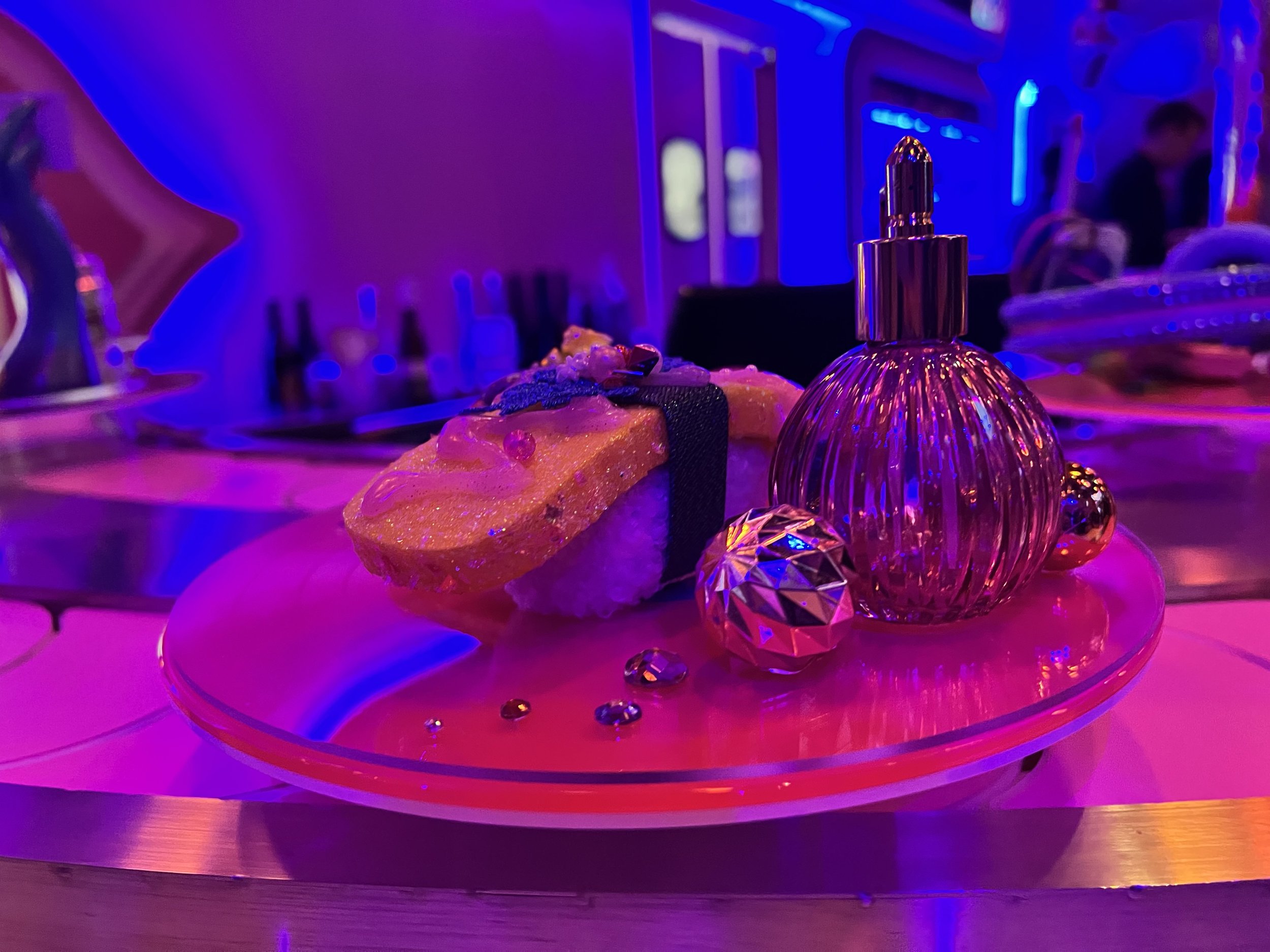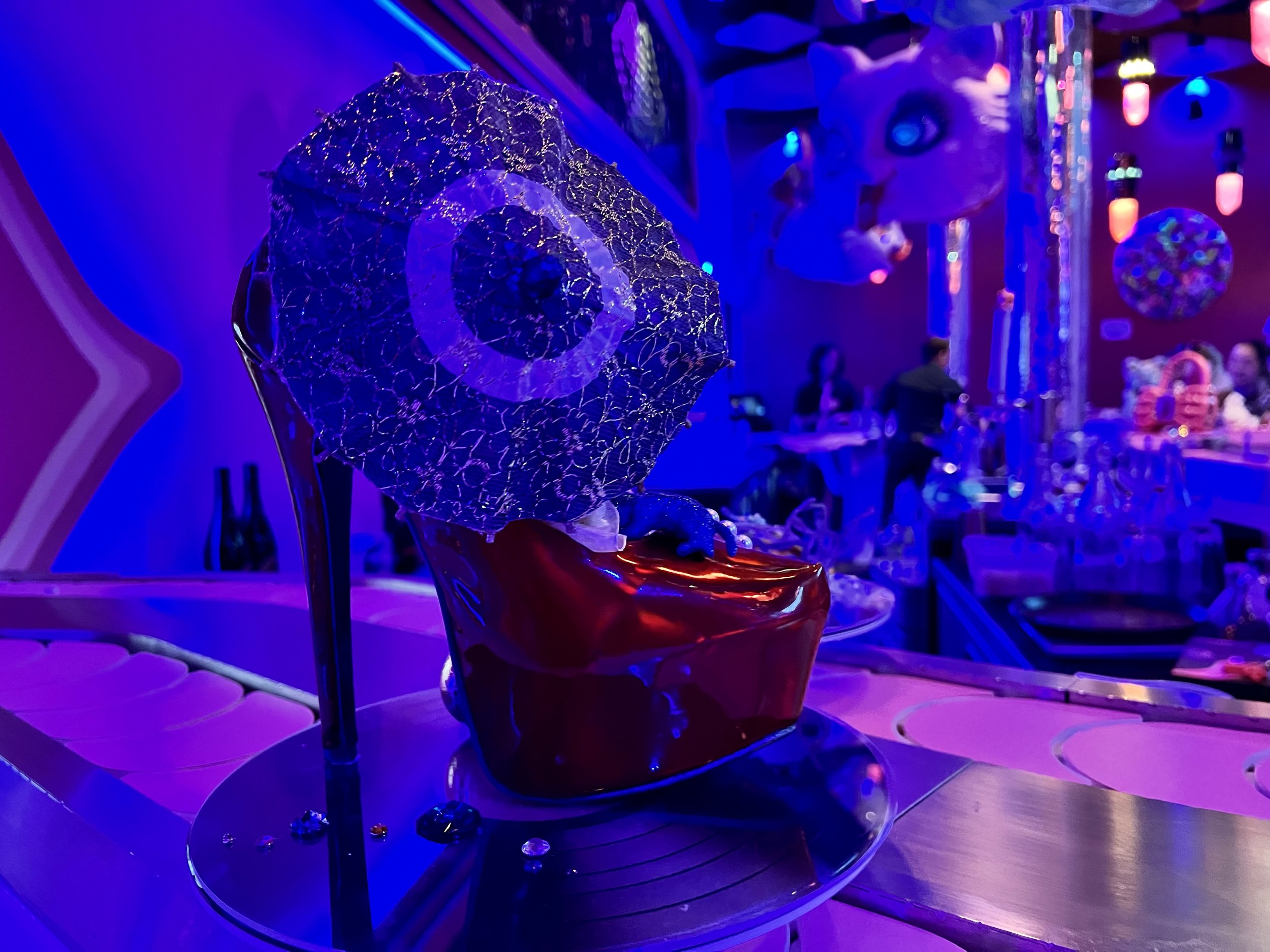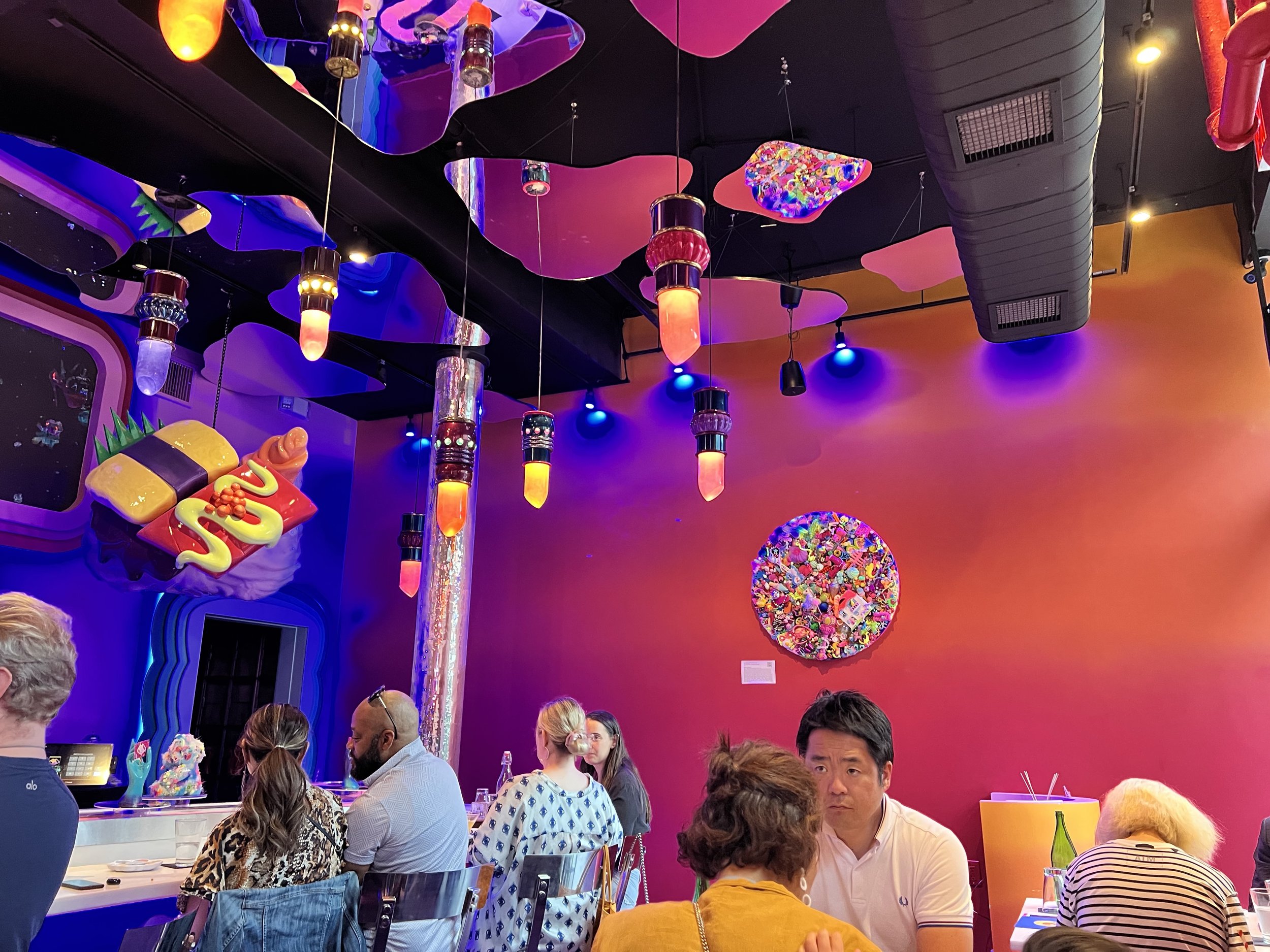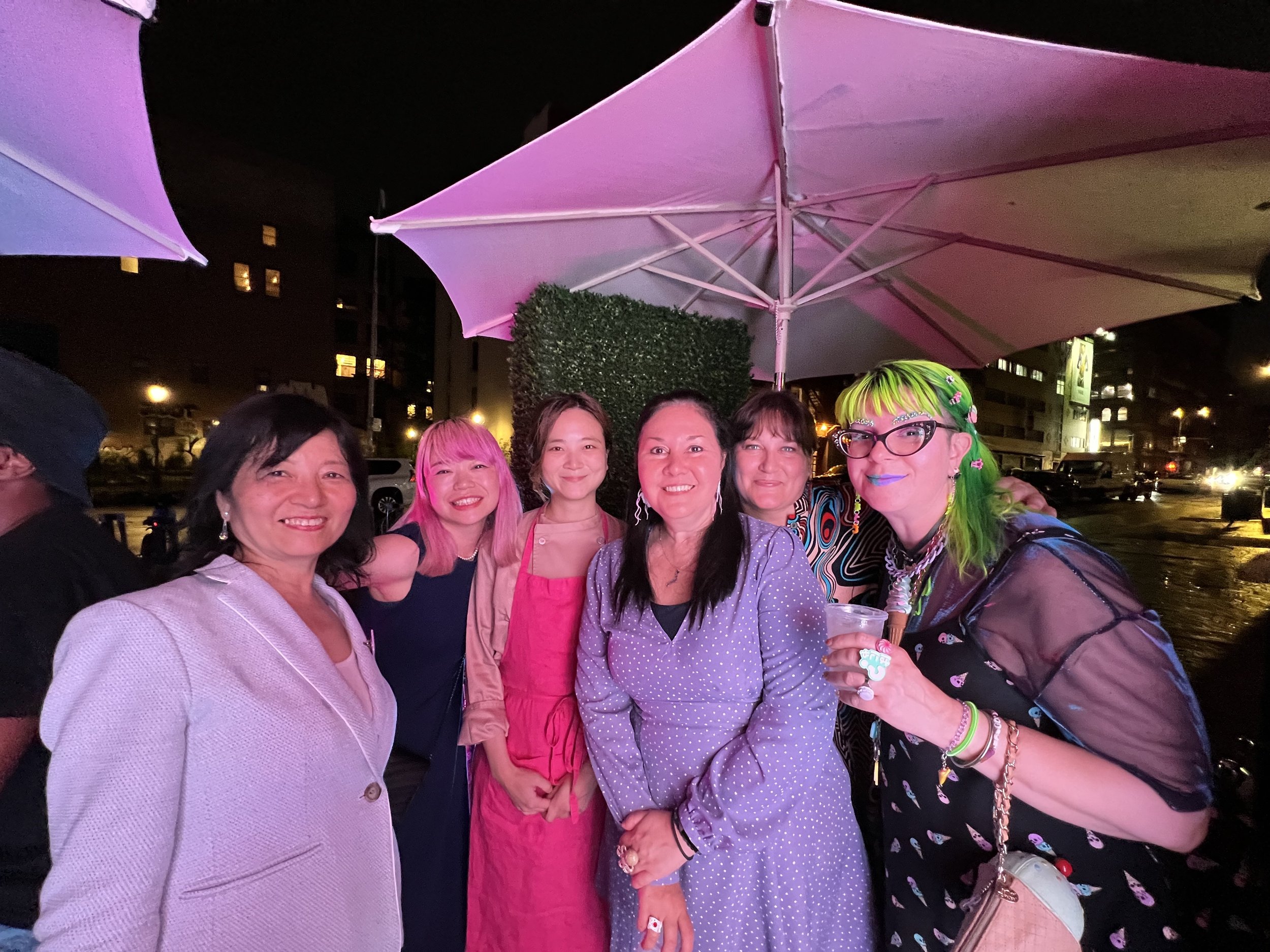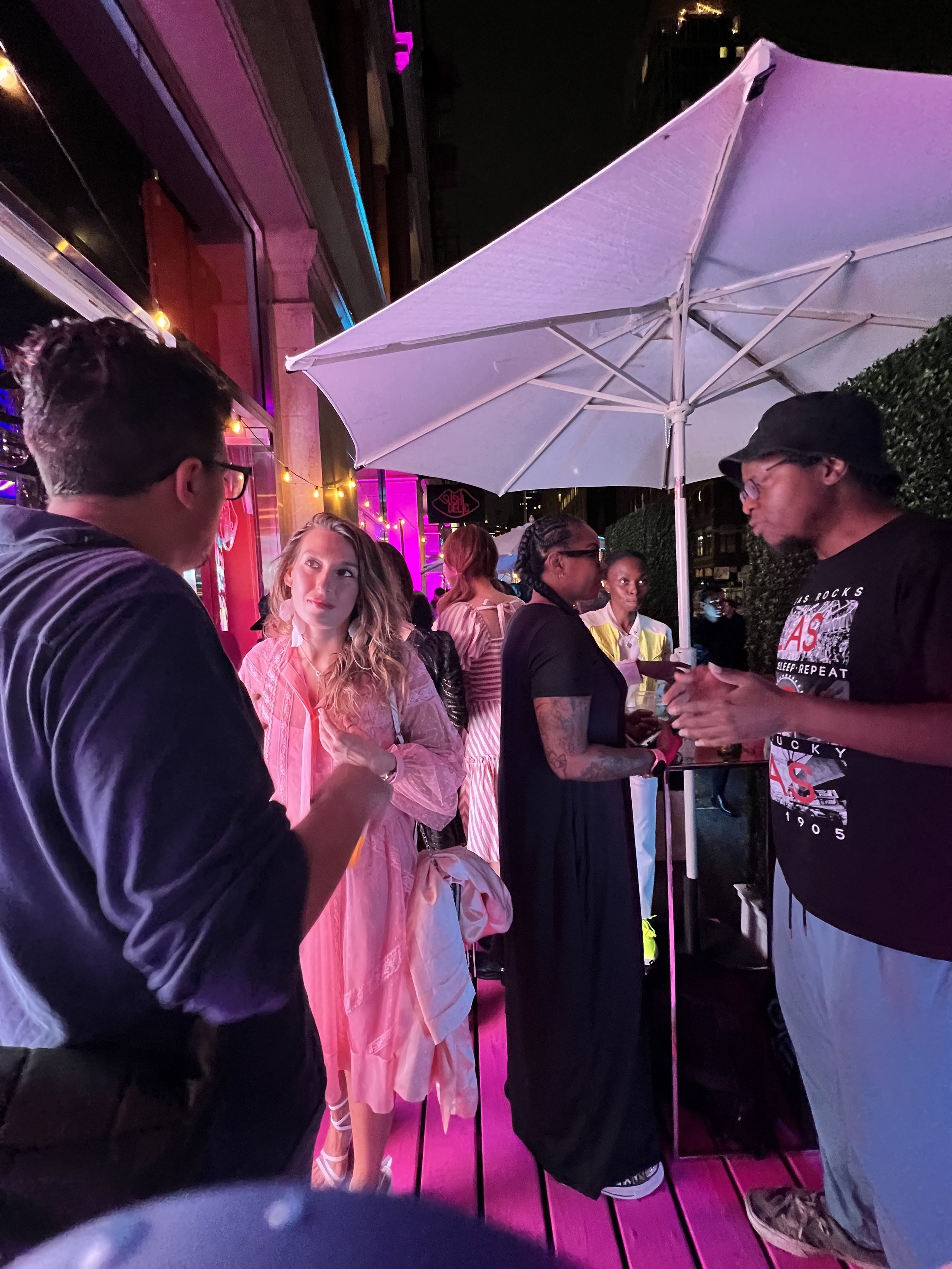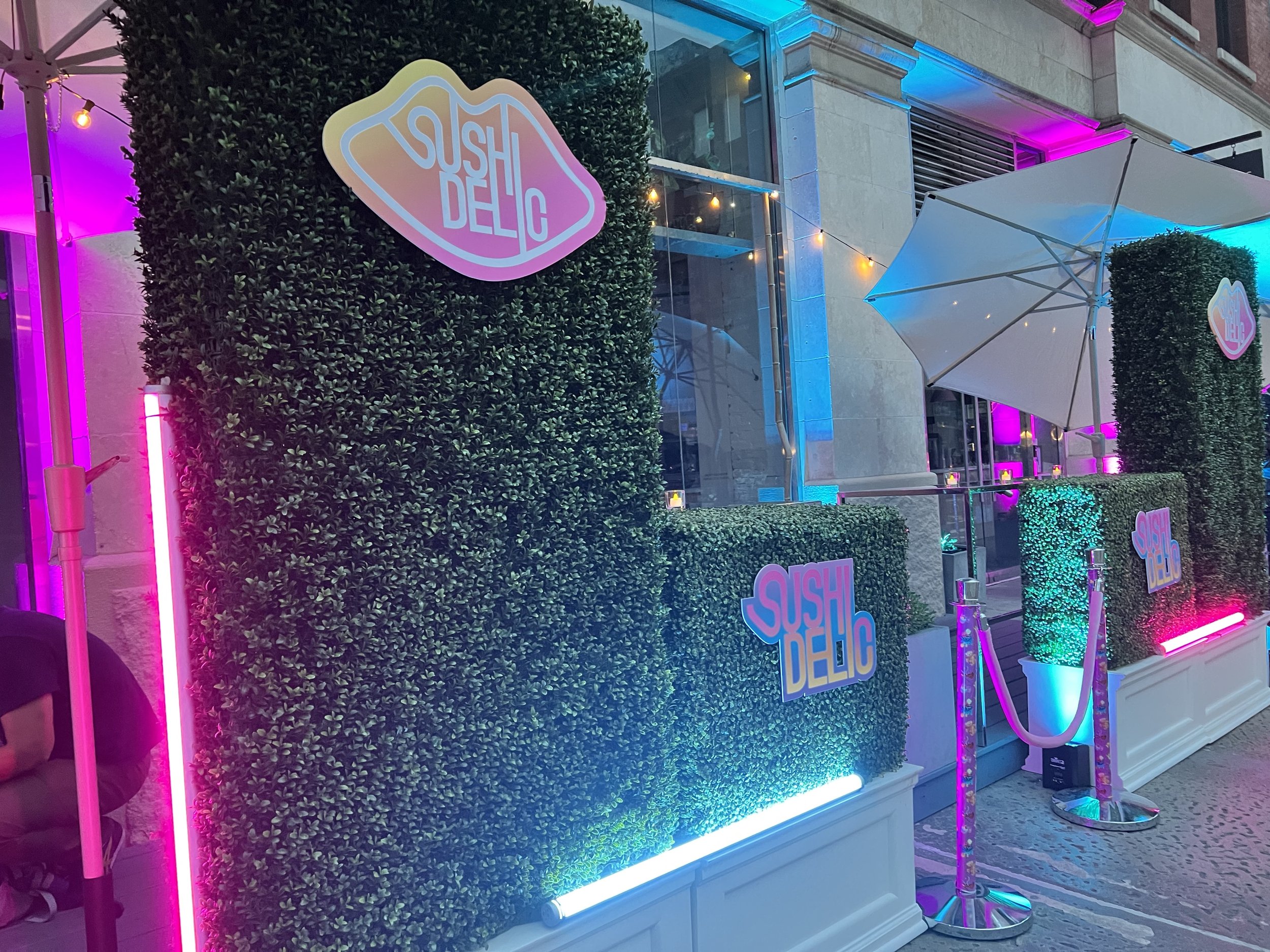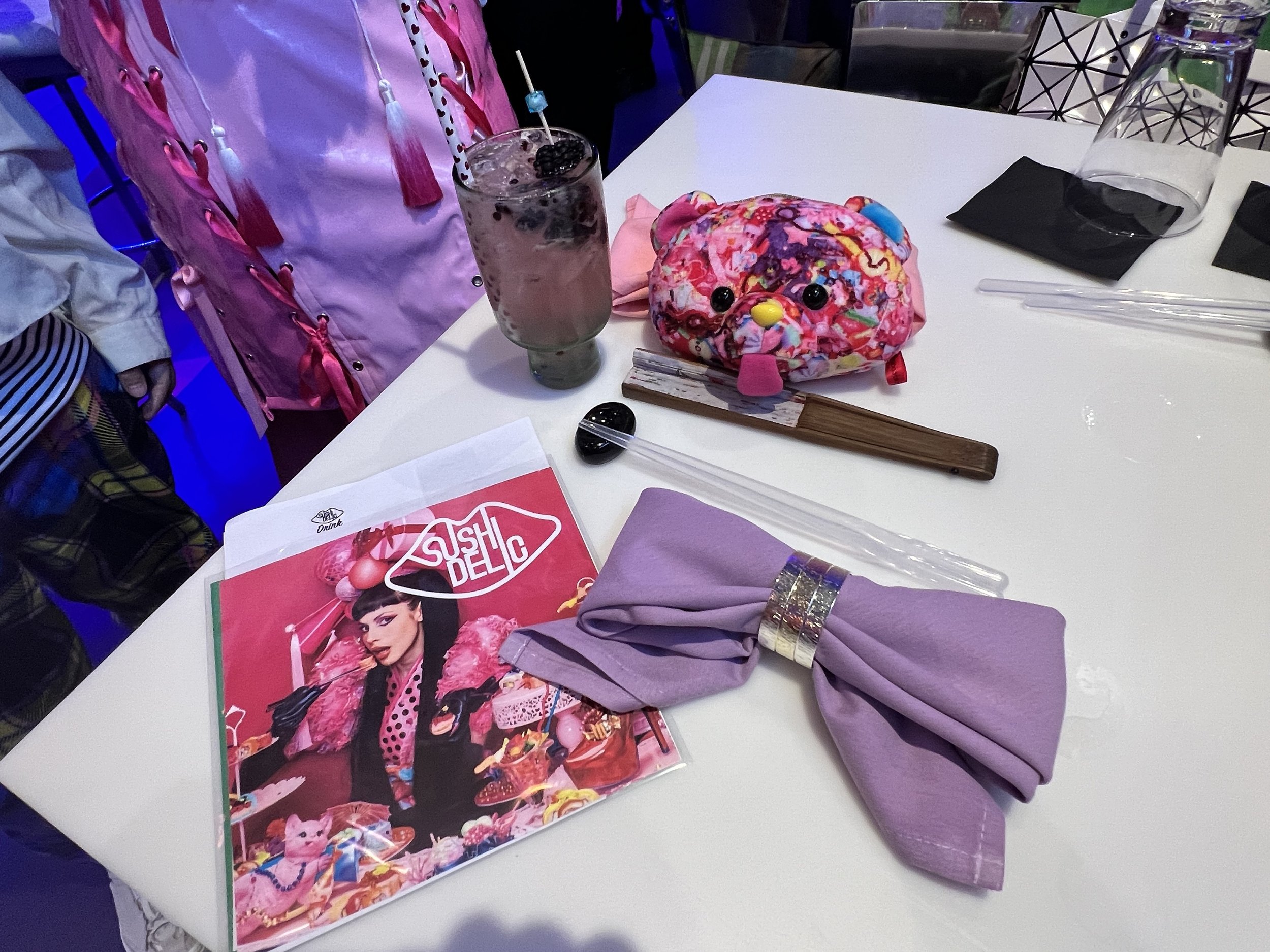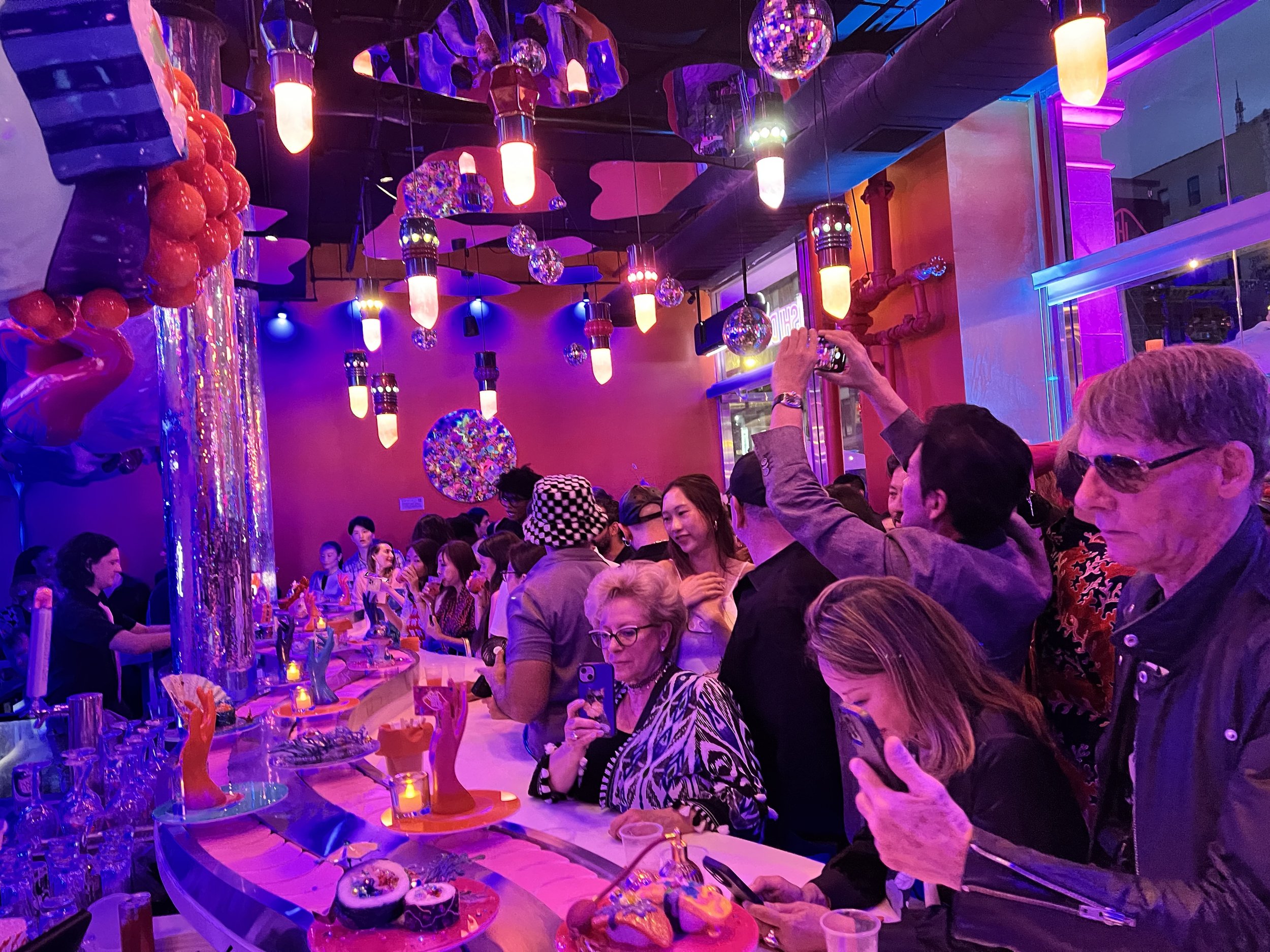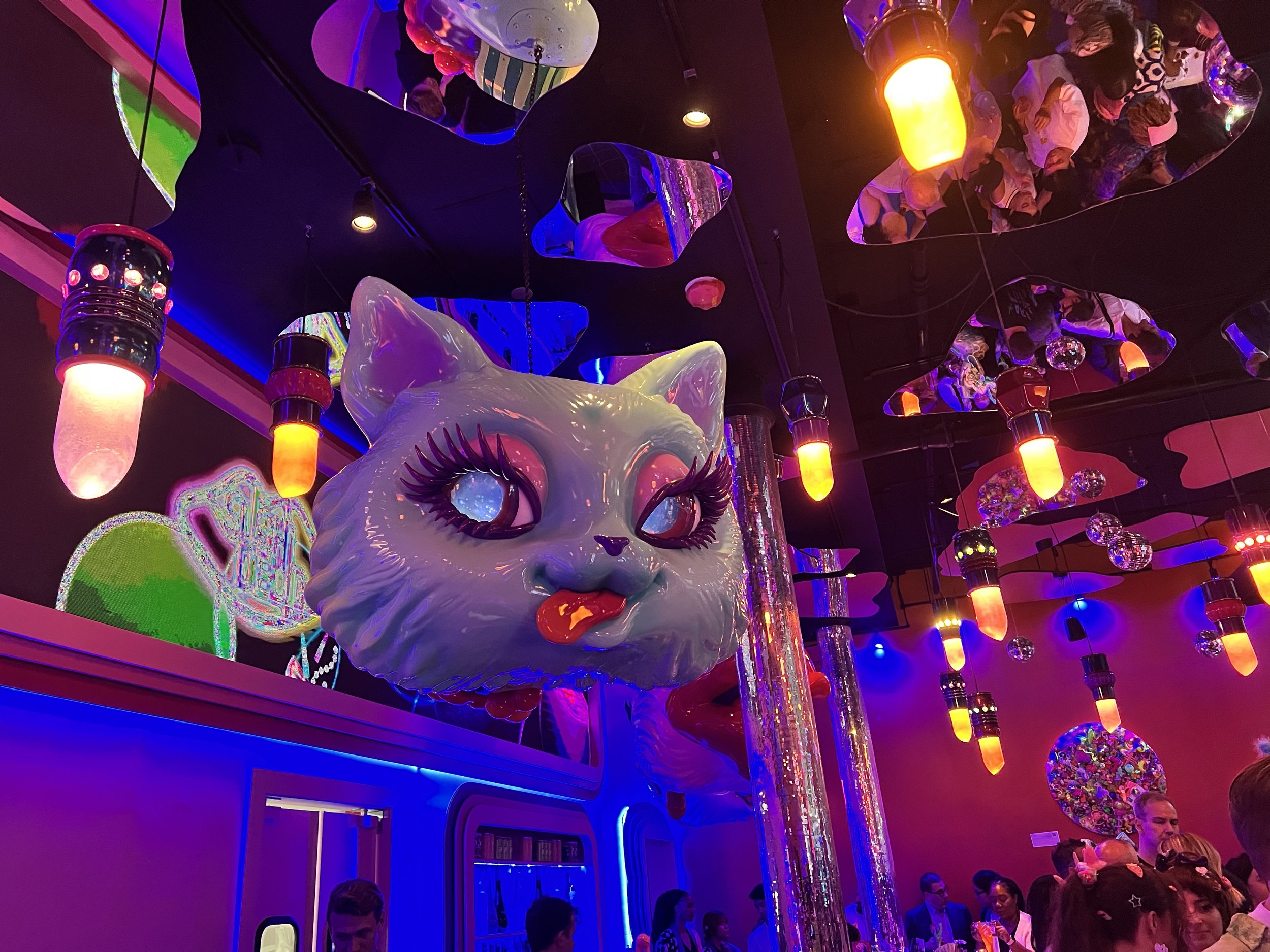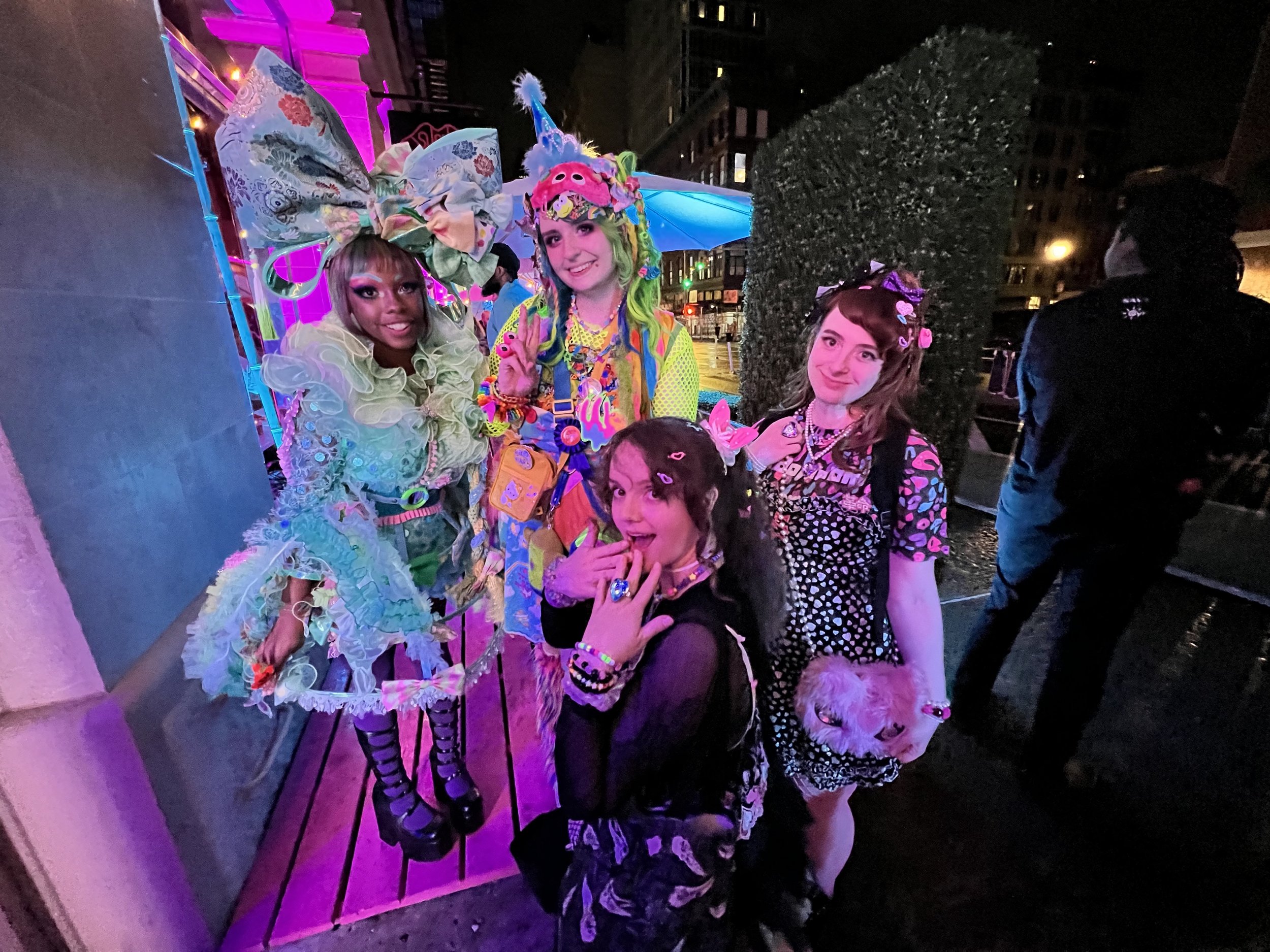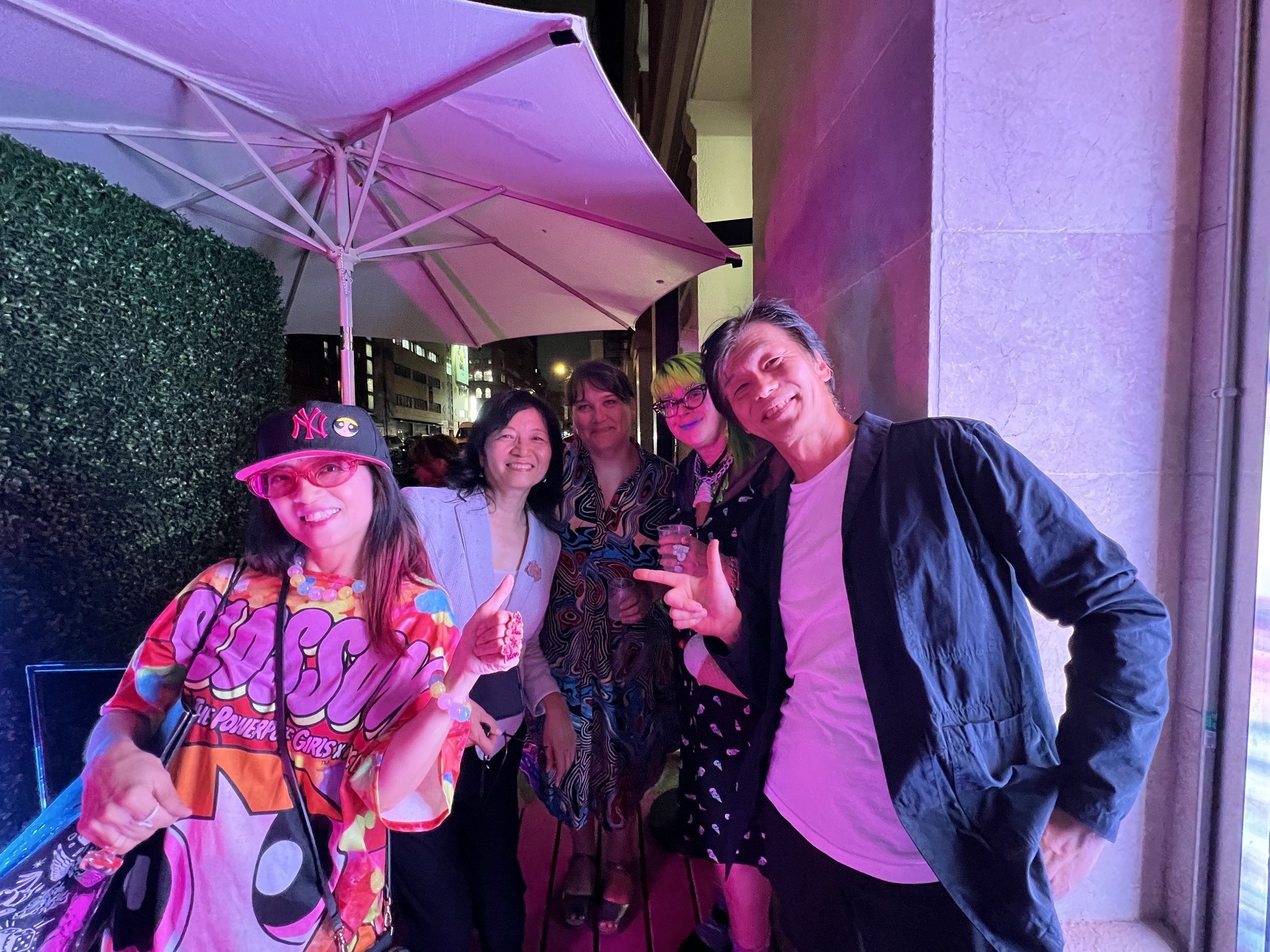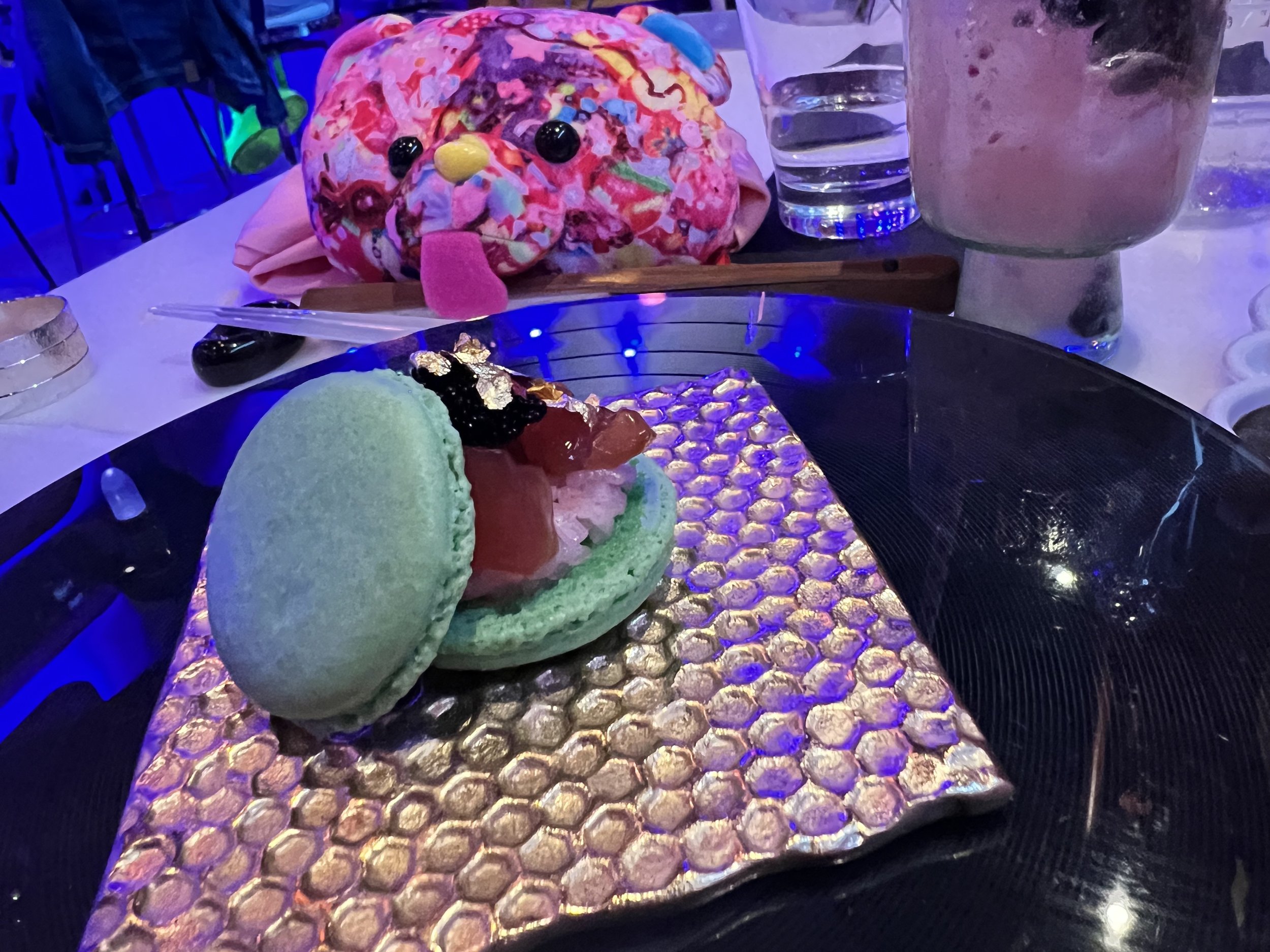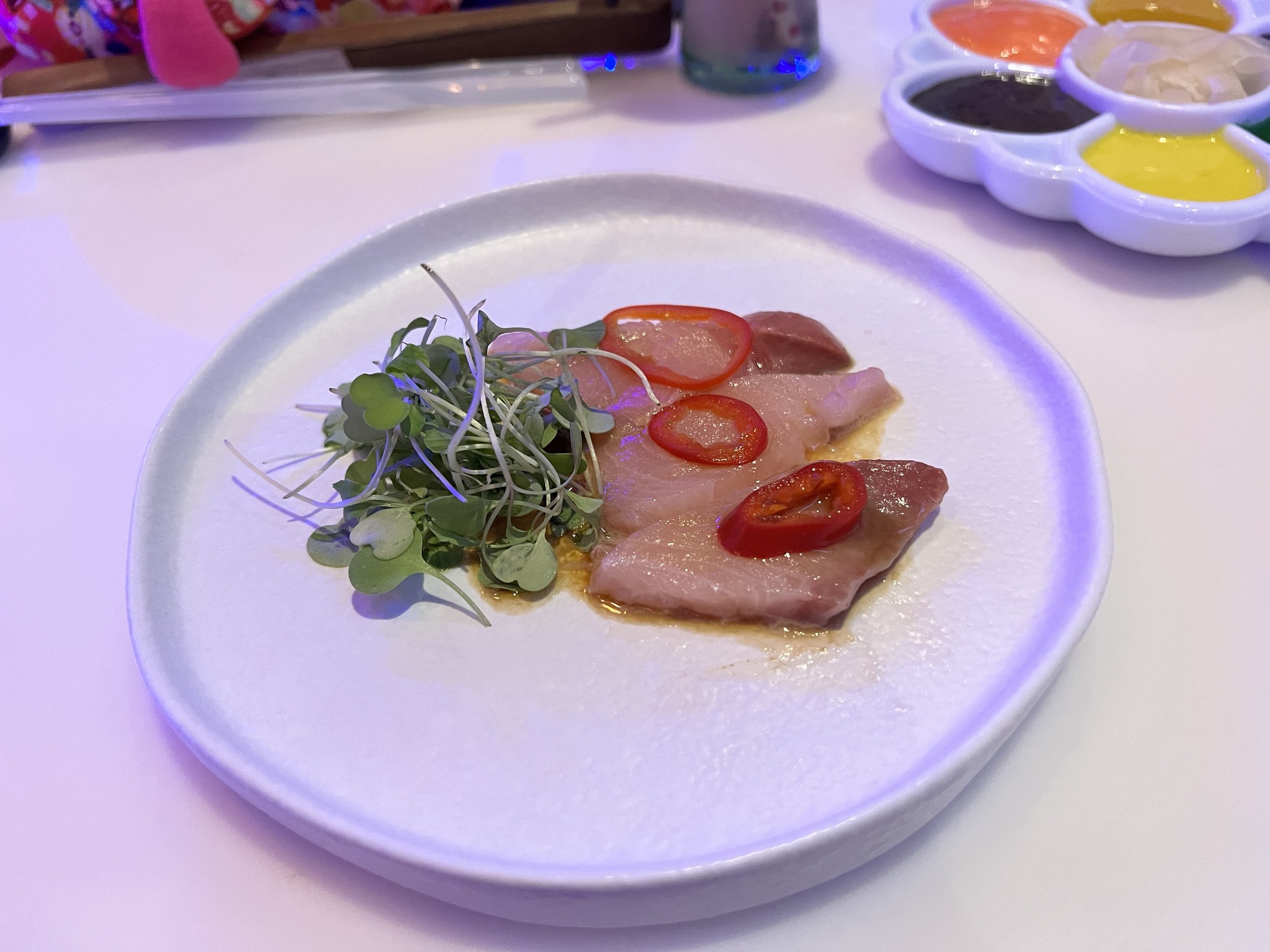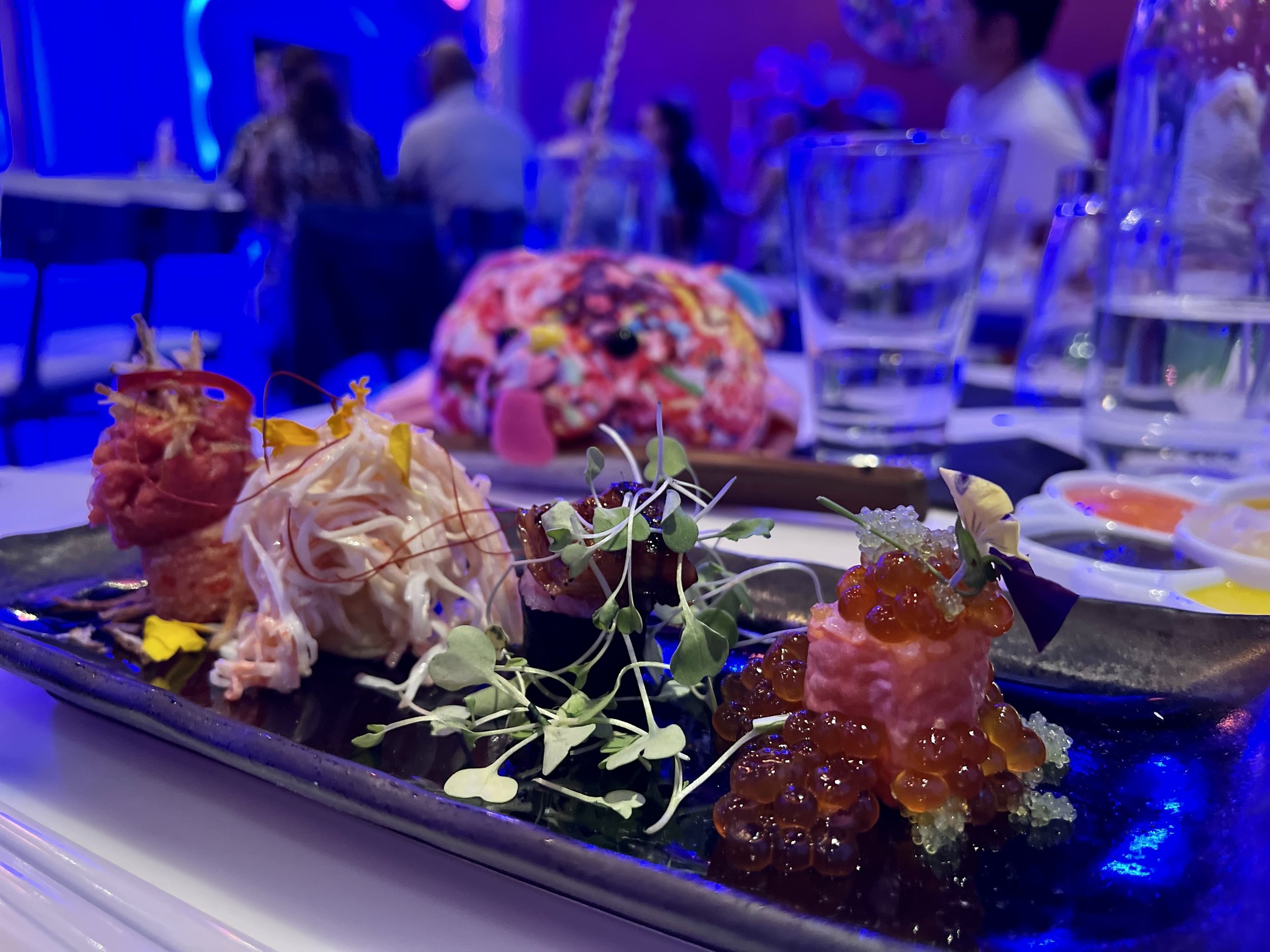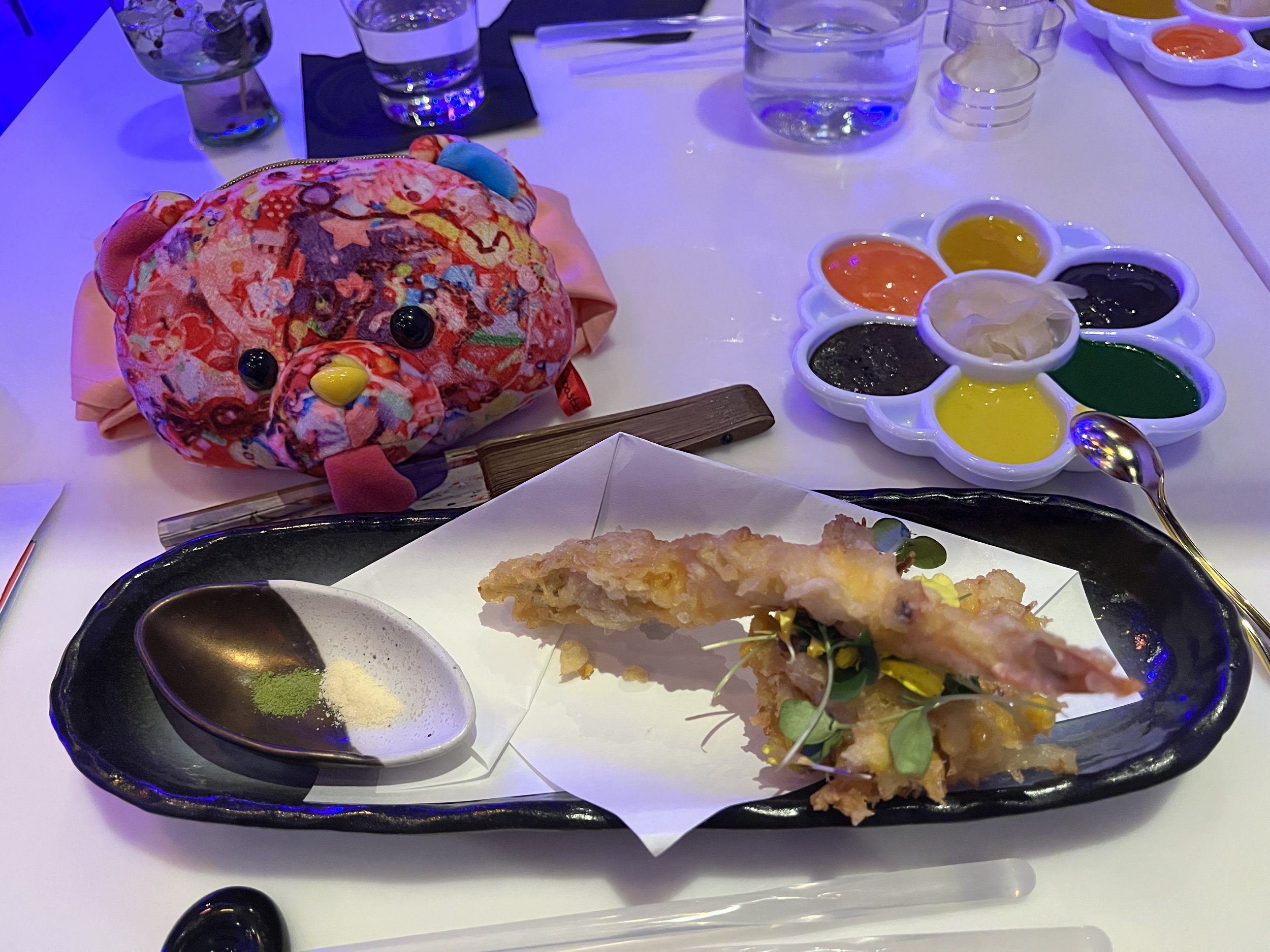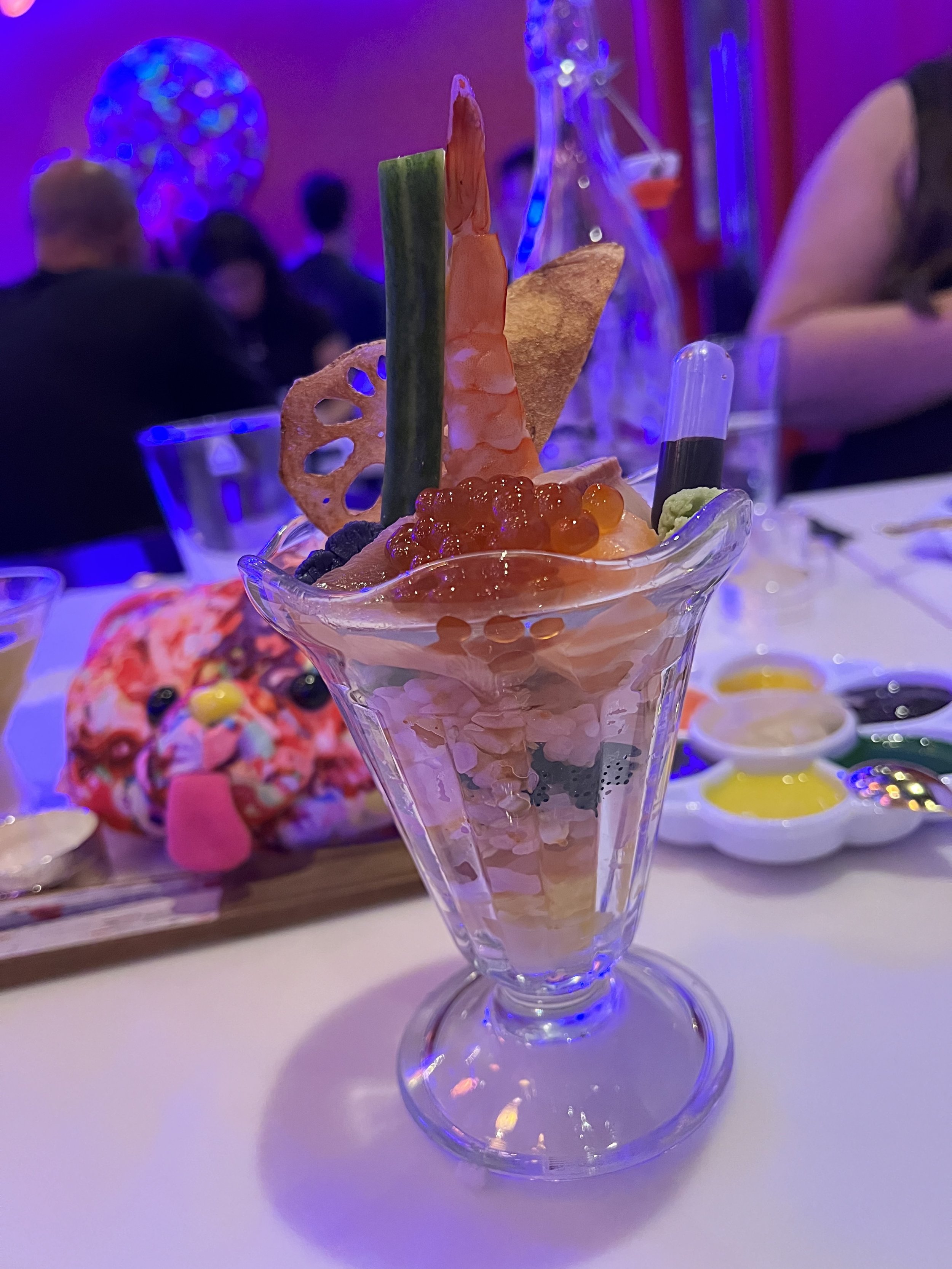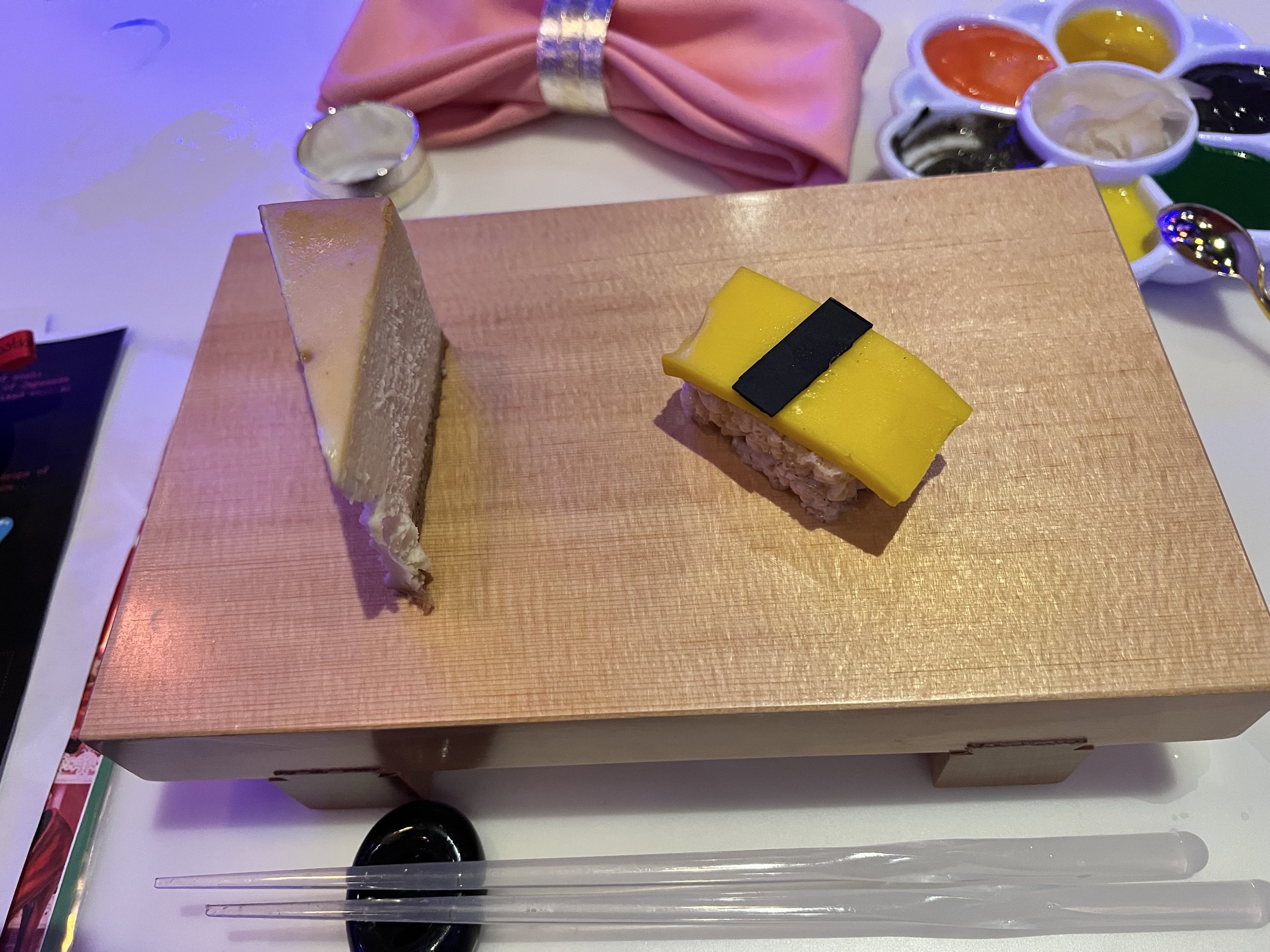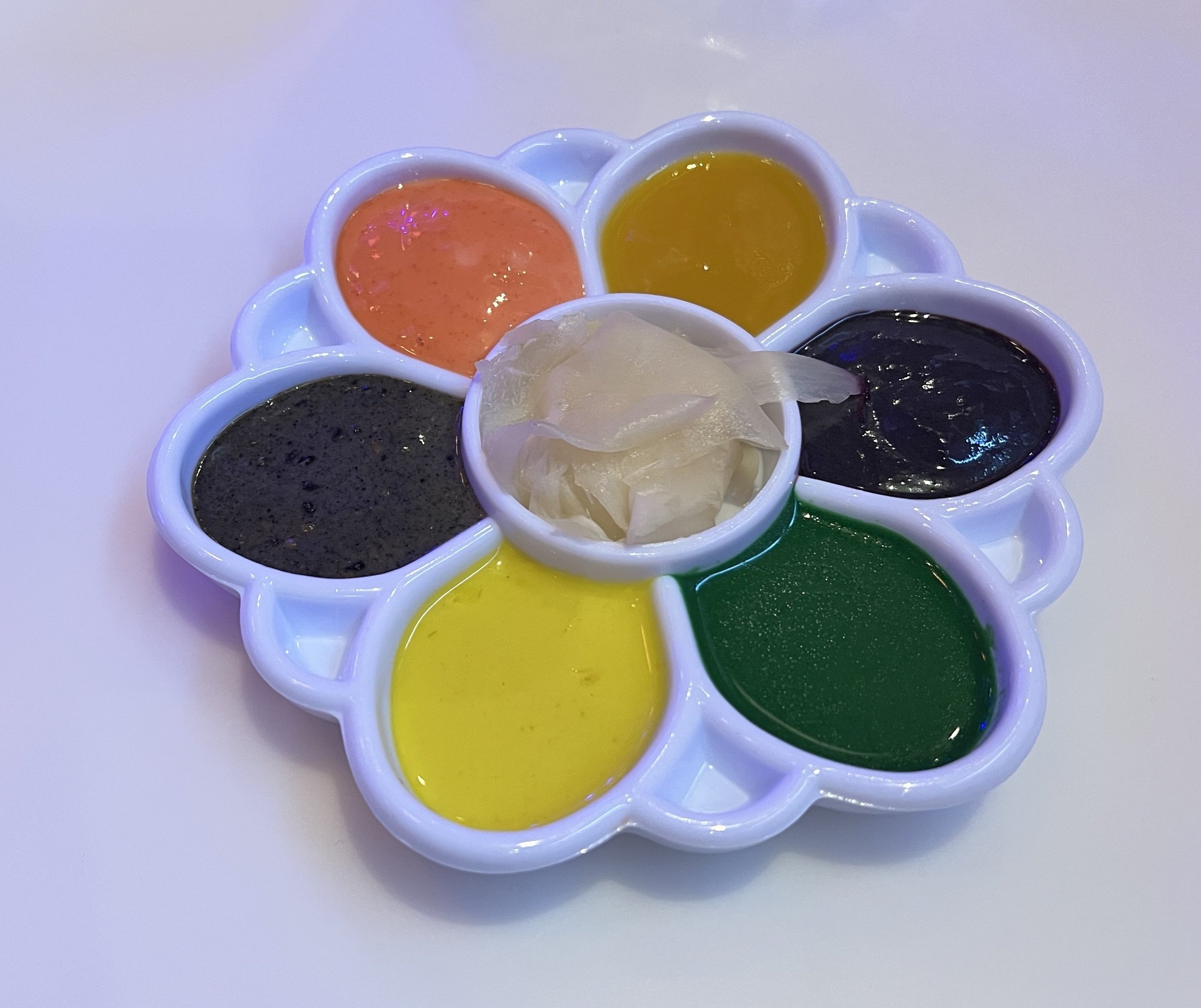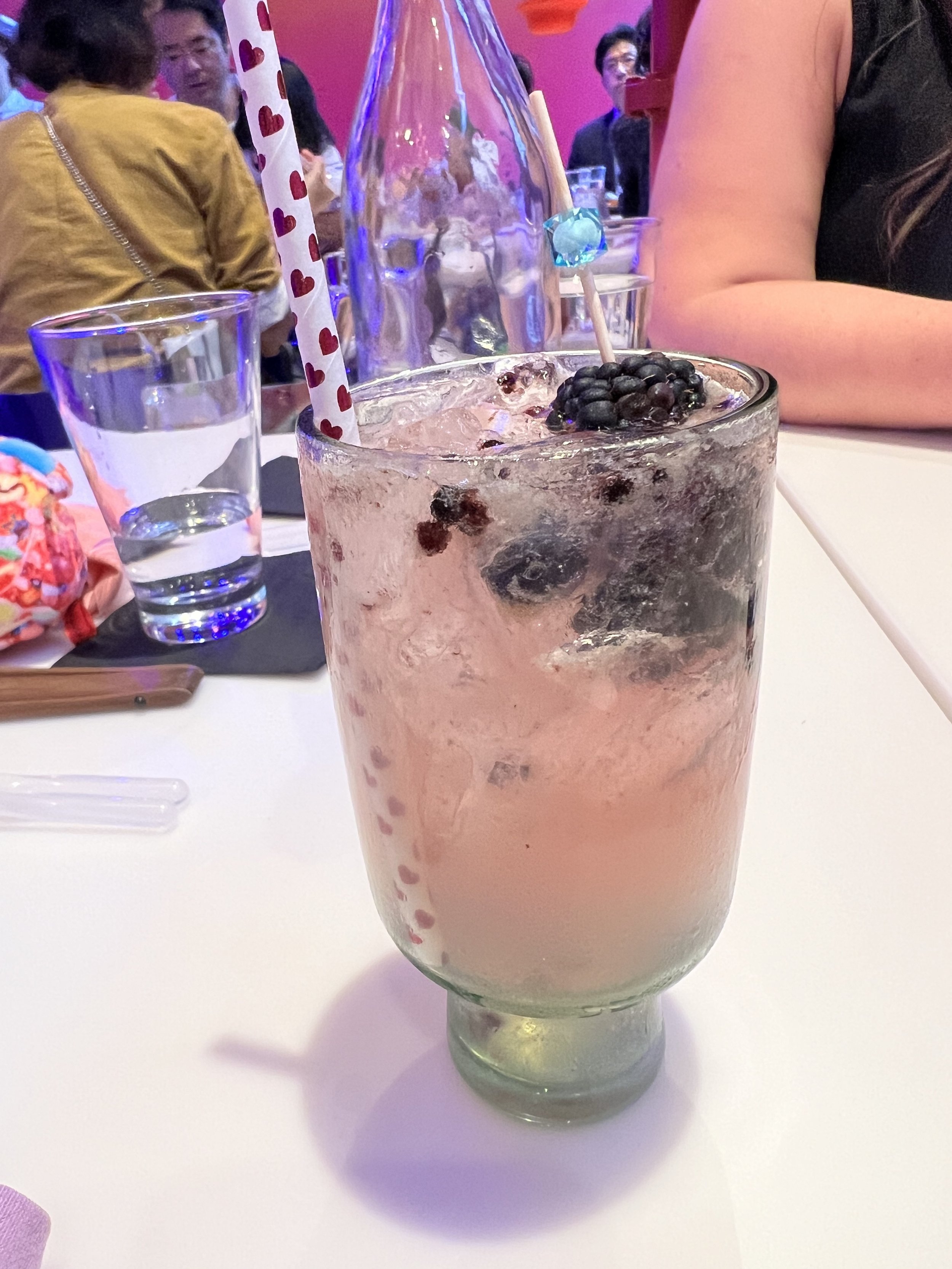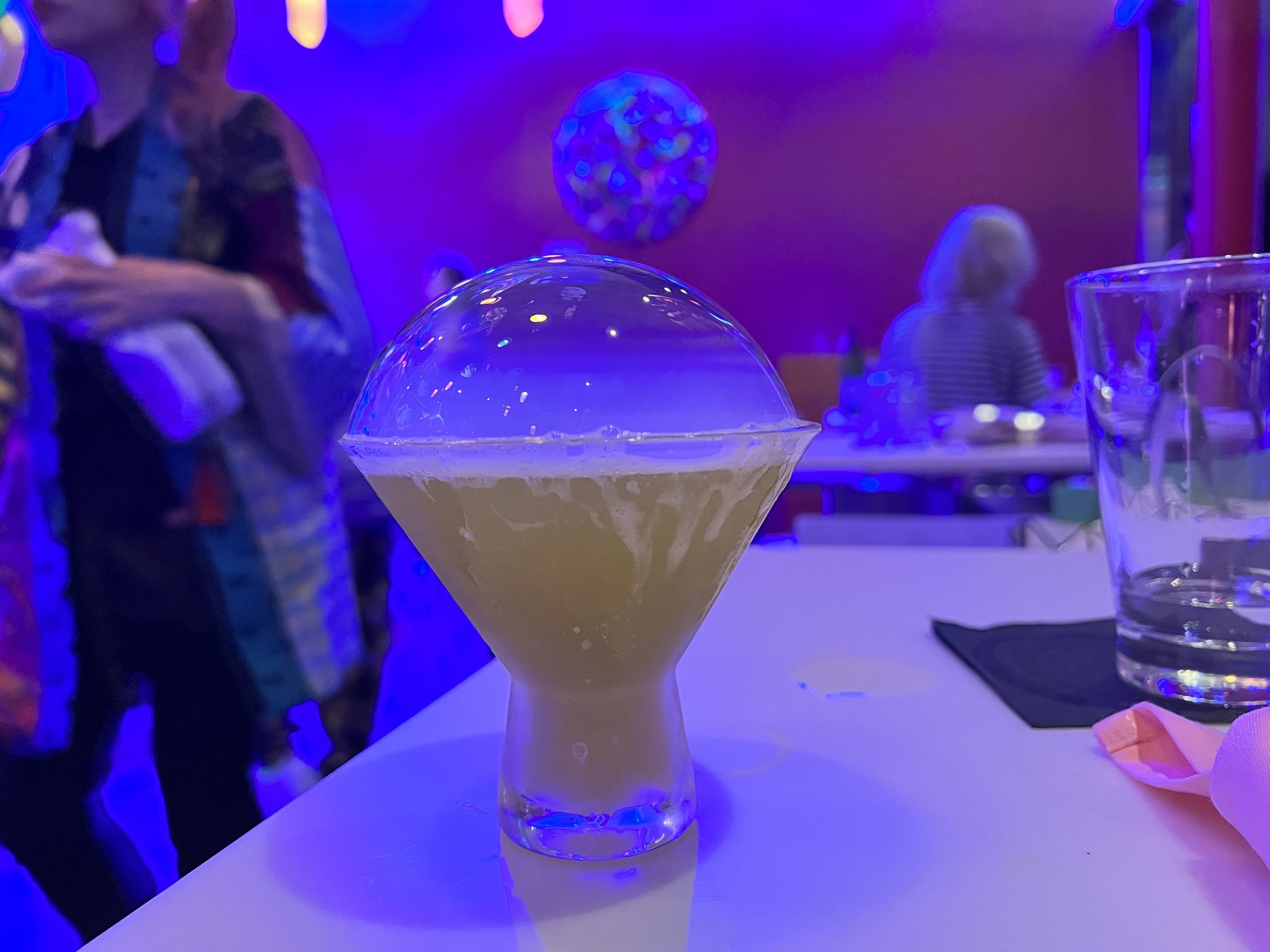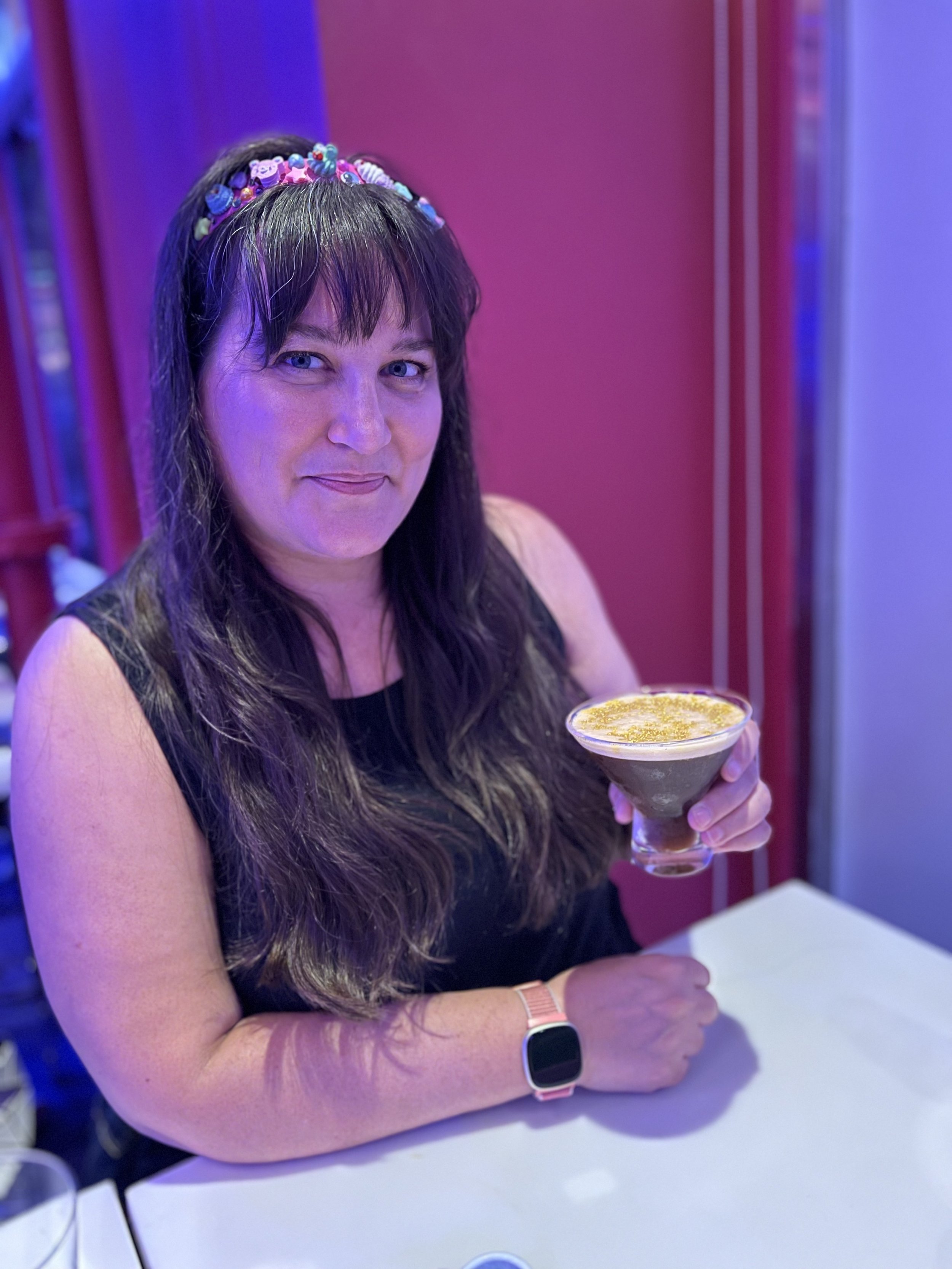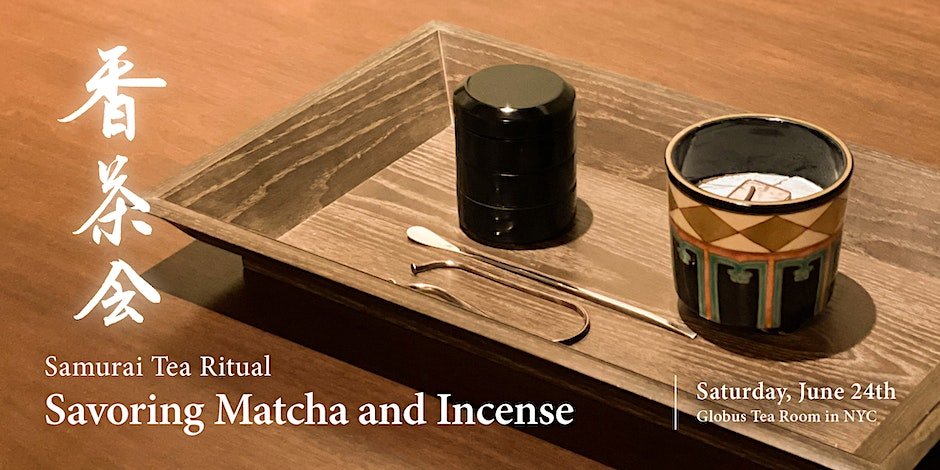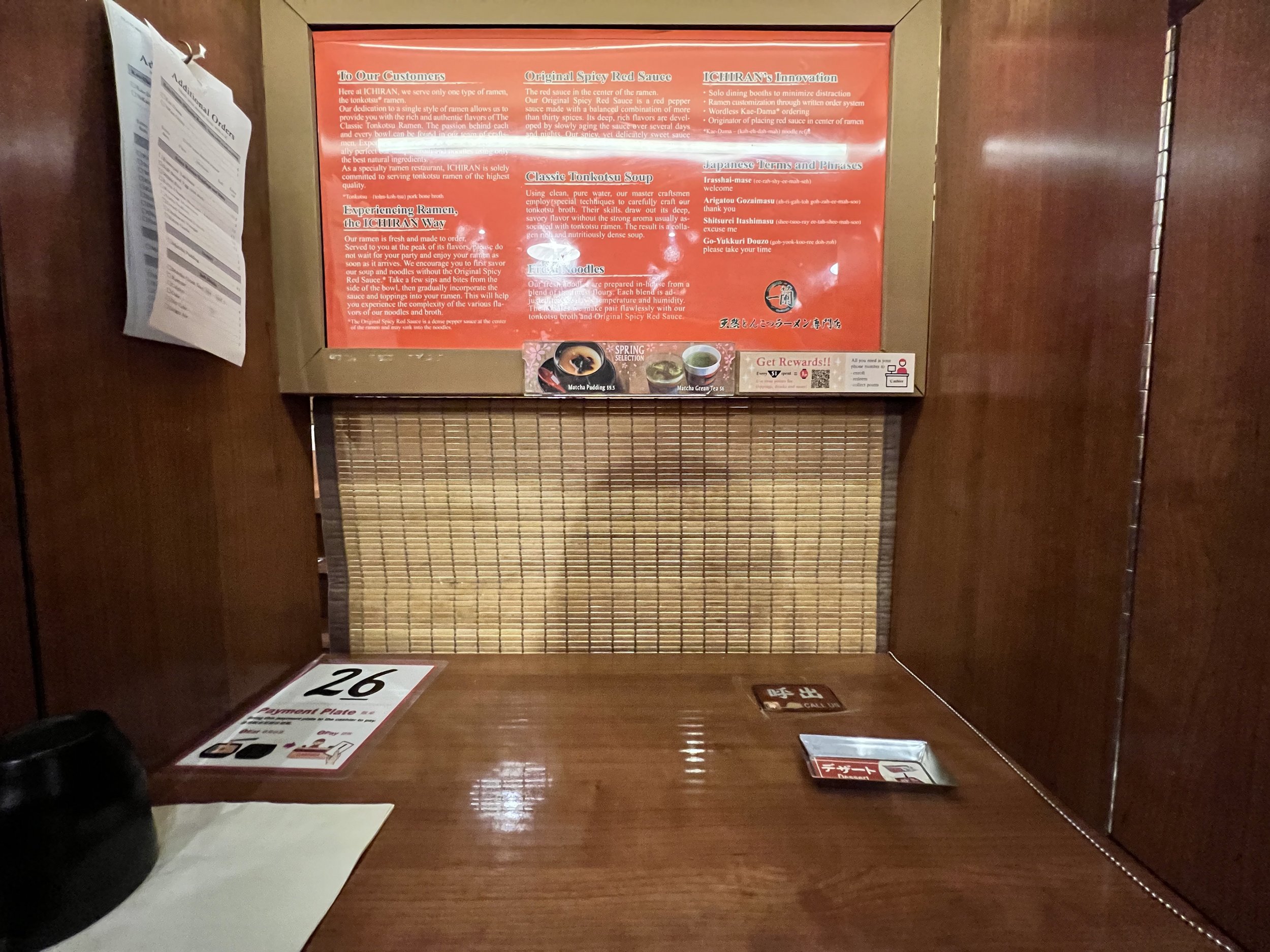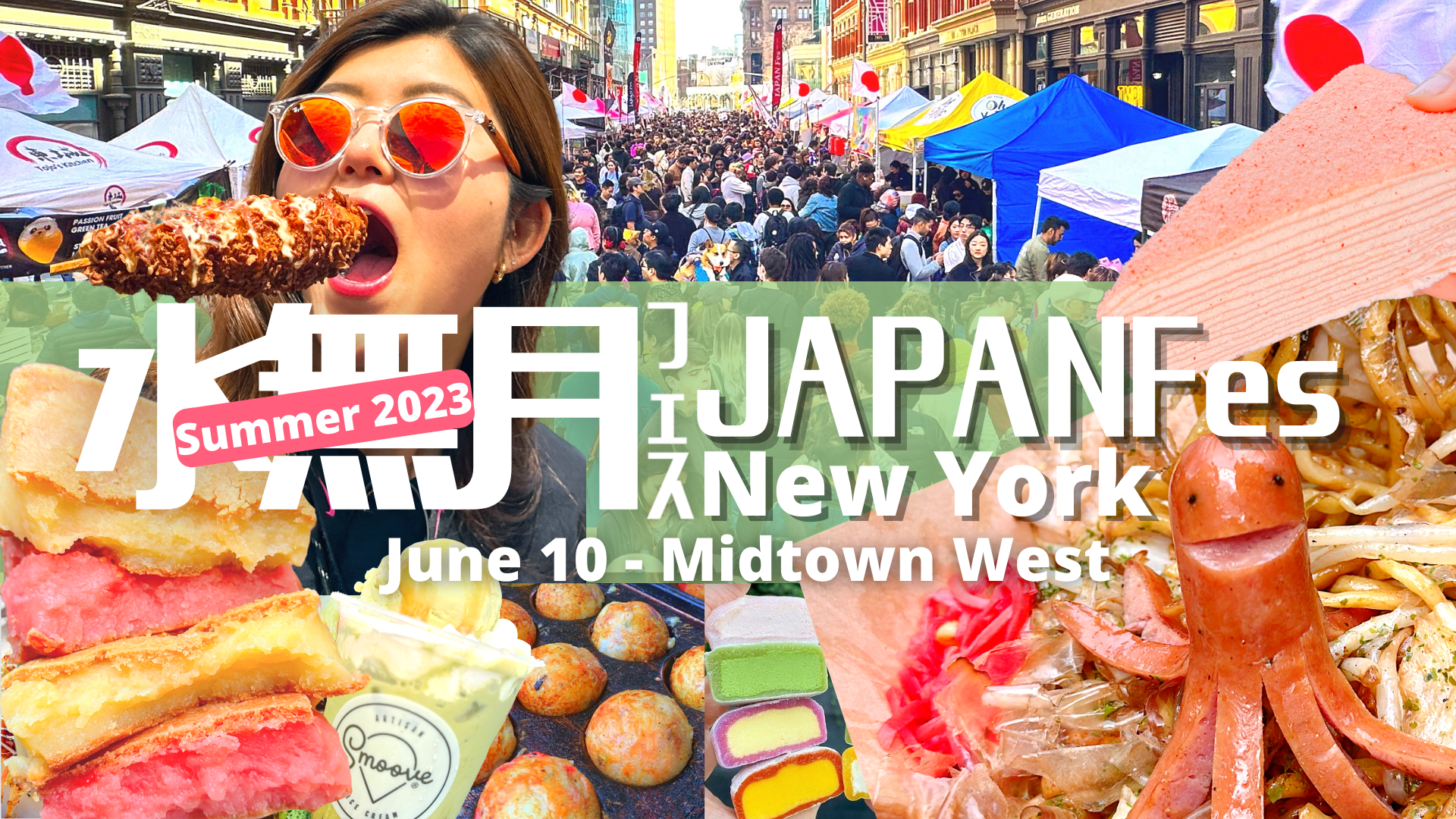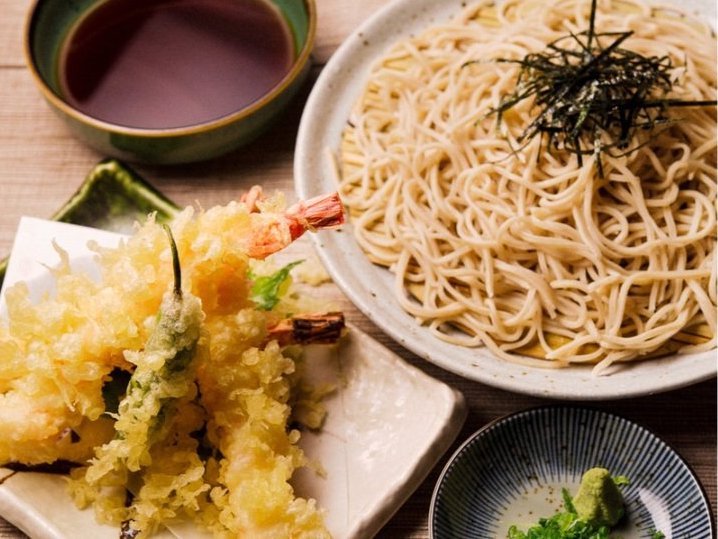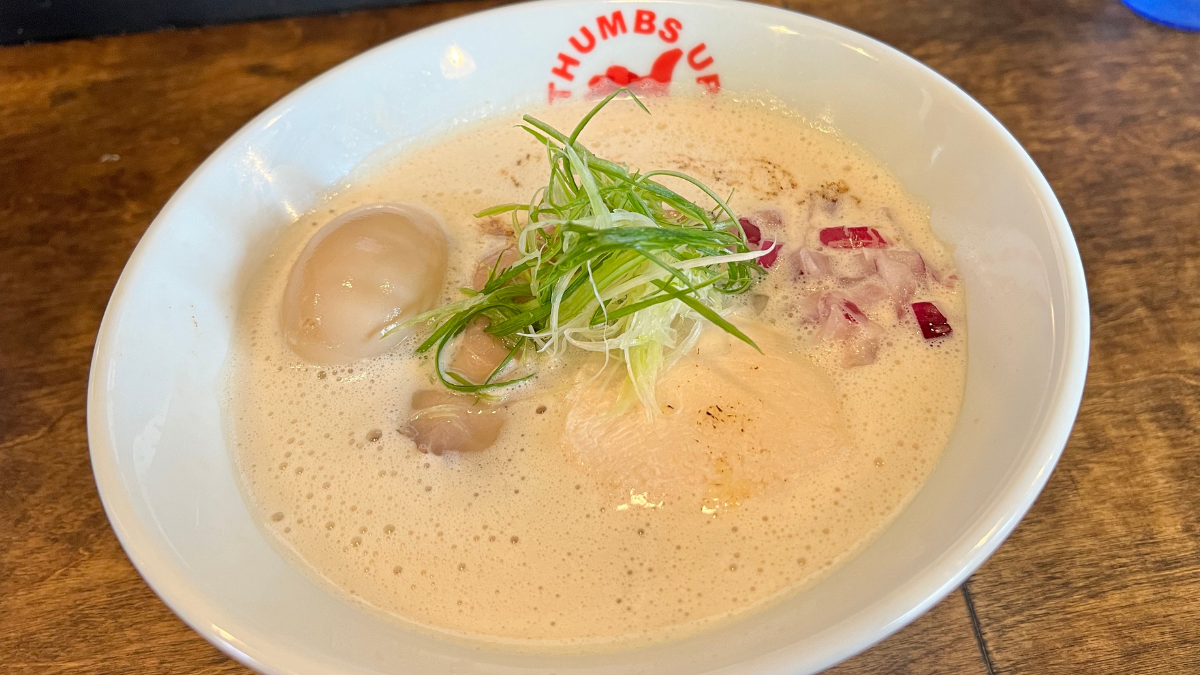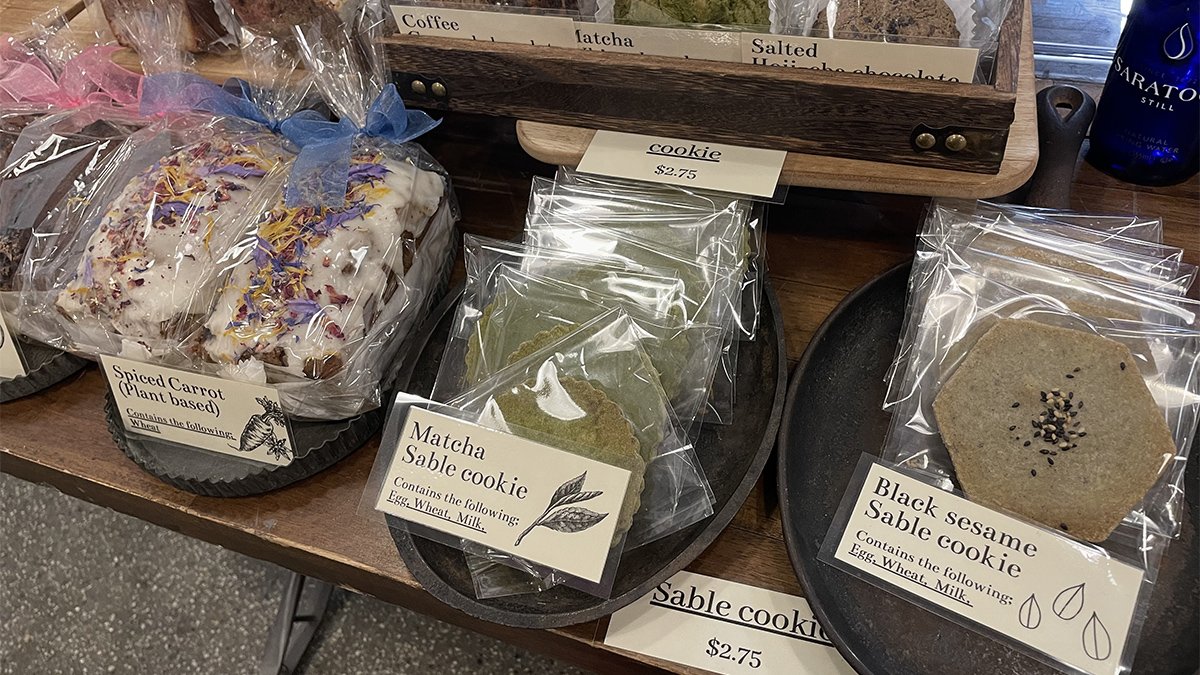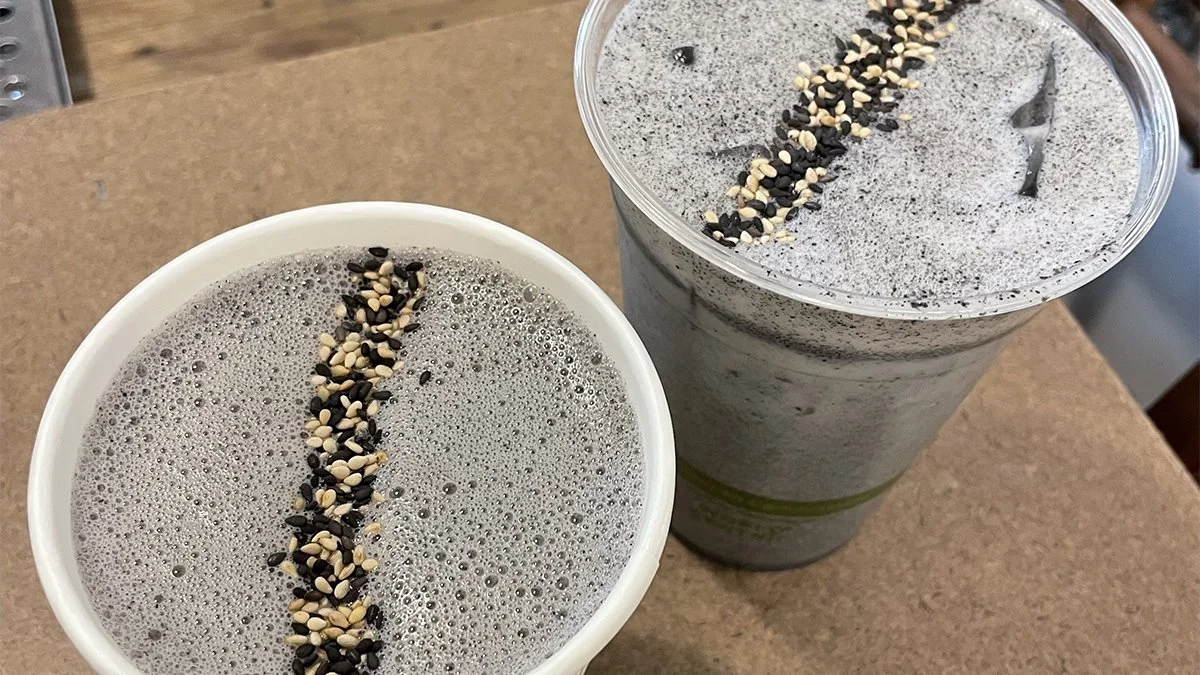JAPAN FES TO HOST RAMEN CONTEST
JAPAN Fes x New York Ramen Contest
Saturday, October 7 from 10:00 a.m. until 6:00 p.m.
East Village – 4th Avenue from 9th to 11th Streets
Sunday, October 8 from 10:00 a.m. until 6:00 p.m.
Upper West Side – Broadway between 75th to 77th Streets
Admission: Free
The street fair season is winding down, and this weekend brings the two of the final three JAPAN Fes events, which will feature a ramen contest. Six ramen chefs, including last year’s champion, have created special dishes for this contest and will battle it out for votes from the crowd to see who will be crowned the World Ramen King.
Participating Ramen Chefs
Of the chefs, five are from Japan, and one is from New York.
Menya Tyson – Hakata-style Aburi Niku Tyson Ramen
Menya Ultra – Tonkotsu Shoyu Ramen
Naruto Ramen – The lone participant from New York offers reMix Ramen, a fusion of Southern American Creole cuisine with Japan's perfect comfort food
Onisoba Fujiya – Last year’s champion is returning with their Premium Lobster Miso Ramen
Ramen Chicken Yaro – Chicken in Thick Broth and Japanese Dashi
Shibasakitei – Shio-Soba with Japanese Pepper
Ramen will be the star this weekend, but there will be plenty of vendors offering a full range of the best Japanese street food, from okonomiyaki to yakitori to karaage and more.
For full details on each vendor, please visit JAPAN Fes’s website and Facebook page.
Remaining JAPAN Fes Schedule
October 7 in East Village – Ramen Contest
October 8 in Upper West Side – Ramen Contest
October 28 in East Village
Support JapanCulture•NYC by becoming a member! For $5 a month, you’ll help maintain the high quality of our site while we continue to showcase and promote the activities of our vibrant community. Please click here to begin your membership today!
NIGHT MARKET & KARAOKE CONTEST AT JAPAN VILLAGE
Japan Village’s [Karaoke] Night Market
Friday, October 20 from 4:00 p.m. until 8:00 p.m.
Japan Village – 934 3rd Avenue (Courtyard), Brooklyn
Admission: Free
Celebrate the fall season at Japan Village's [Karaoke] Night Market for a night of fun, food, and festivities.
Head to Japan Village in Industry City, Brooklyn! There will be a mouthwatering lineup of food, including yakitori, grilled squid, and yaki unagi onigiri. 🍢🦑🍙
Mutual Trading and Takara will offer an incredible selection of drinks, featuring Suntory Premium Malts and Orion beer, Takara Chu-Hais, and two sparkling sakes: Mio and Smooth Sail. 🍻🍶
For all you shoppers, there will also be vendors selling cards, trinkets, toys, and something special for everyone, young and old. 🛍️🎁 For the gamers, test your skills with games and win awesome prizes! 🎮🎉
Karaoke Contest
The main event will be the karaoke contest, starting at 5:00 p.m.
They have space for only 12 contestants, so register now. Each contestant will have 10 minutes to shine on stage and sing a song of their choice. Participation is free! 🎵
To register, send an email to info@japanvillage.com and submit the YouTube link of the song you want to sing. 🎥✨ Please note: Find a karaoke version or a lyric music video of your chosen song. The best singer of the night will receive a $100 Sunrise Mart gift card!🏆
The music doesn’t stop after karaoke. DJ Weapon from Hiroshima will drop the beats starting from 7:00 p.m.
Japan Village's [Karaoke] Night Market is made possible by Kuraichi in conjunction with Mutual Trading and Suntory Premium Malt’s.
For more information and to reserve your spot, please visit Japan Village’s Eventbrite page.
Support JapanCulture•NYC by becoming a member! For $5 a month, you’ll help maintain the high quality of our site while we continue to showcase and promote the activities of our vibrant community. Please click here to begin your membership today!
TEA CEREMONY DEMOS AT THE MET
Tea Ceremony Demonstrations
Tuesday, September 26 at 11:30 a.m. and 1:30 p.m.
The Metropolitan Museum of Art – 1000 Fifth Avenue
Free with Museum Admission
Instructors from the Urasenke Chanoyu Center will demonstrate a traditional Japanese Tea Ceremony. There will be two sessions, one at 11:30 a.m. and one at 1:30 p.m. Each session will last one hour.
The demonstrations will take place in Gallery 209, The Astor Forecourt. For more information, please visit The Met’s website.
Set of Utensils for the Tea Ceremony, Kubo Shunman 窪俊満 (Japanese, 1757–1820)
Image: Kubo Shunman (1757–1820), Set of Utensils for the Tea Ceremony, Japan, Edo period (1615–1868), 1810s. Woodblock print (surimono); ink and color on paper. H. O. Havemeyer Collection, Bequest of Mrs. H. O. Havemeyer, 1929 (JP1974)
“Surimono” is a style of woodblock print that were produced in small quantities and particularly for private commissions. In this elegant still-life surimono by writer and artist Kubo Shunman, New Year’s tea ceremony utensils are arrayed with a branch of camellia, a flower associated with the end of winter and beginning of spring according to the lunar calendar.
Translation of the Poem on the Woodblock Print
At a tea gathering
on the day spring arrives:
Sipping auspicious tea
made with New Year’s water,
the tea ceremony begins—
as spring arrives before
the official start of the year.
— Kokin no Nakanari
(translated by John T. Carpenter, Mary Griggs Burke Curator of Japanese Art in the Department of Asian Art at The Metropolitan Museum of Art)
Support JapanCulture•NYC by becoming a member! For $5 a month, you’ll help maintain the high quality of our site while we continue to showcase and promote the activities of our vibrant community. Please click here to begin your membership today!
MEET THE BREWERS
Soul of Sake "Meet the Brewers" x Accidental Bar
Sunday, September 17 from 5:00 p.m. until 8:00 p.m.
Accidental Bar – 98 Loisaida Avenue (Avenue C between 6th and 7th Avenues)
Admission: $68.96 (includes fees)
Join Miss Sake USA Jessica Joly-Crane and Accidental Bar owner Austin Power in celebrating some of their favorite sake brewers, breweries, and prefectures.
Joly-Crane brings her Soul of Sake series to Accidental Bar with brands represented by Sake Discoveries. Guests will have the opportunity to taste more than eleven different kinds of sake from different breweries all over Japan.
Chat with and learn from your favorite sake producers! Light bites will be served. Organizers are partnering with Tippsy Sake to provide a discount code to guests who want to purchase bottles of sake. To purchase tickets, please visit Sake Discoveries’s Eventbrite page.
Featured Producers
Nanbu Bijin "Southern Beauty" – Iwate
President: Kosuke Kuji
Niwa No Uguisu "Nightingale's Garden" – Fukuoka
President: Tetsuo Yamaguchi
Saga Sake Series – Saga
Koimari "Tropical"
Representative: Satoru Maeda
Mitsutake "Crisp"
President: Kunihiro Mitsutake
Amabuki – Saga
Representative: Wataru Hosokawa
Tengumai "Dancing Goblin" – Ishikawa
Representative: Ryosuke Kawamichi
Austin Power at Accidental Bar
About Sake Discoveries
Sake Discoveries is a New York-based PR company with more than twenty years of experience in the sake industry. Featuring one of the few female Sake Samurais, Chizuko Niikawa-Helton, and Jessica Joly-Crane, Sake Discoveries represents artisanal sake breweries from all over Japan. Having created a strong team of experts in promotion and influencer outreach, the organization spreads awareness about their clients through events, branding, and education. For more information, please visit their website.
Support JapanCulture•NYC by becoming a member! For $5 a month, you’ll help maintain the high quality of our site while we continue to showcase and promote the activities of our vibrant community. Please click here to begin your membership today!
“Immersive Kawaii Experience” at Sushidelic
What pops into your mind when you think of a typical sushi restaurant? Serene and minimalist ambiance with a beautifully crafted hinoki wood bar at which a limited number of customers watch a highly trained sushi chef skillfully craft pieces of nigiri one by one.
Sushidelic, a new sushi restaurant that opened in SoHo on June 28, turns that idea on its head.
The brainchild of Japanese artist Sebastian Masuda, Sushidelic—a portmanteau of “sushi” and “psychedelic”— is the opposite of how anyone would perceive a sushi restaurant. And it’s delightful.
Multidisciplinary Talent
Masuda is an artist who exhibits worldwide. He’s the founder of 6%DOKIDOKI, a Harajuku staple of kawaii toys and Decora fashion and accessories since the mid-1990s. In 2011 he served as the art director of J-pop idol Kyary Pamyu Pamyu’s music video for her hit song “PonPonPon.” The King of Kawaii Culture has added another job title to his impressive resume: restaurateur.
Rather, Masuda is re-adding the job title. From 2015 until 2021, Masuda and DD Holdings, a Japanese company that specializes in managing themed restaurants, ran the Kawaii Monster Café in Tokyo. Although reviews about the food weren’t exactly complimentary, the Kawaii Monster Café was a tourist destination, especially for fans of Masuda’s art and Harajuku’s subculture.
If you’re familiar with Masuda, you know that vibrant colors, 1970s plastic toys, eclectic faux fur, and all things kawaii find their way out of his brain and into the world in a jumbled and yet somehow cohesive manner. In his mind, sushi looks like dessert, and dessert looks like sushi. His imaginings have come to life at Sushidelic in the forms of macaron sushi and chirashi parfaits. Masuda wants his guests to enjoy “an immersive kawaii experience,” and he has created the perfect vehicle with which to accomplish it.
When you enter Sushidelic, the first thing you’ll notice is that the decor isn’t anything you’d imagine from a sushi restaurant. The light fixtures are upside-down lipstick tubes. There are cloud-shaped mirrors on the ceiling. The giant heads of three cats hang above the bar, and they have names: Tipsy Cat, Lovely Cat, and Sexy Cat. The slowly rotate to reveal the pieces of sushi and a large pair of red lips on the back. To tie in the theme, the hostesses are called the “Delic Cats,” each wearing an outfit of Masuda’s design, matching the looks of Tipsy, Lovely, and Sexy.
The restaurant features a conveyor belt in the form of a long tongue emerging from a mouth-shaped opening in the kitchen wall. Sushidelic stands apart from average kaiten sushi spots where customers grab desired pieces of sushi off a rotating belt and have the color-coded plates tallied up at the end to calculate the bill. Instead, the tongue-belt carries Masuda’s artwork and beverages making their way from playful bartenders to customers sitting at the counter.
Unlike the kaiten sushi concept, Sushidelic’s offering is a six-course omakase dinner that Masuda calls “Pure Imagination.” A palette of six sauces accompanies the meal: black sesame, yuzu, mango and ginger, wasabi, spicy mayo, and a blueberry sauce to drizzle on dessert. It’s best to taste each piece of sushi first before adding any of the sauces, then experiment with the different flavors.
“Pure Imagination” Omakase Menu
Macaron Sushi
Macaron, tuna, sushi Rice
Hamachi
Hamachi, Ponzu, truffle oil, micro radish greens
Ape-Maki (Appetizer Rolls)
California roll with crab cake, salmon with salmon roe, eel tamago roll, and spicy tuna over crispy rice
Tempura
Shrimp, seasonal vegetable kakiage with matcha and yuzu salt
Chirashi Parfait
Mixed sashimi over pink sushi rice with marinated vegetables
EX-Sushi Desserts
Yuzu sushi over Rice Krispies dessert and sake cheesecake
Vegetarian menu is available on request.
I envisioned the creative plating, of course, but great food? Not really. Perhaps I was influenced by the negative reviews I read about Kawaii Monster Café, but I wasn’t expecting this meal to be as delicious as it was. I should’ve known better; private chef Abe Hiroki of EN Japanese Brasserie fame consulted with Masuda and his team of chefs to create dishes that are as flavorful as they are aesthetically pleasing. If I were to name one week link in the six courses, it would have to be the tempura. Although good, it had no Wow factor. My favorite is the chirashi parfait in both presentation and taste.
Beverages
Beer (including Japanese beers such as Echigo, Kizakura Kyoto, and Orion), wine, and sake (including Brooklyn Kura’s #14) are available from the bar, but the cocktails are the stars of the beverage show. I had the Lychee Berry Smash and the Matcha Tea-tini, which is a production in and of itself.
Sushidelic is indeed the immersive kawaii experience that Masuda wants us all to have. The art, style, and atmosphere are something you won’t see anywhere else. And at $85, it’s at a price point that can’t be beat in New York City.
So, the big question is this: Is Sushidelic sustainable? Will locals tire of the show and move on to the next big thing? Masuda’s fans in the Kawaii Community were out in full force at Sushidelic’s opening party, some traveling from as far away as Pennsylvania, but will they be regular customers? No one knows if the novelty of this novel concept will fade. For now, Masuda’s Kawaii Monster Café is all grown up and starting to live its best life in SoHo.
Details
Sushidelic is located at 177 Lafayette Street (between Broome and Grand Streets in SoHo)
Hours: Dinner Tuesday through Saturday from 5:00 p.m. until 11:00 p.m. (last seating 10:00 p.m.)
Make reservations through Resy but act fast because all seats are booked through July 18 (at time of publishing).
Check out their website and follow them on Instagram.
For All Things Japanese in New York City, become a member of JapanCulture-NYC.com
and follow @JapanCultureNYC on Instagram, Twitter, and Facebook!
Experience Incense with Tea Ceremony
Samurai Tea Ceremony: Savoring Matcha and Incense
Saturday, June 24
Morning Session from 10:30 a.m. until noon
Afternoon Session from 2:00 p.m. until 3:30 p.m.
Globus Washitsu – 889 Broadway at E. 19th Street, PHC
Admission: $108.55
The world of tea ceremony is deep and full of various pleasures. In addition to drinking matcha together, people also enjoy flowers and incense together.
June, known as the rainy season, is Japan's wettest month before summer begins in earnest. While the high humidity makes it more comfortable to spend time indoors during this season, it has long been considered the best time to burn incense.
Although it is not practiced much anymore, there is a ritual in the world of the tea ceremony called kōshomō. In this ceremony, incense burned by the first guest is passed around and enjoyed by all participants. After the incense has calmed the mind, a cup of matcha tea becomes even more special. The Samurai Tea Ceremony will offer two types of incense.
In addition, Nagoshi Tofu will be served. It is a traditional Japanese custom to eat Nagoshi Tofu in June, when half of the year is over, to purge the impurities of the previous half year and to pray for good health for the remaining half year.
To register, please visit tea master Yoshitsugu Nagano’s Eventbrite page and select the session you would like to attend.
Yoshitsugu Nagano (far right) performs a tea ceremony at Globus Washitsu
About the Tea Master
Yoshitsugu Nagano is the youngest person to be certified in the highest rank of the Ueda Soukata school of samurai tea ceremony, which has been practiced in Hiroshima for four hundred years. He serves as a professor at the school.
In 2019, Nagano relocated to New York City, where he energetically promotes the spirituality and aesthetics of the Japanese tea ritual, rooted in Zen, through tea rituals and classes. He has also been working on and establishing new styles of modern tea ceremony that incorporate new expressions to create new ways of engaging with the traditional ritual.
Tea ceremony implements by Yoshitsugu Nagano
About the Japanese Tea Ritual
The ritual of Japanese tea has an 800-year history. Samurai warriors developed the tea ceremony as their essential practice to relax and preserve their mental health after battles. In addition to performing a tea ceremony, Nagano will also discuss Japanese history, culture, and most important, the relationship between samurai warriors and tea ceremony.
Globus Washitsu, the setting for the event, is a tatami-mat oasis with traditional Japanese architecture. Says Nagano, “You won’t find better place than this place to experience Japanese culture.”
Dress Code
Western-style clothes are acceptable, but please do not wear sleeveless shirts or short miniskirts. Bring a clean pair of white socks. Organizers will ask you to remove jewelry and watches.
For All Things Japanese in New York City, become a member of JapanCulture-NYC.com
and follow @JapanCultureNYC on Instagram, Twitter, and Facebook!
Sample 576 Sakes at The Joy of Sake
The Joy of Sake
Friday, June 16 from 6:30 p.m. until 9:30 p.m.
Metropolitan Pavilion – 125 W. 18th Street (between 6th and 7th Avenues)
Admission: $130
The Joy of Sake, the world’s largest sake tasting outside Japan, returns to New York! There will be a record 576 competition-level sakes available to taste alongside sake-inspired appetizers from sixteen top restaurants.
Now in its 22nd year (18th in NYC), The Joy of Sake celebrates the ancient art of sake brewing with a walk-around tasting where attendees can taste the full spectrum of sake styles in the premium daiginjo, ginjo, and junmai categories from every sake-brewing region in Japan. More than 300 sakes are not otherwise available in the U.S.
©The Joy of Sake
Sakes are grouped by category so attendees can explore each in depth, including recipients of silver and gold awards from the U.S. National Sake Appraisal, a rigorous blind tasting conducted by ten judges from the U.S. and Japan. This is an opportunity to sample bottles of the actual competition entries in excellent condition.
For more information and to purchase tickets, please visit The Joy of Sake’s website.
©The Joy of Sake
Participating Restaurants
15 East @ Tocqueville
75 Degrees Café & Dessert
Amami Bar & Restaurant
BondSt
Gugu Room
Hutong
Insa
J-Spec Wagyu Dining
Juban
Katsuya
Momoya
Rule of Thirds
Sakagura
Towa
Yopparai
Zuma
Popularity of Sake
Sake continues to soar in popularity in the U.S. with imports from Japan more than doubling from 2012 to 2022, while U.S. sake breweries continue to open and expand production. “Sake's popularity is here to stay,” says The Joy of Sake founder Chris Pearce. “It's now a celebration sake lovers in New York look forward to every year.”
About The Joy of Sake
The Joy of Sake is a non-profit organization dedicated to fostering appreciation for the ancient craft of sake making. Now the largest sake tasting outside Japan, the annual event has grown from 124 sakes in 2001 to 576 in 2023. More than half are ultra-premium daiginjo sakes, made from the innermost core of the rice grain. Every year, The Joy of Sake stages events in major cities, presenting hundreds of sakes, many not otherwise available outside Japan, along with sake-themed appetizers from top local restaurants in a lively festival setting.
Solo Dining Bliss: Discovering ICHIRAN Ramen's Tranquil Hideaway in Times Square
Nestled amidst the neon and noise of Times Square, ICHIRAN Ramen beckons with a serenity that stands apart from the bustling streets of its surroundings, enveloping diners in an atmosphere that feels worlds away.
Considered the best tonkotsu ramen in the world, ICHIRAN began in 1960 as a family-owned ramen stall in Fukuoka in Western Japan. Since then, President and CEO Manabu Yoshitomi has grown the business to 83 locations throughout Asia and three right here in New York City. Along with an original style and flavor of ramen, Yoshitomi created a unique dining experience. Diners sit in individual, partitioned cubicles that separate them from other guests so that customers focus only on the ramen that’s placed before them.
Recently, ICHIRAN invited me to a tasting at their Times Square location during regular business hours, where I embarked on a solo dining experience unlike any other. Knowing that ICHIRAN’s specialty is classic tonkotsu ramen—my personal favorite—I was intrigued by how they would combine their culinary delights with their unique concept of individual cubicles to provide a peaceful and delicious lunchtime retreat.
Electronic booth seating chart at ICHIRAN Times Square
Personalized Culinary Adventure
Walking through the doors of ICHIRAN, I instantly saw a blend of traditional Japanese atmosphere and modern technology: On the wall between noren adorning the doorways leading to the seating area sits a seating chart that indicates vacant booths with bright green lights. The solo cubicles, separated by wooden partitions, create an intimate space where I could enjoy my meal undisturbed. I'm not an introvert, but the prospect of indulging in my ramen without distractions was truly appealing. But the booths don’t mean you must dine alone; the partitions can be folded back to allow you to talk to your companions.
Individual dining booths at ICHIRAN Times Square
My personal booth
Ordering at ICHIRAN
ICHIRAN’s order sheet allowed me to tailor my ramen to my exact preferences, from the richness of the broth to the firmness of the noodles and the intensity of the spices.
The server, whose face was unseen due to tatami-like curtain, instructed me to place the order sheet facing the kitchen when ready to order. There is also a call button in the booth to press, just like restaurants in Japan.
I opted for light dashi seasoning and a light oil base, ensuring the broth wouldn’t be overpowering and steering away from the full richness commonly associated with traditional tonkotsu ramen. The Original Spicy Red Sauce is ICHIRAN’s secret recipe and claim to fame, but I am not a fan of spicy food, so I skipped it altogether.
I wanted my bowl of ramen to come with scallion and chashu sliced pork, but this presented a momentary dilemma. The "Recommended Toppings Set" includes scallion and chashu, along with soft-boiled egg, dried seaweed, and kikurage mushroom. I wondered, Should I select “without” scallion and chashu on the main portion of the menu if I ask for the Recommended Toppings Set? But if I select “without,” will my server think I don’t want scallion and chashu and leave both off my order? In the end I kept my original “with” choices as well as the toppings.
The first plate that arrived contained all the items in the recommended toppings set. When the server placed my steaming bowl of ramen in front of me, chashu and scallion already garnished the broth. My decision to choose the toppings set alongside the "with" options had essentially doubled my order. I embraced the unexpected abundance and had no trouble consuming everything.
Recommended Toppings Set with boiled egg (still in its shell)
ICHIRAN’s classic tonkotsu ramen
The soft-boiled egg arrived in a separate bowl, shell intact, which was unexpected. As I peeled away the shell, I discovered a perfectly cooked egg, reminiscent of what one would expect at a renowned ramen restaurant, there was a lack of the distinct, vibrant orange hue often associated with eggs from Japan.
While the customizable menu offers beverages such as soda, Ramune, and Calpico, water is self-service, with water dispensers located throughout the dining area.
ICHIRAN’s matcha pudding, with its creamy and smooth texture and rich matcha flavor, was the perfect finale to a satisfying meal.
ICHIRAN’s matcha pudding
Authenticity
True to its reputation, ICHIRAN’s tonkotsu ramen did not disappoint. The rich, creamy pork bone broth, simmered to perfection for hours, exuded a delightful umami. The thin, chewy noodles complemented the broth, providing a satisfying texture with each slurp. I have great appreciation for the craftsmanship that goes into the Hakata-style broth and thin noodles, which are prepared every day in ICHIRAN’s Brooklyn factory and delivered to each location. If I were to change anything about my order, I would have selected a mild version of the red sauce, just to see what the extra flavor was like.
Embracing Solitude
ICHIRAN Ramen in Times Square NYC seamlessly combines flavors, an authentic Japanese experience, and a welcoming haven for solo diners. I enjoyed the tranquil atmosphere of the individual cubicles while relishing the classic tonkotsu ramen. Whether you're an introvert seeking solitude or an adventurous food enthusiast, ICHIRAN Ramen promises a unique dining experience that will transport you to a yatai in Fukuoka.
ICHIRAN Times Square
New York Locations
Times Square – 152 West 49th Street
Hours: Monday - Thursday 12:00 p.m. – 9:00 p.m. Friday - Sunday Noon - 10:00 p.m.
Midtown – 132 West 31st Street
Hours: Monday – Thursday 11:00 a.m. – 9:00 p.m. Friday – Sunday 11:00 a.m. – 10:00 p.m.
Brooklyn – 374 Johnson Avenue
Hours: Every day Noon – 9:00 p.m.
JAPAN Fes Returns to Midtown West
JAPAN Fes
Saturday, June 10 from 10:00 a.m. until 6:00 p.m.
Midtown West – 8th Avenue between 50th and 51st Streets
Admission: Free
There will be tons of drool-worthy Japanese food at JAPAN Fes on Saturday June 10 at Midtown West! Alongside the remarkable assortment of vendors such as Oconomi, Karl’s Balls, and Menya Jiro, JAPAN Fes welcomes the globally acclaimed Taiwanese bubble tea brand Tiger Sugar. Featured in Thrillist, Food Insider, Eater, and Cosmopolitan, Tiger Sugar will have an exclusive, one-day-only strawberry matcha latte available for JAPAN Fes attendees.
Savor fluffy okonomiyaki, slurp up flavorful ramen, indulge in matcha- and mochi-filled sweets, and satisfy your delicious Japanese cravings all in one place. Make sure to be hungry when you get there!
For full details on each vendor, please visit JAPAN Fes’s website and Facebook page.
Stamp Card
It wouldn’t be a true Japanese festival without a stamp rally! This year, JAPAN Fes introduced its new digital stamp card for attendees.
How It Works
Get the Stamp Card
Download the free JAPAN Fes Digital Card to your phone through their website or visit the JAPAN Fes tent on the day of a street fair to scan the QR code. You can conveniently store the card in your phone’s wallet.
Collect Stamps
Each time you attend an event, stop by the JAPAN Fes tent and receive one stamp.
Receive Rewards
Once you reach 5, 10, 15 and 20 stamps, you'll have the option to get rewards.
5 stamps = Original Merchandise
10 stamps = Original Merchandise
15 stamps = VIP (first pass) to skip the lines for your favorite foods
20 stamps = Become an official JAPAN Fes ambassador
Remaining JAPAN Fes Schedule
June 10 in Midtown West
June 17 in East Village
June 18 in Park Slope, Brooklyn
July 2 in Astoria
July 15 in Chelsea
August 26 in East Village
August 27 in East Village
September 9 in Upper East Side
September 16 in Chelsea – Konamon Contest
September 17 in Chelsea – Konamon Contest
October 7 in East Village – Ramen Contest
October 8 in Upper West Side – Ramen Contest
October 28 in East Village
Summer Festival: Japanese Food & Drinks
Night Market in Japan Village
Wednesday, June 14 from 5:00 p.m. until 9:00 p.m.
Japan Village – 934 3rd Avenue, Brooklyn
Admission: $12 Presale | $15 (after presale tickets are sold out)
The first epic Japan Night Market is coming to Japan Village in Industry City, Brooklyn! Night Market Summer Festival will kick off the 2023 season at Japan Village Brooklyn followed by Chelsea in July and Bushwick in August. Celebrate the early summer with mouthwatering Japanese foods and a selected special drink menu.
Upstairs NYC is turning all 20,000 square feet of Japan Village into a night market featuring a variety of food, drink, and crafts.
The courtyard at Japan Village
Food
Wagyu Sushi
Yakitori (Skewers)
Kushiage (Deep-fried Skewers)
Grilled Corn
Ikamaruyaki (Grilled Whole Squid)
Onigiri Rice Ball
Ramen
Curry Rice
Ube and Matcha Cheesecake
Mochi-Filled Cookies
And more!
The price range for food is $10-$15
WakuWaku
Special Sake Selection
Sake from Japan by Kubota Sake
Brooklyn Cocktails with a sake spin by Brooklyn Kura and Kato Sake Works
Special Chu-Hi by Takara
Umeshu (plum sake) by Choya
This is a very rare sake experience with many brands in collaboration!
Kato Sake Works
There will also be accessories, candles, outfits, crafts, and more available for purchase.
Japan Village’s large outdoor patio and lanterns offer the perfect backdrop for photos and add to the festive atmosphere! Plus, there will be a display of 100 Hello Kitty balloons! Come dressed in a yukata for the photo booth and make memories.
Night Market is open to the public. Your ticket grants you admission to the event as well as one free drink (sake, chu-hi, or a non-alcoholic beverage) and $5 off one menu item. To purchase tickets, please visit EventCreate.com.
About Upstairs NYC
Formed in 2022, Upstairs NYC is a non-profit organization based in New York City dedicated to promoting friendly relations between New York and other countries. The organization focuses on fostering learning and community engagement across four pillars: arts and culture, lifestyle, technology, and food. Upstairs NYC regularly hosts panel discussions, experiential events, cultural celebrations, and socials. For more information, please visit Upstairs NYC’s website.
About Japan Village
The culture at Japan Village is rooted in omotenashi, a Japanese approach to great hospitality and a mutual respect for guests. The Industry City complex strives to create and nurture a strong Japanese community in Brooklyn. Their mission is to communicate Japanese culture and everyday life through the food served at the food hall and the plethora of ingredients and items that are available at Sunrise Mart. For more information, please visit Japan Village’s website.
TOSA SAKE WEEK in JUNE
In the Shikoku region of Japan lies Kochi Prefecture, also known as Tosa, where a rich sake-drinking culture has taken root. Historically, sake has had a deep presence in this area, with a wide variety of sake still being produced today. Many of Tosa's sakes are known for their light and dry characteristics, making them a perfect accompaniment to the local delicacy, Katsuo no Tataki (seared bonito). However, there is a growing interest in fruity sakes, which offer a contrasting taste profile compared to conventional brands from Tosa. These fruity sakes are gaining popularity among younger generations and those who are less familiar with sake.
Kochi is actively engaged in research and development of kobo yeast, and the Kochi Prefectural Industrial Technology Center has introduced numerous unique strains of kobo yeast, including CEL 24. The significance of Tosa sake lies in its extensive range of flavors, derived from a diverse array of aromas and tastes. Additionally, the prefecture has successfully cultivated its own sake rice varieties, such as Tosanishiki, Gin no Yume, and Kazenaruko.
Tosa Sake from Kochi Prefecture
TOSA SAKE WEEK in JUNE
Nine breweries from Kochi Prefecture will participate in four sake events held in New York during the third week of June. This is a great opportunity to discover new sake from the Tosa region.
Schedule
Bar Convent Brooklyn
Tuesday, June 13 and Wednesday, June 14 from 11:00 a.m. until 7:00 p.m.
Industry City – 220 36th Street, Building #8, Brooklyn
The first among this series of Tosa Sake events will be Bar Convent Brooklyn, a B2B gathering that brings together influential figures in the bar industry. Kochi Prefecture will introduce Tosa sake to bar industry professionals, as well as distributors and importers.
Tosa Sake Seminar by Haruhiko Uehigashi
Tuesday, June 13 and Wednesday, June 14 at 2:30 p.m. (Approximately 1 hour)
WakuWaku Outdoor Dining Area in Industry City Courtyard –269 36th Street (between Buildings #3 & #4), Brooklyn
Haruhiko Uehigashi, an expert in kobo yeast, is credited with developing Kochi kobo and has served as an advisor in numerous sake competitions both in Japan and abroad. On June 13 and 14, he will conduct a Tosa Sake seminar at WakuWaku's patio dining area. The seminar is free of charge and will begin at 2:30 p.m. on each day. During the seminar, attendees will have the opportunity to listen to Uehigashi's lecture while sampling six pre-selected sake brands. If you are interested in participating, please make a reservation by sending an email to nori@agentnplus.nyc.
About Haruhiko Uehigashi
Haruhiko Uehigashi, a former researcher at the Kochi Prefectural Industry Technology Center and technical advisor to the Kochi Brewery Association, is a recognized expert in yeast development. He has contributed to the creation of numerous Kochi yeast strains and serves as an advisor in both national and international sake competitions. Some notable roles he has undertaken include:
Sake Competition Jury and Analytical Evaluator from 2012 to 2019 and 2023.
U.S. National Sake Appraisal Jury and Analytical Evaluator from 2015 to 2019, in 2021, and 2022.
Preliminary and final judge in the National New Sake Competition.
During all the Tosa Sake Week events, Uehigashi will be in attendance, presenting an excellent opportunity for attendees to engage in conversation with him at the Kochi booth.
The Joy of Sake
Friday, June 16 from 6:30 p.m. until 9:30 p.m.
Metropolitan Pavilion – 125 W. 18th Street (between 6th and 7th Avenues)
Kochi Prefecture will participate in the Joy of Sake, the largest public sake-tasting event outside of Japan. To purchase tickets, please visit the Joy of Sake’s website.
Store Tasting Event at Kuraichi
Saturday, June 17 from 1:00 p.m. until 7:00 p.m.
Kuraichi – 267 36th Street, Brooklyn
Taste Tosa sake at Kuraichi, sake specialty store in Japan Village. Kuraichi boasts the largest Japanese liquor collection in New York City, carrying sake, shochu, and Japanese whiskies.
Scheduled Participating Breweries
Suigei Brewery
Tsukasabotan Brewery
Tosa Kikusui Brewery
Tosatsuru Brewery
BIJOFU (Hamakawa Shoten Brewery)
Kameizumi Brewery
Fumimoto Brewery
Arimitsu Sake Brewery
Takagi Brewery
Participating breweries differ depending on the event.
This event listing is an advertisement paid for by Tosa Sake from Kochi Prefecture Japan. For more information about Tosa Sake and the scheduled participating breweries, please click HERE.
Enter the “May is Japan Month” Social Media Contest
Enter the “May is JAPAN MONTH” Social Media Contest for a chance to win airline tickets to Japan!
JAPAN Fes is presenting a social media contest celebrating Japanese regional cuisine. Now through May 31, Japanophiles are encouraged to visit participating Japanese restaurants, order from their JAPAN MONTH Menu, take a photo, and share it on social media using the hashtag #mayisjapanmonth. A total of three contest winners each will receive a pair of round-trip air tickets to Japan in JAL miles, courtesy of Japan Airlines (JAL)! A selection committee consisting of representatives from JAL, the Consulate-General of Japan, and JETRO will select the winners. One winner will be selected for each of the three designated travel destinations: Sapporo, Itami, and Fukuoka.
How to Enter
Step 1: Imagine Your Destination
Japan is divided into eight regions: Hokkaido, Tohoku, Kanto, Chubu, Kinki, Chugoku, Shikoku, Kyushu, and Okinawa. However, for this contest, the organizers re-divided the country into three areas.
Area 1: Hokkaido | Tohoku | Kanto Destination: Sapporo
Area 2: Kinki | Chubu |Chugoku Destination: Itami
Area 3: Shikoku | Kyushu |Okinawa Destination: Fukuoka
The 20 participating restaurants are offering cuisine representing each of these areas.
Step 2: Select a Cuisine and a Restaurant
Choose the cuisine according to the destination you want to visit or the destination according to the cuisine you want to eat. For example, if you want to go to Sapporo, visit that restaurants that are offering cuisine from Area 1: Hokkaido | Tohoku | Kanto.
Step 3: Visit and Order
Visit one or more of the 20 participating restaurants and order your meal. Your order must include the specific dish on the restaurant’s JAPAN MONTH menu.
Participating Restaurants and JAPAN MONTH Dishes
Area 1: Hokkaido | Tohoku | Kanto
Hokkaido
BentOn
BentOn – 156 E. 45th Street
Sanpei-Style Fish and Vegetable Soup
A popular soup from Hokkaido, this sanpeijiru features salmon and a variety of root vegetables cooked in a fish-and-kombu broth and miso paste. You’ll enjoy this healthy and substantial soup!
J-spec
J-spec Wagyu Dining – 239 E. 5th Street
A5 Wagyu Steak Flight from Hokkaido
J-spec’s popular Wagyu Steak Flight features three different types of steak, such as beef striploin, filet mignon, and ribeye.
Naruto Ramen
Naruto Ramen – 2634 Broadway
Salmon Butter Onigiri
In Hokkaido, rice balls are grilled with butter. These rice balls are mixed with salmon flakes, bonito flakes, and soy sauce. The scent of butter and fragrantly burnt soy sauce is irresistible!
Tohoku (Aomori, Iwate, Miyagi, Akita, Yamagata, and Fukushima)
J’s Kitchen
J’s Kitchen New York – 261 1st Avenue
Beef Tongue SENRI
Chef Sumimura makes beef tongue from Sendai even more delicious by using special techniques that maximize the meat’s original flavor.
Sushi Tsushima
Sushi Tsushima – 210 E. 44th Street
Clams Ramen
Shijimi Ramen is representative of Aomori Prefecture. Instead of Shijimi clams, which are hard to find in New York City, this Only-in-NYC Clams Ramen substitutes local clams. Dinner service only.
Kanto (Ibaraki, Tochigi, Gunma, Saitama, Chiba, Tokyo, and Kanagawa)
Nakamura
Nakamura NYC – 172 Delancey Street
Tokyo Tsukemen
A double portion of chewy noodles topped with chashu pork, menma, and spinach comes an umami-rich pork-and-fish-based sauce spiked with yuzu for dipping.
Hasaki
Hasaki – 210 E. 9th Street
Battera (Pressed Mackerel Sushi)
Ibaraki Prefecture's specialty, battera is an authentic Japanese pressed-style sushi.
Area 2: Kinki | Chubu |Chugoku
Chubu (Niigata, Toyama, Ishikawa, Fukui, Yamanashi, Nagano, Gifu, Shizuoka, and Aichi)
Sobaya
Sobaya – 229 E. 9th Street
Ten Zaru
Sobaya’s soba is proudly handmade from scratch every day by chefs who have mastered the craft of soba-making.
Wasan Brooklyn
Wasan Brooklyn – 440 Bergen Street, Brooklyn
Chicken Misokatsu Bun
This misokatsu dish uses hatcho miso an umami-rich paste from Nagoya, Aichi Prefecture. Wasan is putting their chicken misokatsu in a steamed bun, which is popular in New York.
Ootoya
Ootoya – 8 W. 18th Street
Kamo Jibuni Nabe
A traditional Japanese dish that originated in Ishikawa Prefecture, this kamo jibuni nabe includes slices of duck, leek, and mushrooms cooked in Ootoya’s original soy sauce-based broth.
Kinki (Mie, Shiga, Kyoto, Osaka, Hyogo, Nara, and Wakayama)
Cha-An
Cha-An – 230 E. 9th Street, 2nd Floor
Cha-An Original Matcha Tiramisu
A classic Cha-an original menu item that incorporates Japanese ingredients into Western-style confectionery, this tiramisu contains Japanese sake, red bean paste, and creamy mascarpone with matcha. The sponge is moistened with sake and is not too sweet. The secret of its popularity over the years is the perfect balance between the sponge, cream, and the amount of azuki (red bean) paste.
Saito
Saito – 72 Kenmare Street
Doteni Wagyu Beef Stew
Respresentative of Osaka downtown soul food, this stew contains wagyu, offal, vegetables, miso, and soy sauce.
Chugoku (Tottori, Shimane, Okayama, Hiroshima, and Yamaguchi)
Sakagura
Sakagura – 211 E. 43rd Street, B1
Fried Oyster with Shishito Pepper
The oyster is one of Hiroshima Prefecture's specialties. Sakagura serves this dish with wasabi-soy sea salt, vegetable sauce, and tartare sauce. Established in 1996, Sakagura has been a pioneer in introducing New Yorkers to the world of sake, so pair your fried oyster with one of more than 260 kinds of carefully selected sakes.
Sushi Ann
Sushi Ann – 38 E. 51st Street
Spring Madai from Hiroshima with Mizuna Green Salad
Seasonal sea bream from Hiroshima, Japanese mustard greens, red onion, and kaiware sprouts with Irizake and olive oil dressing and ichiban dashi gelée make up Sushi Ann’s dish. Dinner service only.
Area 3: Shikoku | Kyushu | Okinawa
Shikoku (Tokushima, Kagawa, Ehime, and Kochi)
Mt. Fuji
Mt. Fuji Japanese Steakhouse – 296 Old Route 17, Hillburn, NY
Y’s Mojito
Mt. Fuji’s original Y’s Mojito is based on yuzu sake from Kochi Prefecture and mixed with Pavan, St. Germain, fresh mint, fresh lime, and a splash of champagne.
Restaurant Nippon
Restaurant Nippon – 155 E. 52nd Street
Nabeyaki Sanuki Udon
Sanuki udon is a specialty of Kochi Prefecture. This nabeyaki is served with shrimp tempura, egg, shiitake mushroom, and fish cake.
Kyushu (Fukuoka, Saga, Nagasaki, Kumamoto, Oita, Miyazaki, and Kagoshima)
Donburiya
Donburiya – 253 W. 55th Street
Nagasaki Sara-Udon Kata Yakisoba
A regional dish of Nagasaki Prefecture, this champon is a mixture of seafood and vegetables with sauce over fried noodles.
Momokawa
Momokawa – 1466 1st Avenue
Miyazaki Wagyu Beef Sukiyaki
Momokawa serves A5 Miyazaki wagyu beef ribeye from one of the best ranchers in Miyazaki Prefecture. Prepared in traditional sukiyaki sauce, warishita, in an iron pan, the meat melts in your mouth with exquisite flavor, texture, and tenderness.
Inase
Inase Restaurant – 1586 1st Avenue
Miyazaki Chicken Namban
Inase’s Miyazaki chicken namban is made with deep-fried chicken marinated in sweet vinegar sauce and tartar sauce.
Ajisen Ramen
Ajisen Ramen – 14 Mott Street
Kumamoto Tonkotsu Ramen
This original tonkotsu ramen is topped with pork chashu, beansprouts, and scallions.
Step 4: Take a Photo and Post to Social Media
The theme of the contest is We Love Japanese Food.
Post a picture of yourself enjoying the meal or a picture of a delicious-looking dish on Facebook, Instagram, or Twitter using the hashtag #mayisjapanmonth. Express your love for Japanese food with your caption. Judges are looking for photos and captions that convey a love for Japanese food and culture.
The photo must show a specific dish from the JAPAN MONTH menu, but it does not have to be the only dish. It is also possible to order other dishes to make the photo more colorful; however, the number and amount of food ordered will not affect the selection process. Please make sure that your account setting is open, not private, so the contest organizers can see your post. Videos will not be considered.
Step 5: Scan the QR Code
After posting your photo, scan the QR code located in the restaurant and enter the required information. You must do both—post to social media and submit the entry form—for your participation in the contest to be valid.
To view full contest rules, please visit JAPAN Fes’s website.
JAPAN Fes
Saturday, April 1 from 10:00 a.m. until 6:00 p.m.
Upper West Side near Columbia University, on Broadway between 115th and 116th Streets
Admission: Free
After kicking off their 2023 street fair schedule on March 26, JAPAN Fes continues this Saturday, April 1.
The Japanese food festival loved by 250,000 people, JAPAN Fes will produce 20 events throughout New York City this year, their most ever. In total, JAPAN Fes will feature more than 750 vendors, including vendors from Japan as well as around the US.
This Saturday, along with popular Japanese street food such as crusty takoyaki, savory yakisoba, fluffy okonomiyaki, and juicy karaage, many JAPAN Fes vendors will feature cherry blossom-themed products. Celebrate the season with sakura-favored crepes and cherry blossom cheese toast!
To discover more about spring in Japan, JAPAN Fes will also have cherry blossom items such as beautiful kimono or stylish cherry blossom-designed hats. For more information, please visit JAPAN Fes’s website and Facebook page.
Remaining JAPAN Fes Schedule
April 15 in Chelsea
April 29 in Chelsea – Ramen Contest
April 30 in Astoria – Ramen Contest
May 20 in NoMad
May 21 in Park Slope
June 4 in Midtown West
June 17 in East Village
June 18 in Park Slope
July 2 in Astoria
July 15 in Chelsea
August 26 in East Village
August 27 in East Village
September 9 in Upper East Side
September 16 in Chelsea – Konamon Contest
September 17 in Chelsea – Konamon Contest
October 7 in East Village – Ramen Contest
October 8 in Upper West Side – Ramen Contest
October 28 in East Village
Night Market: Asian Food & Sakura Festival
Sakura-themed night market at MIKA Bushwick
Friday, March 31 from 4:00 p.m. until 10:00 p.m.
MIKA – 25 Thames Street, Brooklyn
Admission: $12 in advance / $15 at the door
MIKA and Upstairs are turning all 8,700 square feet of MIKA’s space into a night market featuring a mouthwatering, traditional Asian menu and sakura-themed food, drinks, and products. There will be sakura accessories, Pokémon goods, crafts and more throughout MIKA’s indoor and outdoor patio spaces.
Wear your cherry blossom outfits and join the fun!
Food for Purchase ($10-$15)
Award-Winning Tonkotsu Ramen
Sakura Pescatarian Ramen
Takoyaki
Yakitori
Vegan Curry Rice
Onigiri
Tokyo Fried Chicken
Gyoza
Taiwanese Popcorn Chicken
Golden Fish Ball
Fried Mushroom
Sakura Jelly
Ube and Matcha Cheesecake
Super Omakase Strawberry
Sakura-, Ube- and Matcha-Mochi Filled Cookies
Beverages (for Free Drink Ticket Holders Only)
Chu-Hi (shochu cocktails) sponsored by Iichiko and Takara Sake
Beer by DUBCO
Yuzu-flavored Mocktails by Moshi
Beverages Available for Purchase
Special Sakura, Matcha, Yuzu, Lemon, Calpico, and Oolong Chu-H
Special Sake Flight Menu with Sakura Sake Cocktails by Kubota and Kato Sake Works
For a full list of vendors and to purchase tickets, please visit the Upstairs Night Market website.
19 Japanese Restaurants in New York That Earned Michelin Stars in 2022
Michelin released its 2022 New York guide on October 6. Of the 73 restaurants on the list, 19 are Japanese, including six making their Michelin debut. Famed—and expensive—sushi restaurant Masa continues to sit atop the list with three stars, and the rest of the list earned one each. The majority of the entries are pricey sushi spots, while a few serve kaiseki fare. Tempura Matsui and Torien are the lone tempura and yakitori restaurants, respectively.
Michelin released its 2022 New York guide on October 6. Of the 73 restaurants on the list, 19 are Japanese, including six making their Michelin debut. Famed—and expensive—sushi restaurant Masa continues to sit atop the list with three stars, and the rest of the list earned one each. The majority of the entries are pricey sushi spots, while a few serve kaiseki fare. Tempura Matsui and Torien are the lone tempura and yakitori restaurants, respectively.
If you’re not into spending up to $600 on sushi, you’ll find the more practical Michelin Bib Gourmands at the bottom of this list.
Here are the 19 Japanese restaurants with Michelin stars for 2022.
Three Stars (“Exceptional cuisine, worth a special journey”)
Masa
Type of Cuisine: Sushi
10 Columbus Circle, Time Warner Center
Website: http://www.masanyc.com/
The most expensive restaurant in the country maintains its three stars.
One Star (“A very good restaurant in its category”)
Hirohisa
Type of cuisine: Kaiseki
73 Thompson Street
Website: https://www.hirohisa.nyc/
Chef Hirohisa Hayashi focuses on seasonal kaiseki.
ICCA (NEW)
Type of cuisine: Sushi
20 Warren Street
Website: https://icca.nyc/
Chef Kazushige Suzuki serves only fish from Japan for his omakase and tasting menu.
Kanoyama
Type of cuisine: Sushi
175 2nd Avenue
Website: https://kanoyama.com/
East Village sushi restaurant earns a star for the sixth consecutive year.
Kosaka
Type of cuisine: Sushi
220 W. 13th Street
Website: http://kosakanyc.com/
Executive Chef Yoshihiko Kousaka is the former Executive Chef of Jewel Bako, which earned several Michelin stars before closing in 2020.
l’Abeille (NEW)
Type of cuisine: French
412 Greenwich Street
Website: https://www.labeille.nyc/
This French spot may be new to New York’s Michelin scene, but Executive Chef Mitsunobu Nagae is a veteran of Michelin-starred restaurants, including Château Restaurant Joël Robuchon in Tokyo.
Noda
Type of cuisine: Sushi
6 W. 28th Street
Website: https://www.noda.nyc/
Chef Shigeyuki Tsunoda serves a 20-course omakase twice a night.
Noz 17 (NEW)
Type of cuisine: Sushi
458 W. 17th Street
Website: https://www.noz17.com/
The companion restaurant to Sushi Noz, Chef Junichi Matsuzaki, Chef Nozomu Abe’s protégé, serves a thirty-course, Edomae-style sushi tasting menu in this seven-seat space in Chelsea.
odo
Type of cuisine: Kaiseki
17 W. 20th Street
Website: https://www.odo.nyc/
Seasonal kaiseki for lunch and dinner
Shion 69 Leonard Street (NEW)
Type of cuisine: Edomae Sushi
60 Leonard Street
Website: https://www.69leonardstreet.com/
Formerly of Sushi Saito in Tokyo (three Michelin stars) creates an Edomae-style experience in an intimate setting.
Sushi Amane
Type of cuisine: Sushi
245 E. 44th Street
Website: https://www.sushi-amane.com/
Omakase sushi restaurant earns fifth consecutive Michelin star.
Sushi Ginza Onodera
Type of cuisine: Sushi
461 5th Avenue
Website: https://www.sushiginzaonoderanewyork.com/
Dropped from two stars to one
Sushi Nakazawa
Type of cuisine: Sushi
23 Commerce Street
Website: https://www.sushinakazawa.com/
Everyone’s favorite former Jiro apprentice continues to earn accolades of his own.
Sushi Noz
Type of cuisine: Sushi
181 E. 78th Street
Website: https://www.sushinoz.com/
Experience omakase at an eight-seat, 200-year-old hinoki counter run by Chef Nozomu Abe, who was inspired by the fish from his grandfather’s Hokkaido seafood company.
Sushi Yasuda
Type of cuisine: Sushi
204 E. 43rd Street
Website: https://www.sushiyasuda.com/
This Midtown East stalwart has been serving sushi in NYC for almost 25 years.
Tempura Matsui
Type of cuisine: Tempura
222 E. 39th Street
Website: https://www.tempuramatsui.com/
The late chef Masao Matsui, after whom Tempura Matsui is named, perfected the lightly coated technique that his staff carries on today, elevating tempura into fine dining.
Torien (NEW)
Type of cuisine: Yakitori
292 Elizabeth Street
Website: https://torien-nyc.com/
Chef Yoshiteru Ikegawa presents a 13-course yakitori experience devoted to all parts of the chicken.
Tsukimi
Type of cuisine: Kaiseki
228 E. 10th Street
Website: https://www.tsukimi.nyc/
With its name meaning “moon viewing,” Tsukimi’s modern kaiseki celebrates the harvest as well as Japanese hospitality.
Yoshino New York (NEW)
Type of cuisine: Sushi
342 Bowery
Website: https://www.yoshinonewyork.com/
This Michelin newcomer is named after the chef’s father’s hometown in Nara Prefecture.
Bib Gourmands (“Inspectors’ favorites for good value”)
Michelin now defines “good value” as spending $49 or less—excluding tax and gratuity—for two courses and a glass of wine or dessert. This is up from the previous limit of $40. The Guide considers these restaurants the highest quality affordable restaurants in the city.
DOMODOMO
Type of Cuisine: Temaki, Sushi
138 W. Houston Street
Website: https://www.domodomonyc.com/
Hanon
Type of Cuisine: Udon
436 Union Avenue, Brooklyn
Website: Hanon on Resy
Jin Ramen
Type of Cuisine: Ramen
3183 Broadway
Website: https://125.jinramen.com/jin-west-harlem/
Nami Nori
Type of Cuisine: Temaki
33 Carmine Street
Website: https://naminori.nyc/
Shalom Japan
Type of Cuisine: “Authentically inauthentic Jewish and Japanese food”
310 S. 4th Street, Brooklyn
Website: https://shalomjapannyc.com/
Soba-ya
Type of Cuisine: Soba Noodles
229 E. 9th Street
Website: https://sobaya.square.site/
Tonchin
Type of Cuisine: Ramen
13 W. 36th Street
Website: https://www.tonchinnewyork.com/
For a complete list of all the New York restaurants that earned stars—not just the Japanese ones—please visit Michelin’s website.
Thumbs Up Ramen Puts Bubbles in Your Broth
The Japanese word awa means “bubble” or “foam.” Sake fans are familiar with this term in reference to sparkling sake or sake that has champagne-like qualities, Hakkaisan’s AWA and Nanbu Bijin’s AWA Sparkling to name just two brands. Now ramen lovers can enjoy the same effect in their broth at Thumbs Up Ramen.
The Japanese word awa means “bubble” or “foam.” Sake fans are familiar with this term in reference to sparkling sake or sake that has champagne-like qualities, Hakkaisan’s AWA and Nanbu Bijin’s AWA Sparkling to name just two brands. Now ramen lovers can enjoy the same effect in their broth at Thumbs Up Ramen.
Thumbs Up Ramen is a new ramen shop that opened on June 1 in Fort Lee, New Jersey. Their signature style is Bubble (AWA) Ramen in which the broth is whisked to bring out the umami, creating a bubbly, creamy texture. According to the owners, it’s the only restaurant in the New York City/New Jersey area that serves this style of ramen.
Chef Naotaka Miyazawa of Thumbs Up Ramen
A Brief History of Thumbs Up Ramen
Chef Naotaka Miyazawa teamed up with restaurateur Teruaki Ishiyama to open Thumbs Up Ramen in Fort Lee. Chef Miyazawa has been working with the beloved Japanese comfort food for more than 30 years. Starting at a ramen shop in Tokyo during high school, Chef Miyazawa moved on to Tsujita, a ramen restaurant known for its artisanal tsukemen, a type of ramen where cold noodles are dipped into a broth that’s in a separate bowl. When Tsujita expanded to the US, Chef Miyazawa developed the menu for its first restaurant in Los Angeles and eventually six other locations on the West Coast.
Ishiyama opened and managed the US outposts of Tendon Kaneko Hannosuke Nihombashi Honten, a famous tempura restaurant in Tokyo. He later opened his own restaurants, including Tokyo Shokudo, Tendon Tempura Carlos Jr., and B-Bee Crepe & Boba, in California and Illinois. A New Jersey resident for the last five years, Ishiyama thought that Fort Lee, with its proximity to Manhattan, would be the perfect place to open a ramen restaurant.
Whisking the broth at Thumbs Up Ramen
“Bubble” Ramen
Chef Miyazawa didn’t invent Bubble (AWA) Ramen, but he developed his own recipe after being inspired by several ramen shops that serve it in Japan. His chicken paitan broth takes 20 hours to make, slowly boiling chicken bones and eight different vegetables. At the time a customer places an order, he whisks the broth in a bowl before adding the toppings.
The result is a bowl of ramen that appeals to the senses: beautiful, fragrant bubbles that have a creamy but light texture and effervescent mouthfeel and work in harmony with fresh noodles made in Sun Noodle’s New Jersey factory.
View of the kitchen at Thumbs Up Ramen
My First AWA Ramen Experience
I was a guest at Thumbs Up Ramen in early July. (Full disclosure: I received a free meal from Thumbs Up Ramen in exchange for an honest review.) The space is bright and sunny, with seating for 50. Its open kitchen allows customers seated at the bench the chance to peek in and watch the whisking.
Chicken Paitan Bubble (AWA) Ramen at Thumbs Up Ramen
I had their signature dish, the chicken paitan. Yes, seeing the bubbles was delightful, but tasting it was even better. The velvety broth is brimming with umami, and the red onions and scallions add an extra oomph of flavor. The sous-vide char siu is thinly sliced and easy to chew, with a look and flavor that are reminiscent of prosciutto. There’s also a generous piece of chicken char siu, which soaked up the flavor of the broth. My favorite ramen topping is the boiled egg, and Thumbs Up’s had a deep orange yolk that was slightly gooey, which is the way I prefer it. All of this blended perfectly with the noodles.
Char siu
Chicken char siu
Rich, orange boiled egg
Noodles by Sun Noodle
Menu Options
Thumbs Up’s menu includes eight types of ramen: the aforementioned chicken paitan, chicken paitan tsukemen, chicken paitan miso, chicken paitan miso tsukemen, tomato mabo-noodle, vegetable, classic shoyu, and ramen you can customize with 15 different toppings. Rice bowls and appetizers such as chicken karaage, takoyaki, gyoza, and pork buns are also available.
Spacious Thumbs Up Ramen
Worth the Trek to NJ?
I know what you’re thinking. If you live in New York City, where there is no shortage of exceptional ramen shops, why would you go to New Jersey for a bowl of ramen? Trust me, I thought the same thing. But it’s worth the trip, and not just for the bubbly broth. The entire bowl of ramen is tasty, and I’d love to go back to try Chef Miyazawa’s other styles. Plus, it’s not far from the Mitsuwa shopping complex in Edgewater. My recommendation is to enjoy a bowl of bubble ramen at Thumbs Up Ramen before a Mitsuwa/Daiso run.
How to Get There from NYC
Thumbs Up Ramen is located at 2024 Center Avenue, Suite G in Fort Lee, New Jersey. It’s open daily from 11:00 a.m. to 9:00 p.m.
Take bus #158 from Port Authority Bus Terminal to Main Street at Center Avenue, which is about a 40-minute ride. Walk north for two or three minutes. Click here for the schedules.
Take bus #182 from the George Washington Bridge Terminal in Manhattan, going over the bridge into Fort Lee. Tell the driver you want to get off at Main Street at Center Avenue, which is the stop after Main Street at Bergen Boulevard. The bus ride takes only ten minutes! Click here for the schedules.
All Done!
For All Things Japanese in New York City, check out JapanCulture-NYC.com and follow @JapanCultureNYC on Instagram, Twitter, and Facebook!
The Joy of Sake Returns to New York
After a three-year hiatus forced by the pandemic, the Joy of Sake returns to New York for its 17th celebration. There will be an astonishing 576 different labels from throughout Japan and the US available for tasting. Sake-themed appetizers from top New York restaurants add to the enjoyment, making the Joy of Sake the event of the year for the city’s sake enthusiasts.
The Joy of Sake New York
Thursday, August 4 from 6:30 p.m. until 9:30 p.m.
Metropolitan Pavilion – 125 W. 18th Street (between 6th and 7th Avenues)
Admission: $120
After a three-year hiatus forced by the pandemic, the Joy of Sake returns to New York for its 17th celebration. There will be an astonishing 576 different labels from throughout Japan and the US available for tasting. Sake-themed appetizers from top New York restaurants add to the enjoyment, making the Joy of Sake the event of the year for the city’s sake enthusiasts.
For a great rundown of what to expect, check out food writer Nancy Matsumoto’s recent sake blog post. The co-author of Exploring the World of Japanese Craft Sake: Rice, Water, Earth, Matsumoto will have a table at the Joy of Sake, selling and signing copies of the gorgeous and informative book.
The admission fee includes unlimited samplings of sake and a dish from all participating restaurants. To purchase tickets, please visit the Joy of Sake’s Eventbrite page.
Participating Restaurants
BondST
En Japanese Brasserie
Insa
Juban
Katsuya
Kimika
Kissaki
Momoya
Rule of Thirds
Sakagura
Sarashina Horii
Sen Sakana
Towa
Yopparai
Zuma
For more details about the event, please visit the Joy of Sake’s website.
Japanese Dessert Shop Reopens in New Home at Industry City
After a two-month hiatus Tadaima dessert shop has reopened in their gorgeous new space, just down the hall in Industry City’s The Makers Guild. The new shop’s facade looks like it was transported from Japan with signage in the form of a traditional Japanese andon lantern and intricate woodwork framing the windows.
You may recall Tadaima dessert shop from our 2021 Holiday Gift Guide. After a two-month hiatus they have now reopened in their gorgeous new space, just down the hall in Industry City’s The Makers Guild. The new shop’s facade looks like it was transported from Japan with signage in the form of a traditional Japanese andon lantern and intricate woodwork framing the windows.
Owner Ayaka Ando’s rotating seasonal menu of baked goods, sweets, and intricately crafted beverages has returned. Current offerings are sable cookies in matcha and black sesame; cakes such as a plant-based spiced carrot or yuzu lemon pound cake, both adorned with beautiful edible flowers; and black sesame, maple, and matcha madeleines.
As for beverages, the black sesame latte is back, as well as a matcha latte made with matcha from Nagasaki. Most beverages are served either hot or iced, and with both being equally delicious, it’s hard to choose! There is a new line of Tadaima tea which you can make at home, as well as a few flavors of homemade granola.
Some new menu items were added such as the umami grilled cheese, which looks amazing. With this new space, all baking is now done on the premises. The big window behind the counter allows you to see Ando working her magic, baking the tasty treats she has to offer.
Tadaima
Dessert Shop
Open Thursday through Sunday from 10:00 a.m. until 4:00 p.m.
51 35th Street, 2nd floor, Brooklyn, NY 11232
Building 5, 2nd floor of Industry City
Ayaka Ando, owner of Tadaima
Hakata Amaou: Japan’s “King of Strawberry”
Fukuoka Prefecture, located on the island of Kyushu in the southwestern part of Japan, is not only known for Hakata ramen but something equally delicious: strawberries. Hakata Amaou is a special variety of strawberry that farmers in Fukuoka Prefecture developed in 2002.
What comes to mind when you think of Fukuoka? I usually think of Hakata ramen. I’m reminded of the yatai that line the streets along the river in Fukuoka City, selling deep, steaming bowls of the tonkotsu-style ramen with its rich, creamy broth made of pork bones.
Fukuoka Prefecture, located on the island of Kyushu in the southwestern part of Japan, is also known for something equally delicious: strawberries. Hakata Amaou is a special variety of strawberry that farmers in Fukuoka Prefecture developed in 2002.
What’s in a Name?
Here’s a handy way to explain the acronym that “Amaou” forms.
The ABCs of Amaou Strawberries
A for theあ of あかい (akai) = “red”
MA for the ま of まるい (marui) = “round”
O for the お ofおおきい (ookii) = “large”
U for the うof うまい (umai) = “tasty”
Farming Methods
Farmers cultivate Hakata Amaou in greenhouses, using bamboo sticks to hold up the leaves so that the strawberries are exposed to good sunlight. The space between the plants is wide to give the strawberries as much sunlight as possible, and bees cross-pollinate the strawberries. These methods produce large fruit with a gorgeous red color. Hakata Amaou strawberries are juicy and have a sweet, but not overbearing, flavor that is slightly acidic. They are perfect in sweets, especially strawberry shortcake. Adding them to yogurt and a glass of sparkling sake will add the perfect amount of sweetness and juiciness.
Not Just Delicious
In addition to its juicy sweetness, Amaou strawberries are also nutritious. They contain dietary fiber that absorbs and eliminates toxins and other harmful substances from the body. One Amaou strawberry has half as much vitamin C as one lemon, and it can help boost your immunity as well as increase collagen production. It also contains potassium, which is an anti-inflammatory.
A bowl of delicious Hakata Amaou strawberries
Fun Fact
In 2015 the Guinness Book of World Records certified that a Hakata Amaou strawberry that Koji Nakao grew in Fukuoka was the world’s heaviest strawberry. Weighing in at 8.82 ounces (250 grams), the strawberry broke a record that a man in England held for 32 years. (Chahi Ariel of Israel broke Nakao’s record in February 2021.)
Not-So-Fun Fact
Enjoying these strawberries come at a cost. ZEN-NOH Fukuren, the Fukuoka Prefecture headquarters of the National Federation of Agricultural Cooperatives, reported that sales reached 1,450 yen/kg (almost $12 per 2.2 pounds) for Hakata Amaou in 2018. At recent pop-ups at RESOBOX, a Japanese cultural center in Long Island City and the East Village, the strawberries sold for $40 a pack.
Hakata Amaou at The Market Line
Where to Find Them
Grown exclusively in Fukuoka, Hakata Amaou are enjoyed by people across Japan. There are more than 20 farms throughout Fukuoka Prefecture where the public can pick strawberries during the season, which runs from November to mid-March.
Japan exports the strawberries to Hong Kong and Taiwan. As for New York, we were lucky that RESOBOX facilitated pop-up markets, but their recent pop-up at The Market Line in Essex Market was the last of the year. We’ll have to wait until November to try the juicy sweetness of Hakata Amaou again!
Disclosure: This is a paid article for Hakata Amaou.The First Annual Japanese Restaurant Cherry Blossom Week 2021 Is in Full Bloom
It’s been one year since the first case of COVID-19 was confirmed in New York City, and we are still in the midst of the pandemic. Many Japanese restaurants have suffered due to restrictions and the difficult winter weather. After cold weather and a spike in COVID-19 cases, indoor dining was banned again in December of 2020, leaving restaurants with only outdoor seating options.
Now that indoor dining has been re-opened in time for spring, the New York Japanese Restaurant Association (NYJRA) established its First Annual Japanese Restaurant Cherry Blossom Week 2021. Taking place from March 8 to March 21, the initiative features 92 participating restaurants offering special menu items that focus on a sakura theme.
The Ministry of Agriculture, Forestry and Fisheries of Japan (emergency support project for the development of overseas sales channels for Japanese agricultural, forestry, and fishery products and foods) is subsidizing this event, and the Japan Food Restaurant Overseas Promotion Organization (JRO) is sponsoring as a collaborative project with the NYJRA.
Organizers and participants hope that Japanese Restaurant Cherry Blossom Week 2021 will provide an opportunity for these struggling restaurants to open their doors to the people of New York City to enjoy Japanese ingredients and cuisine.
Visit NYJRA’s website for details about each restaurant’s special for the First Annual Japanese Restaurant Sakura Week 2021. Contact the restaurants to see if they have indoor and outdoor dining, take reservations, or are take out/delivery only
Participating Restaurants
Manhattan
Aburiya Kinnosuke – 213 E. 45th Street
BAR GOTO – 245 Eldridge St. Ground Floor
Basta Pasta – 37 West 17th Street
and Bar B – 84 7th Avenue
Benemon – 10 E. 4th Street
BentOn – 156 East 45th Street
Blue Ribbon Columbus – 308 W. 58th Street
Blue Ribbon Izakaya – 87 Orchard Street
Blue Ribbon Sushi – 119 Sullivan Street
Blue Ribbon Sushi Brookfield – 225 Liberty Street
Cagen – 414 E. 9th Street
Cha-An BONBON – 238A E. 9th Street
Curry-Ya – 218 E. 10th Street
Decibel – 240 E. 9th Street
DokoDemo – 89 E. 4th Street
Donburiya – 253 W. 55th Street
Douska (formerly Douzo) – 63 Delancey Street
Dr. Clark – 104 Bayard Street
Gari Columbus – 370 Columbus Avenue
Go! Go! Curry! Chelsea – 144 W. 19th Street
Go! Go! Curry! Harlem – 567 W. 125th Street
Go! Go! Curry! Midtown East – 235 E. 53rd Street
Go! Go! Curry! Times Square – 273 W. 38th Street
Go! Go! Curry! Washington Square Park – 231 Thompson Street
Go! Go! Curry! World Trade Center – 12 John Street
Gorin Ramen – 351 E. 14th Street
Hasaki – 210 E. 9th Street
Hi-Collar – 231 E. 9th Street
Hide Chan Ramen Midtown East – 248 E. 52nd Street, 2nd Floor
Hirohisa – 73 Thompson Street
INASE – 1586 1st Avenue
J-Spec – 239 E. 5th Street
Katana Kitten – 531 Hudson Street
MakiMaki Sushi – 1369 6th Avenue
MakiMaki Sushi – 360 Lexington Avenue
Marezzata – 231 E. 50th Street
Marumi Restaurant – 546 LaGuardia Place
Minca – 536 E. 5th Street
Momokawa – 1466 1st Avenue
Ootoya Chelsea – 8 W. 18th Street
Ootoya Greenwich Village – 41 E. 11th Street
Ootoya Times Square – 141 W. 41st Street
Rai Rai Ken – 218 E. 10th Street
Rai Rai Ken Uptown – 1467 Amsterdam Avenue
Ramen Misoya – 129 2nd Avenue
RAMEN-YA – 181 W. 4th Street
Restaurant Nippon – 155 E. 52nd Street
Sakagura – 211 E. 43rd Street
Sake Bar Hagi 46 – 358 W. 46th Street
Sake Bar Shigure – 277 Church Street
Samurice – 261 Canal Street
Shabu Tatsu – 216 E. 10th Street
Soba Noodle Azuma – 251 W. 55th Street
Sobaya – 229 E. 9th Street
Sushi Ann – 38 E. 51st Street
Sushi Ikumi – 135 Sullivan Street
Sushi of Gari 46 – 347 W. 46th Street
Sushi of Gari TriBeCa – 130 West Broadway
Sushi of Gari Upper East Side – 402 E. 78th Street
Sushi Ryusei – 216 E. 39th Street
Sushi Tsushima – 210 E. 44th Street
Takahachi Bakery – 25 Murray Street
Takahachi Tribeca – 145 Duane Street
Tempura Matsui – 222 E. 39th Street
THE IZAKAYA NYC on 6th – 326 E. 6th Street
THE IZAKAYA NYC on 4th – 215 E. 4th Street
Tomi Jazz – 239 E. 53rd Street
Totto Ramen Hell’s Kitchen – 464 W. 51st Street
Totto Ramen Midtown East – 248 E. 52nd Street
Tsurutontan Midtown – 64 W. 48th Street
Tsurutontan Union Square – 21 E. 16th Street
Udon Izakaya West 46 – 150 E. 46th Street
WOKUNI – 327 Lexington Avenue
Yakiniku Futago – 37 W. 17th Street
Yakiniku Tohbay – 235 W. 55th Street, 2nd Floor
Yakiniku West – 218 E. 9th Street
Yakitori Torishin – 362 W. 53rd Street
Yakitori Totto – 251 W. 55th Street, 2nd Floor
Brooklyn
750 Myrtle Diner – 750 Myrtle Avenue
Andante – 255 Berry Street
BAR GOTO NIBAN – 474 Bergen Street
Bozu – 296 Grand Street
Japan Village – 934 3rd Avenue
Karazishi Botan – 255 Smith Street
Momo Sushi Shack – 43 Bogart Street
Samurai Mama – 205 Grand Street
Samurai Papa – 594 Lafayette Avenue
Sunrise Mart Brooklyn – 934 3rd Avenue
Wasan Brooklyn – 440 Bergen Street
Queens
Ariyoshi Japanese Restaurant – 41-13 Queens Boulevard, Sunnyside
BentOn Factory – 3739 Crescent Street, Long Island City
Hartsdale
FUJINOYA – 26 South Central Avenue
Kishuya – 163 South Central Avenue
Sharing is Caring
Spread the word by sharing the details of your meals on social media! Follow @nyjra_nyc on Instagram and use these suggested hashtags:
#NYJRA #NYJapaneseRestaurantCherryBlossomWeek #Cherryblossomfestival #Japanesefood #NYJapaneseRestaurant #sushi #sashimi #wagyu #bento #ramen #yakitori #udon #takoyaki #kaiseki #shabushabu #sukiyaki #onigiri and #tempura.
About the NYJRA
The purpose of the New York Japanese Restaurant Association is to heighten the status of and develop markets for Japanese food in America. NYJRA seeks to revitalize the prevalence of Japanese food and culture through organizational activities such as collaborating with Japanese restaurants to facilitate catering to offices; supporting education for restaurants on topics like the history of Japanese food, human resources tips, and culinary techniques; and assisting Japanese restaurants to address the major challenges they face today.










